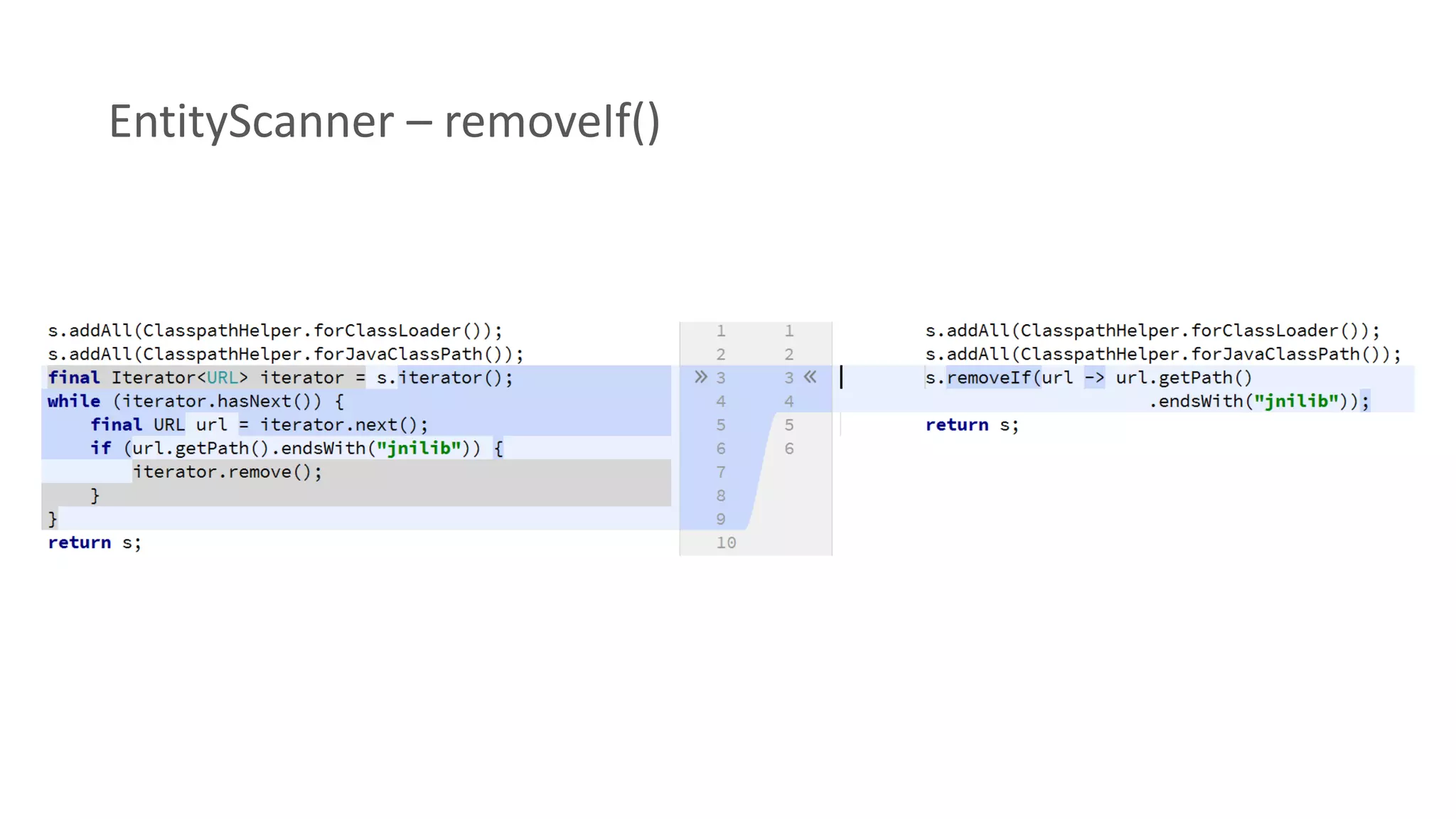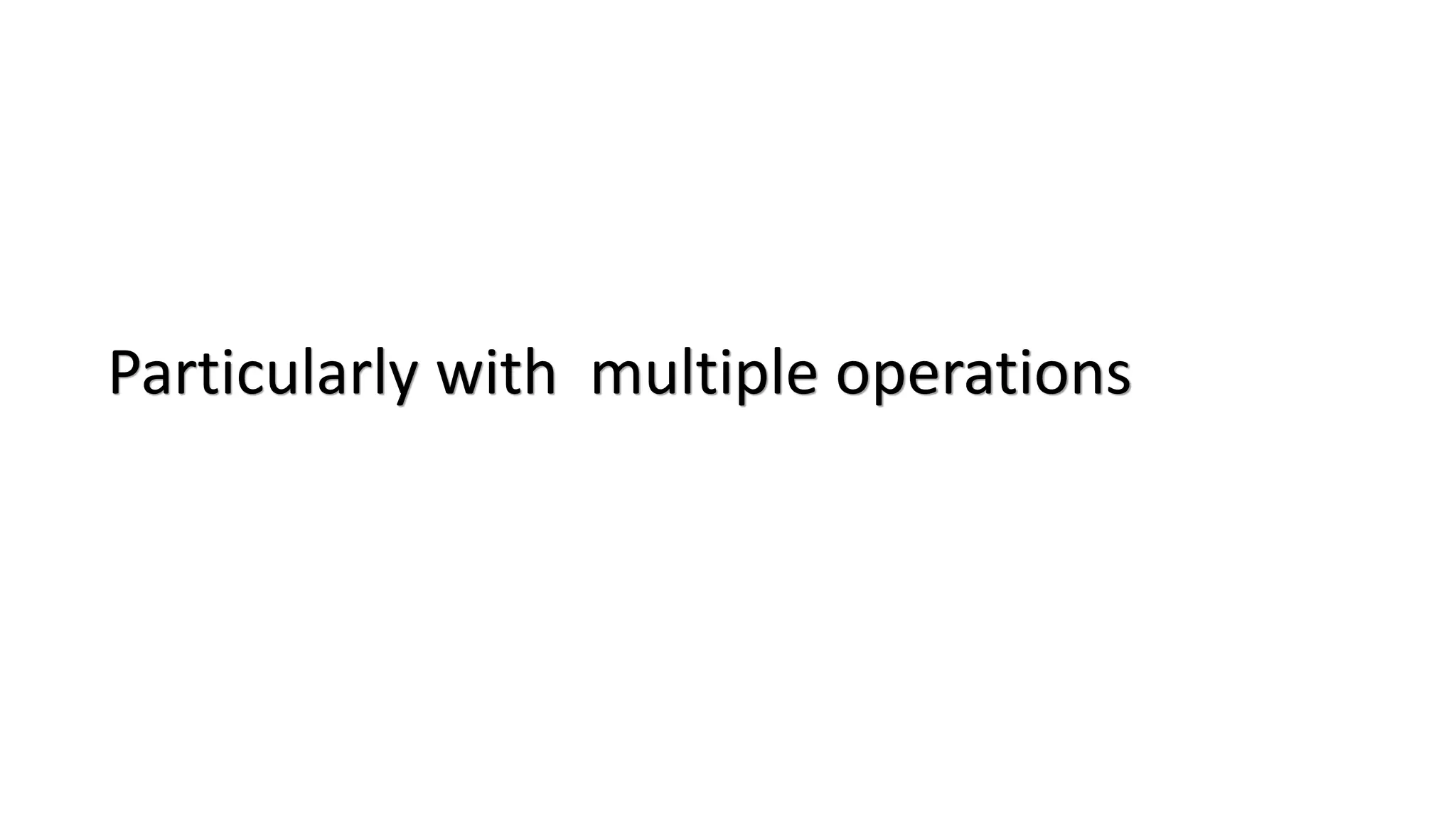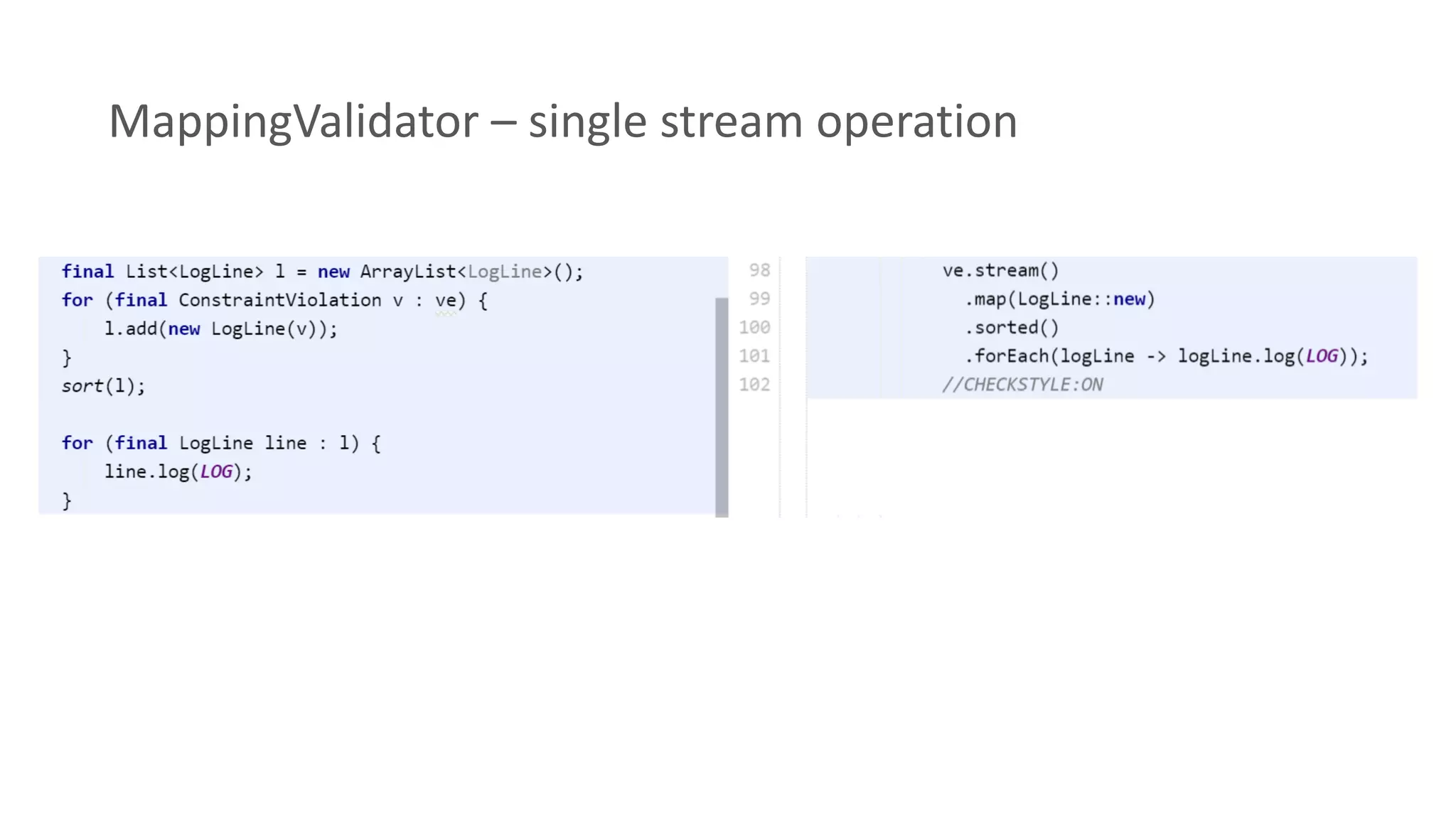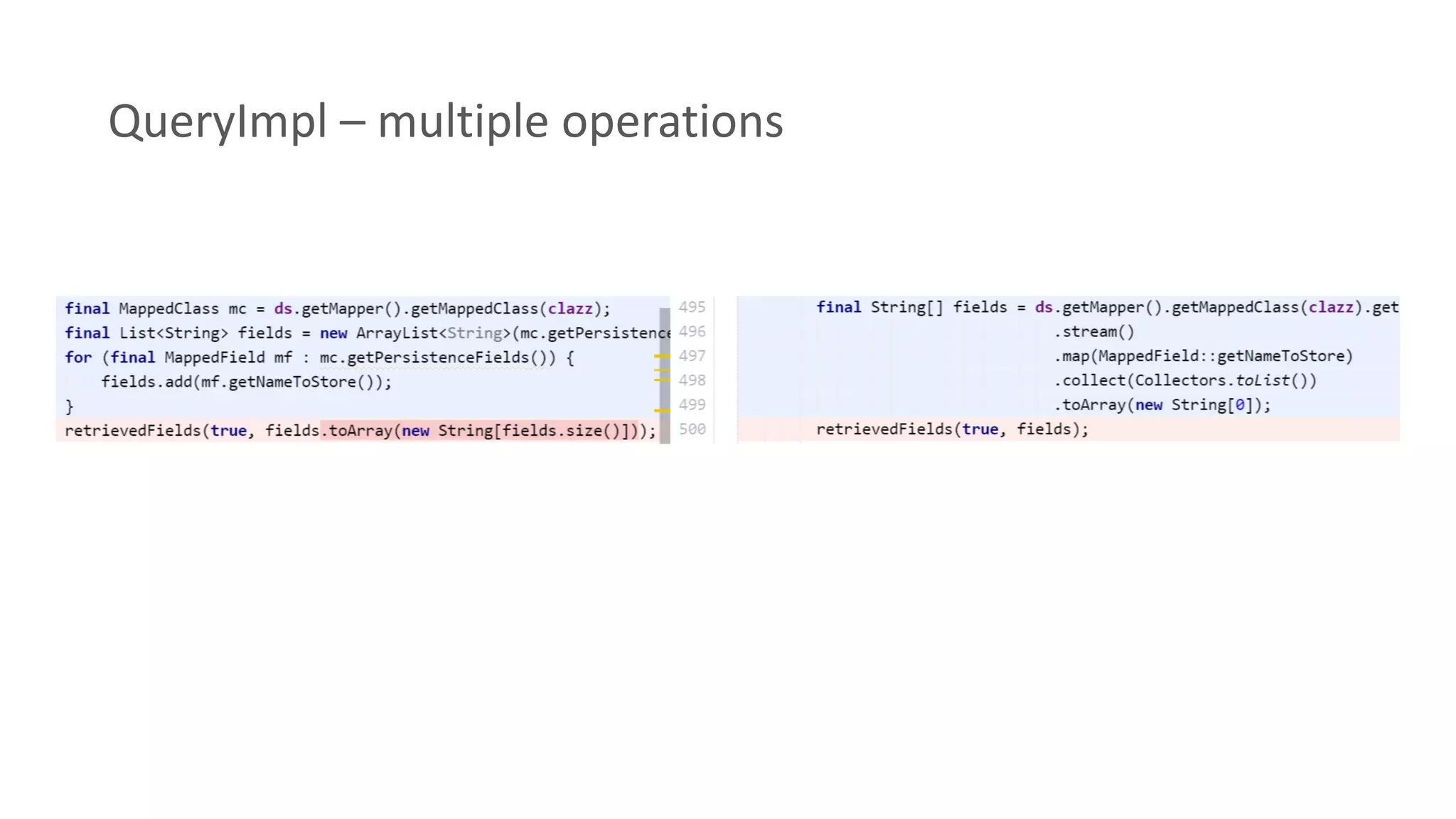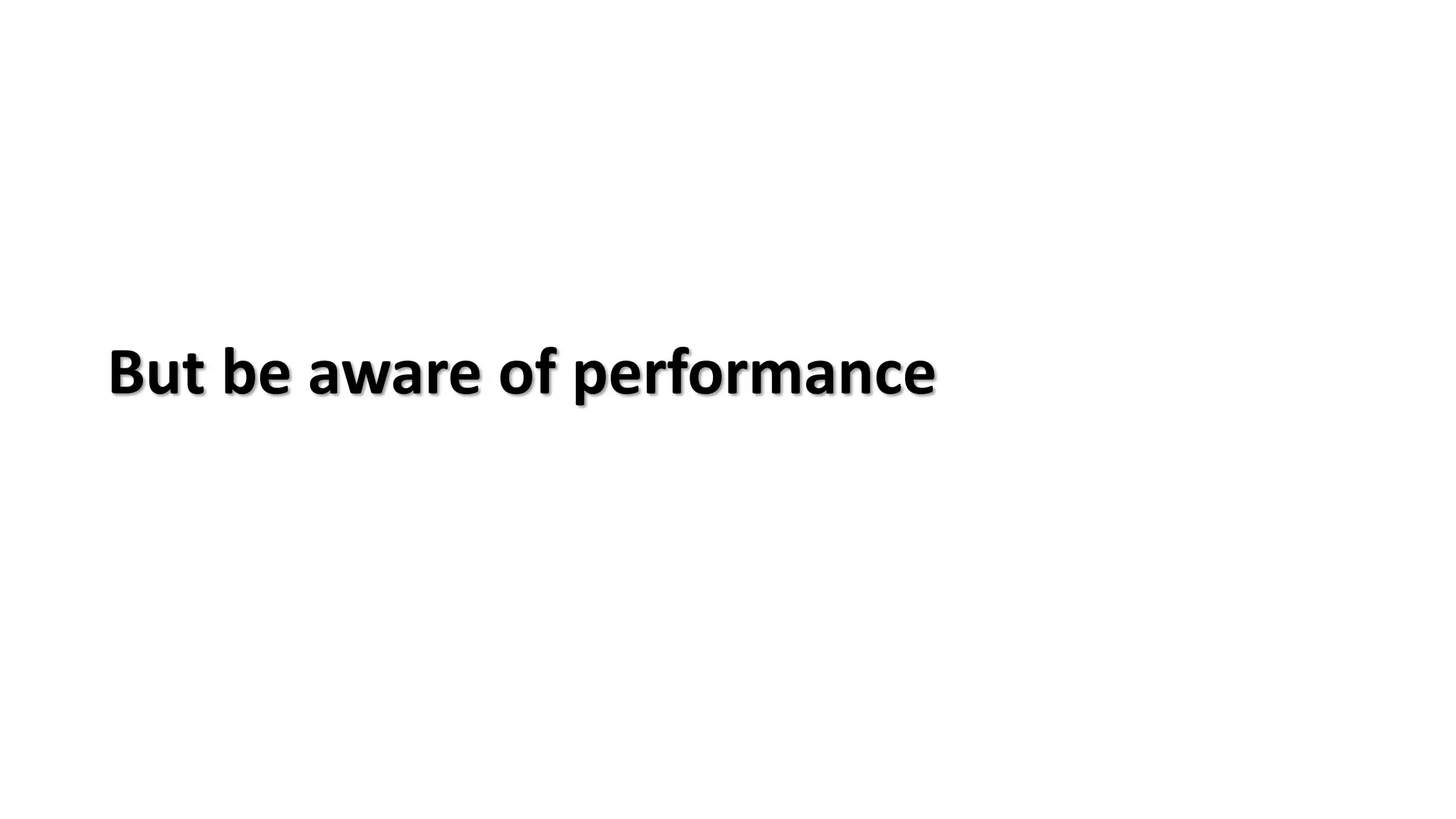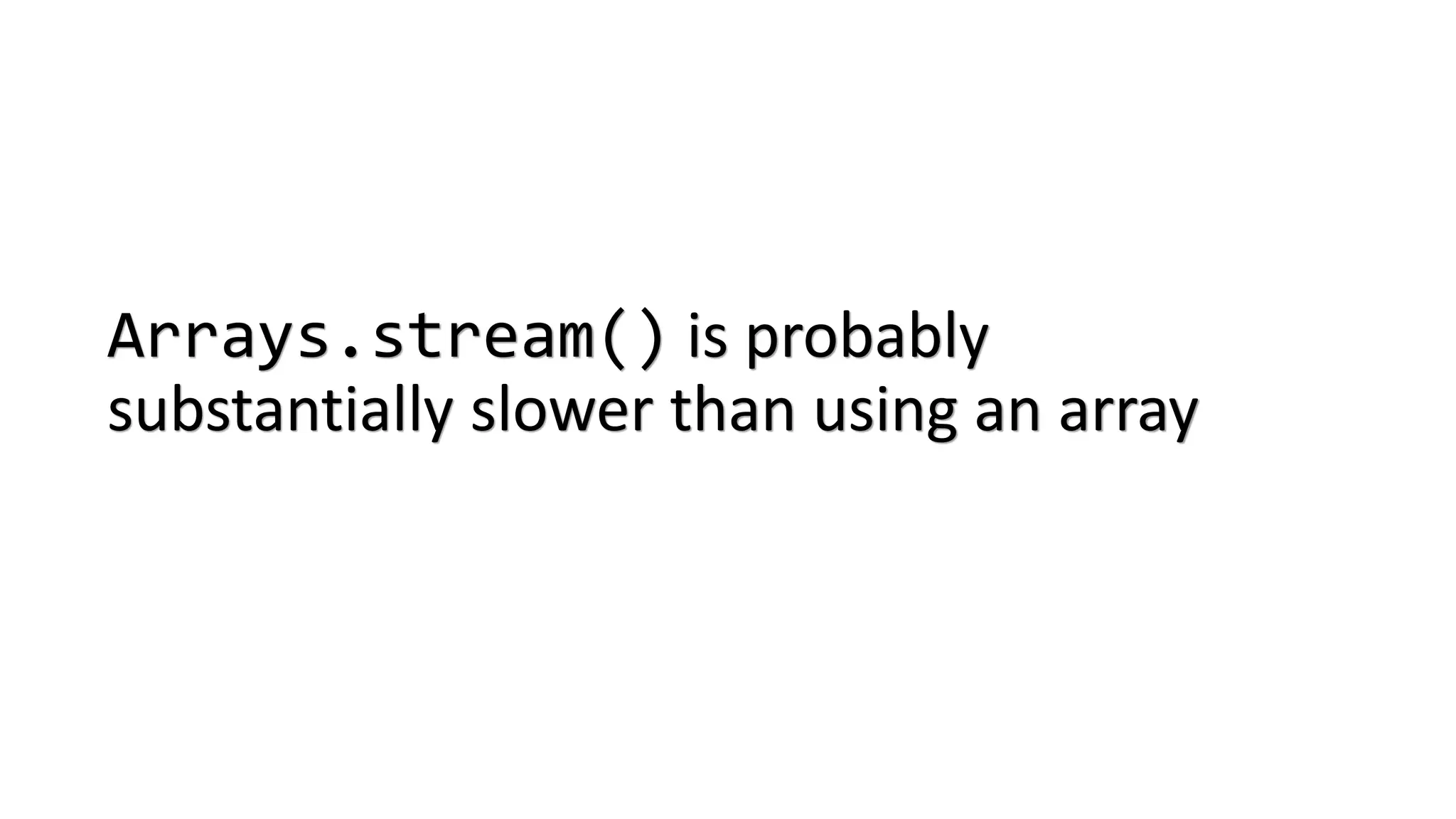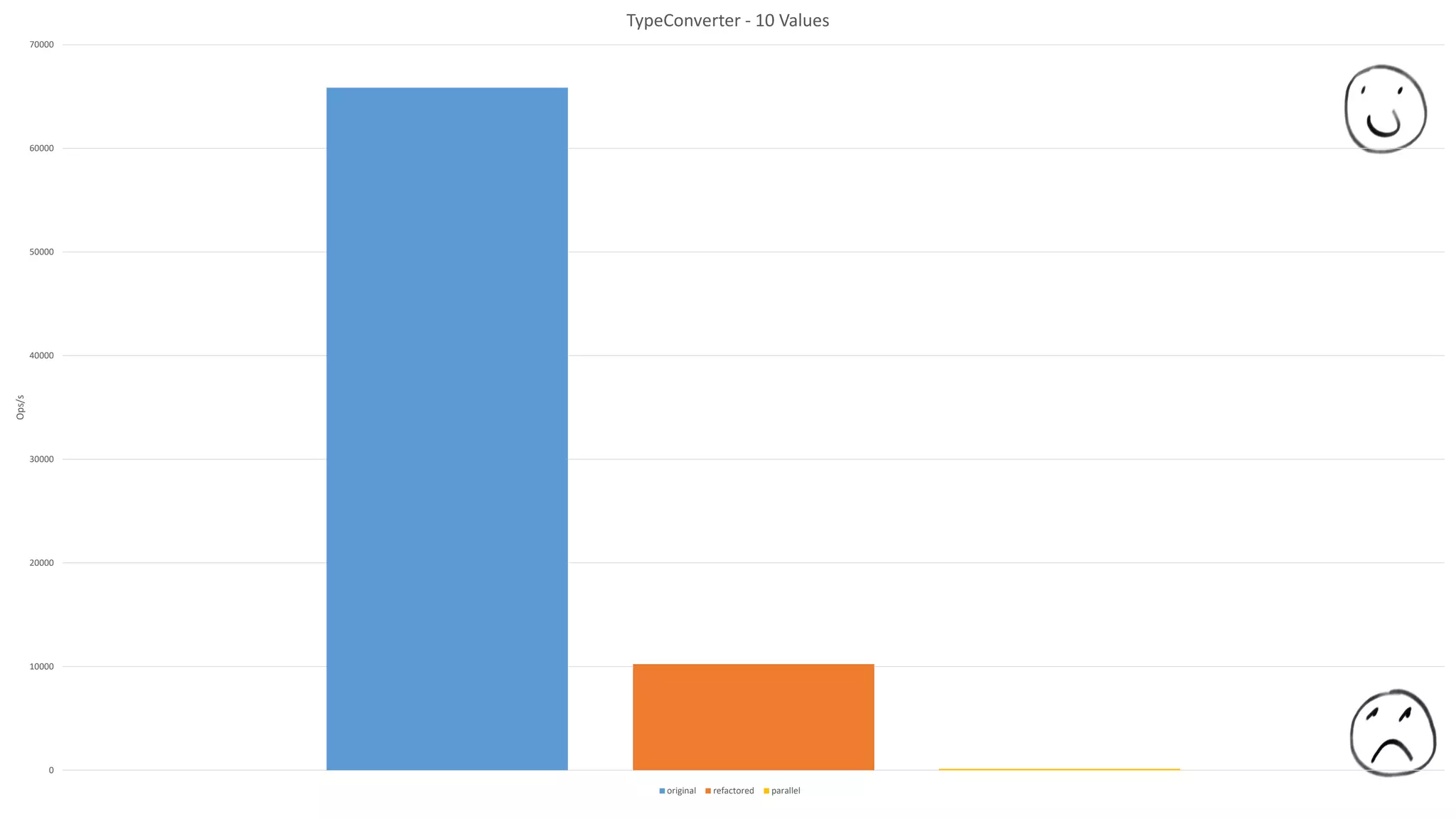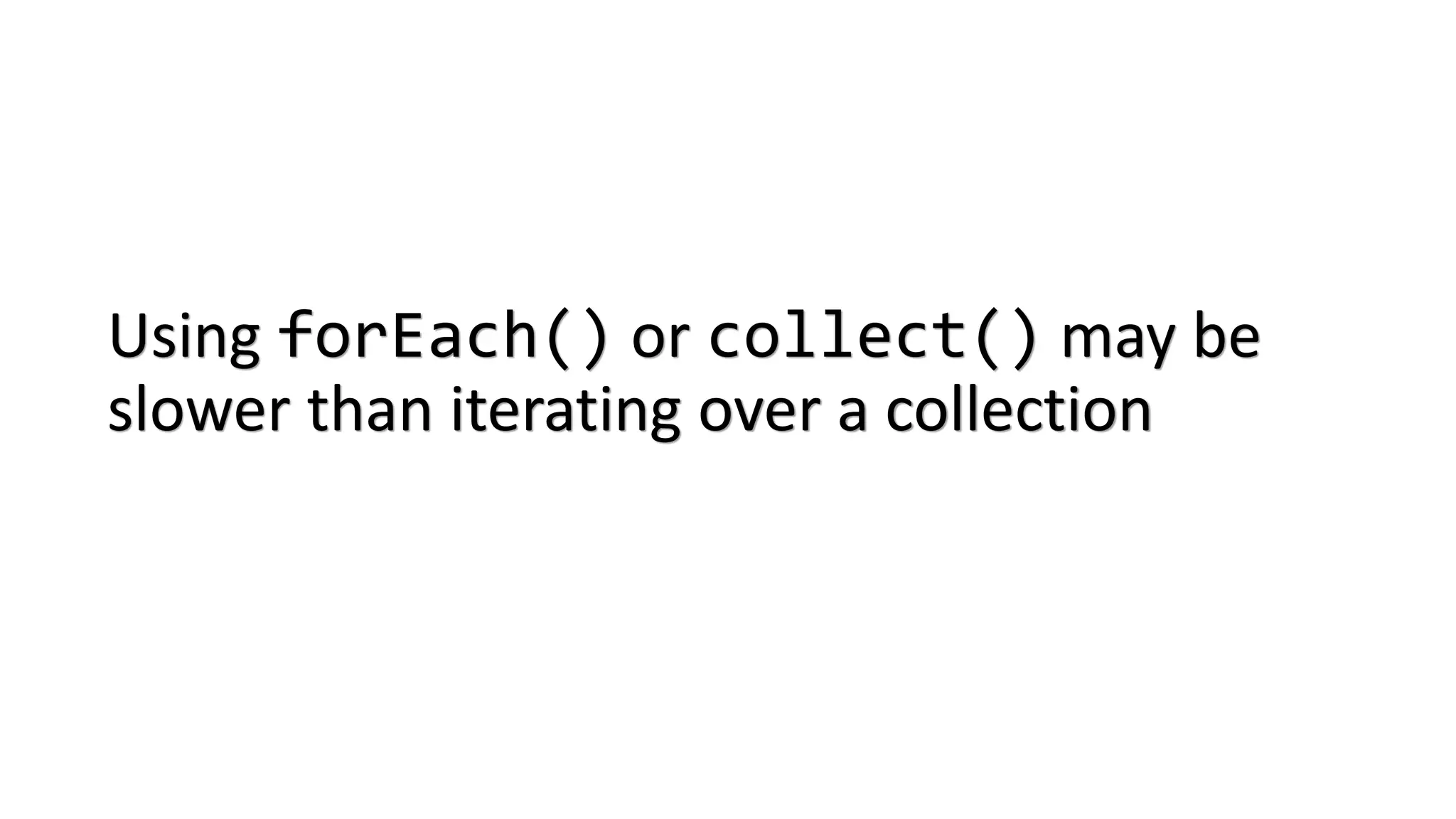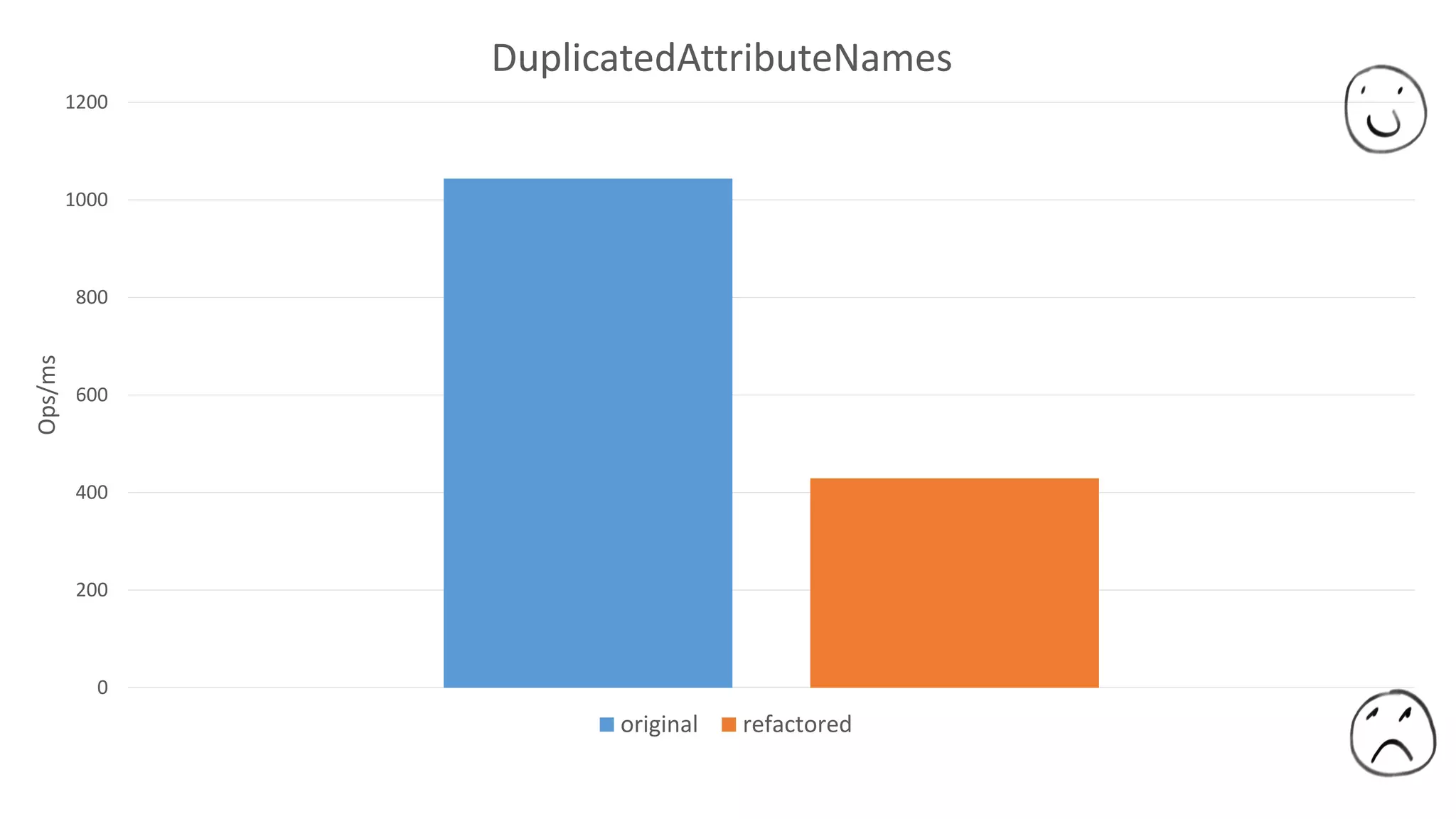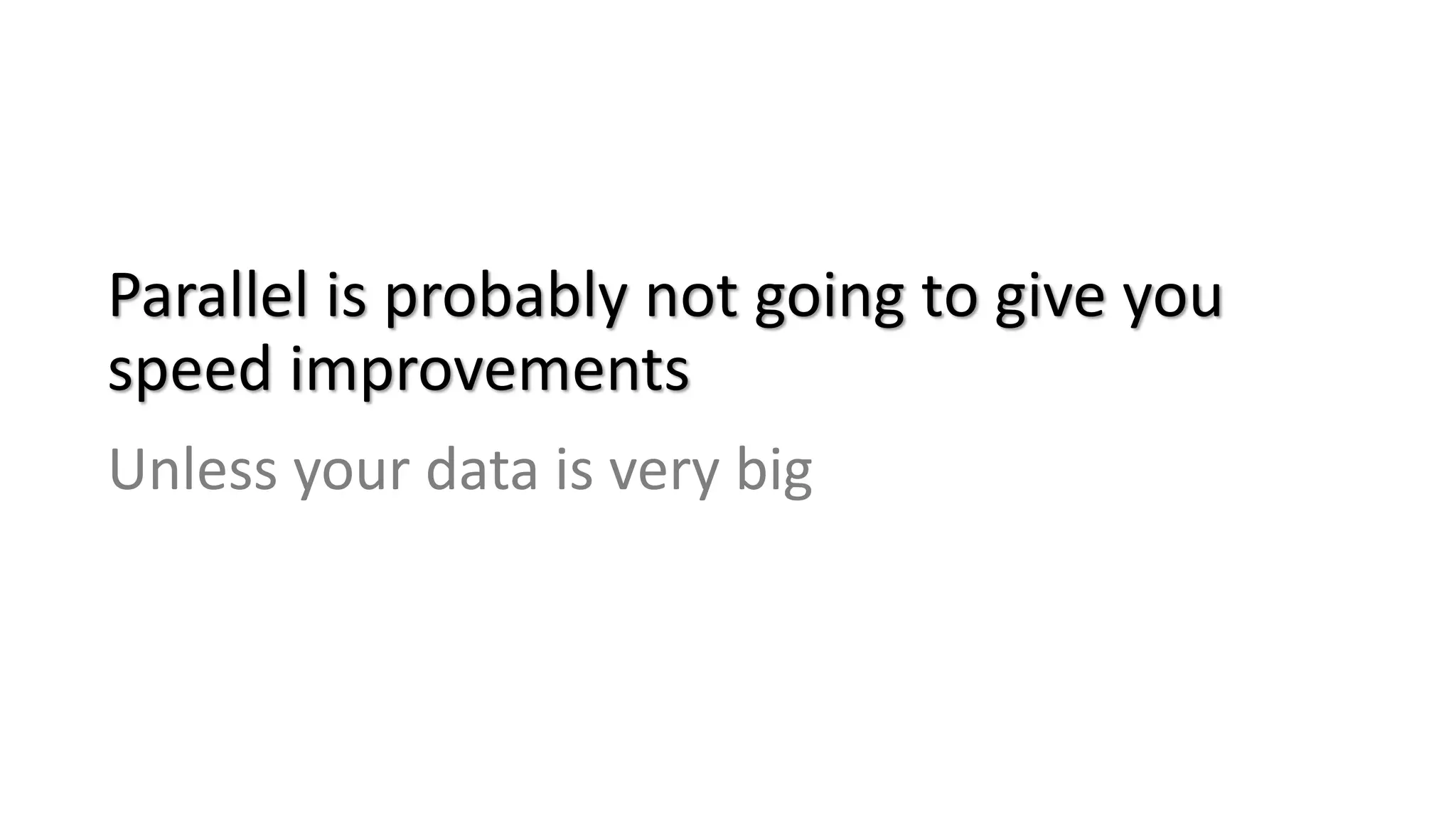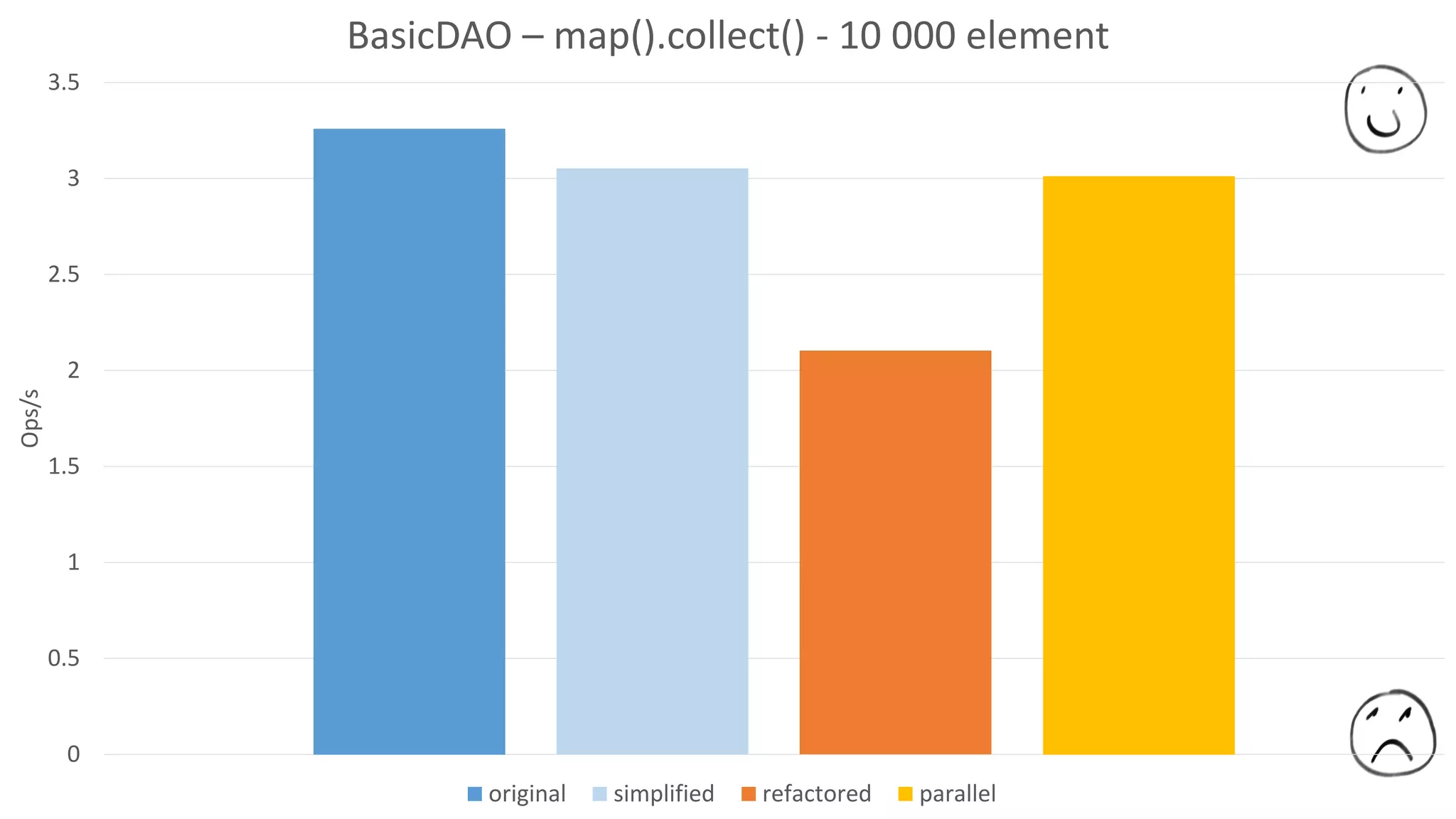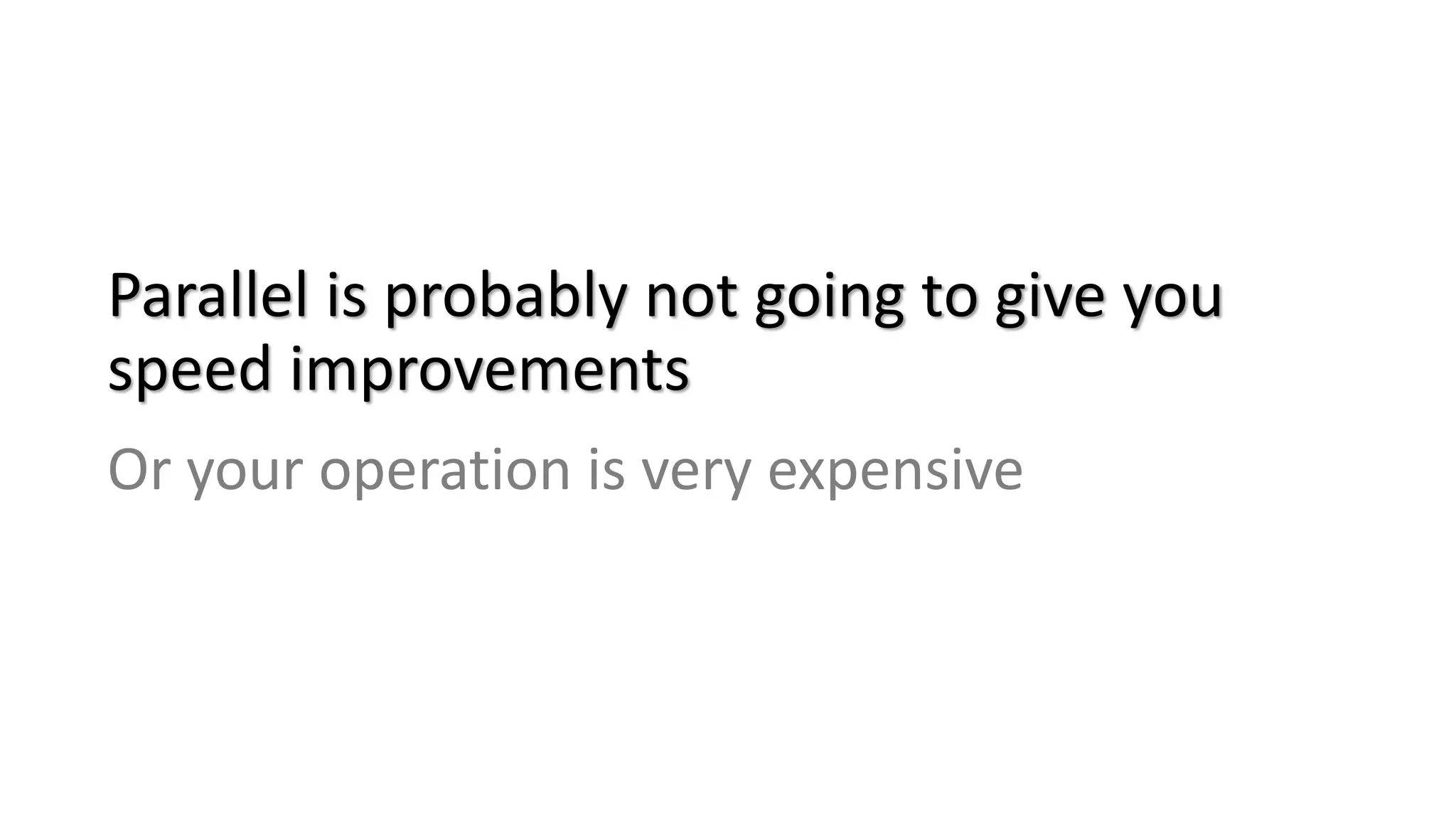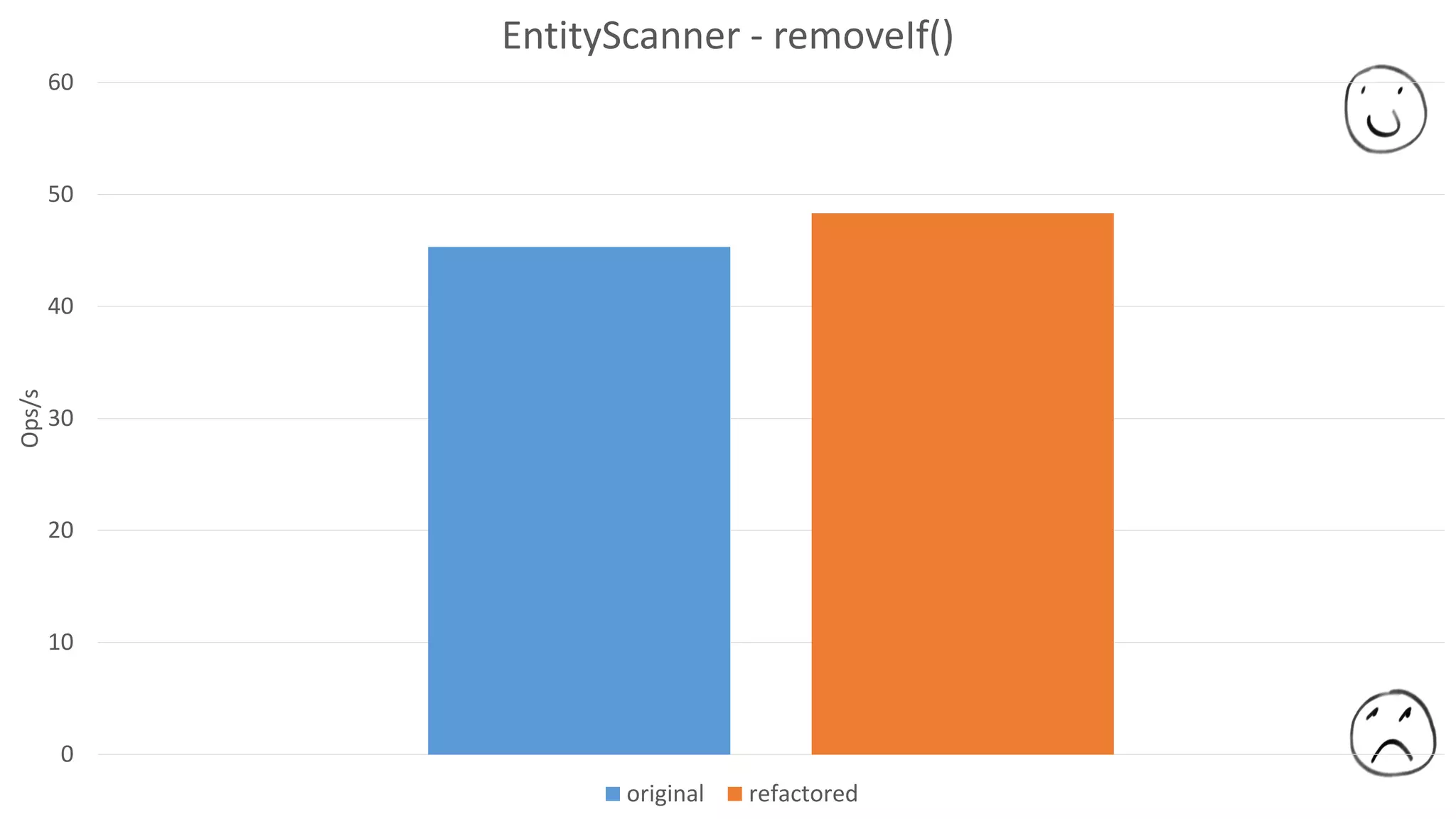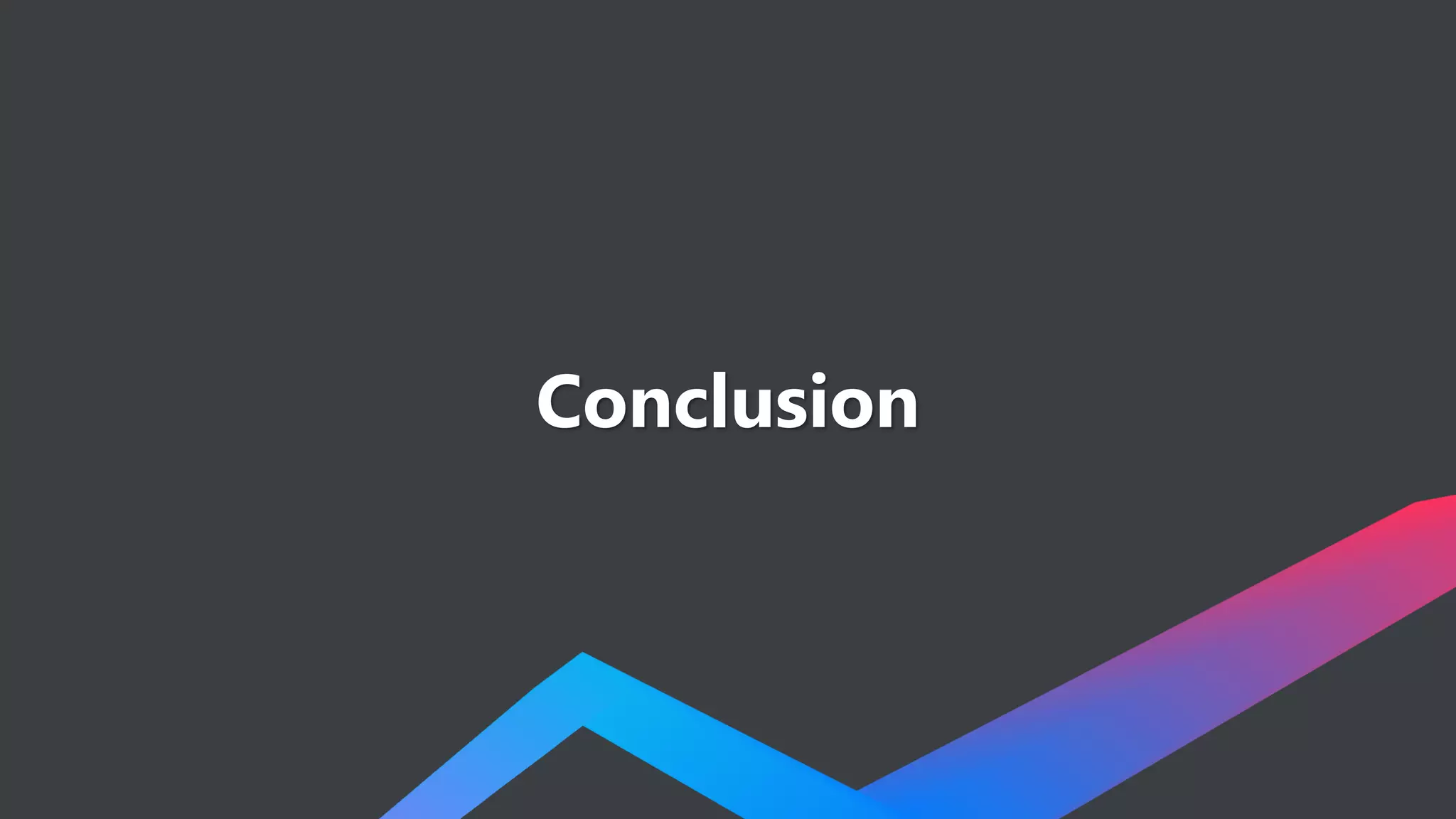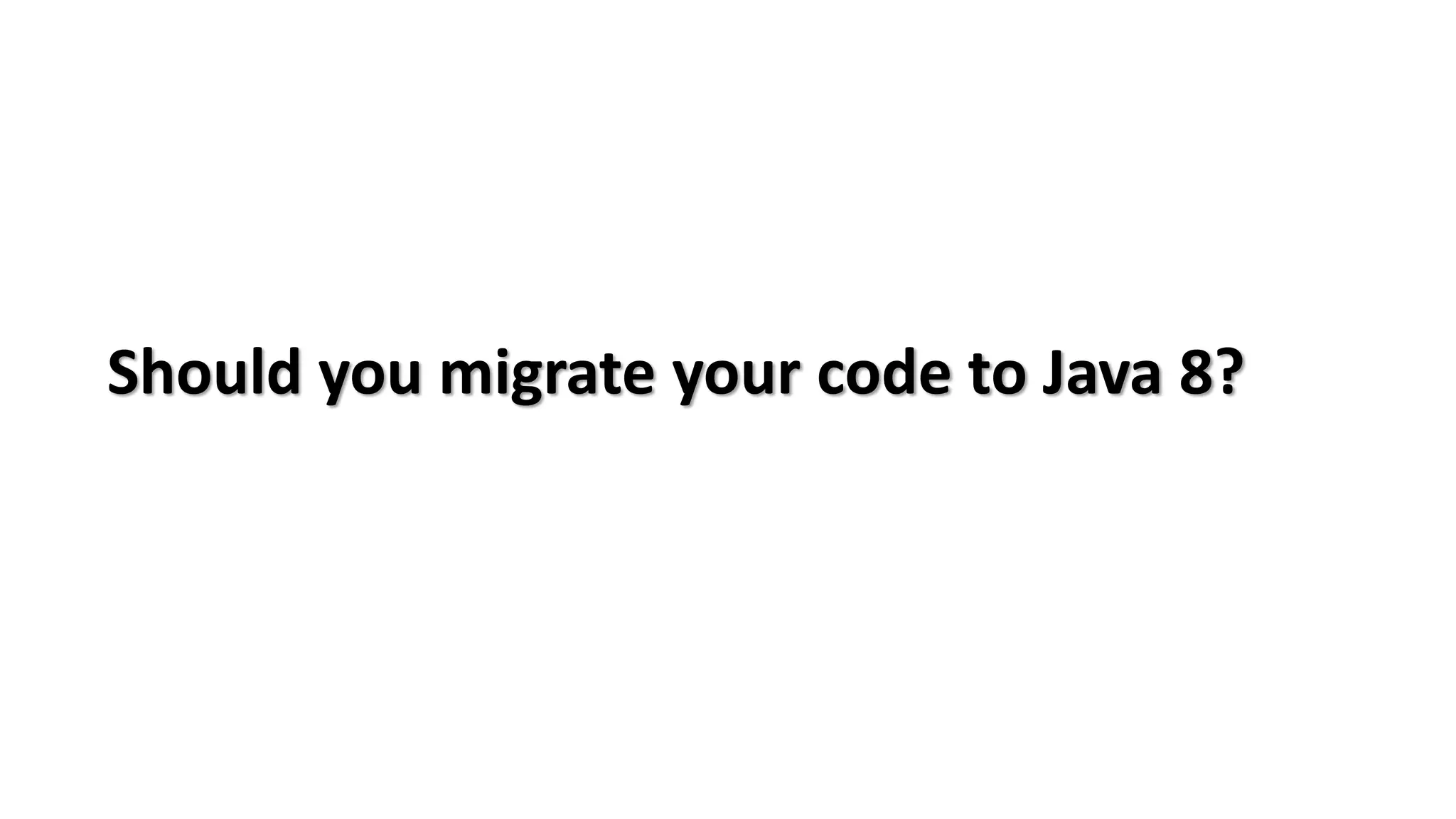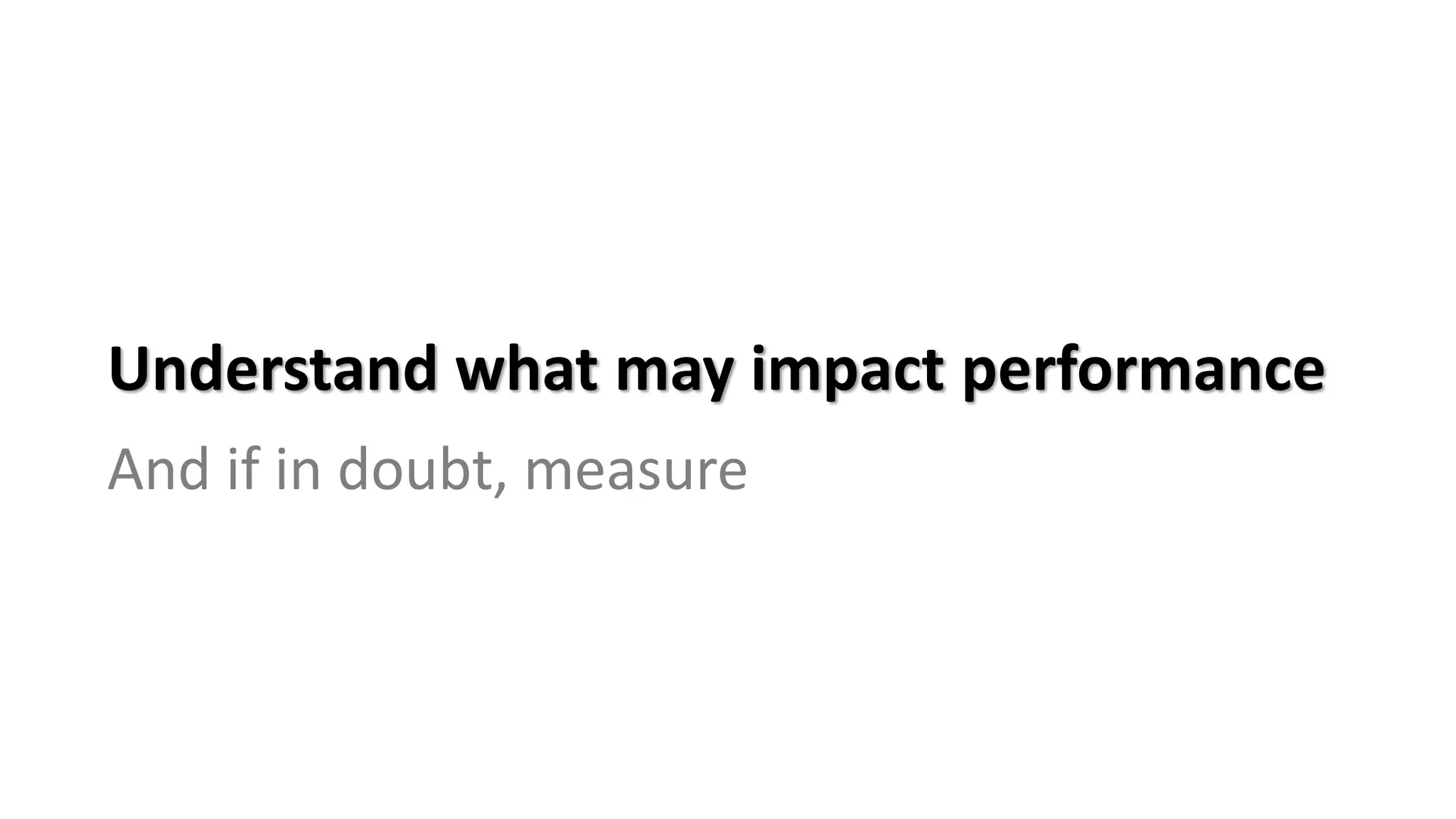The document discusses the benefits of refactoring to Java 8, highlighting performance improvements, easier parallelization, and increased readability through lambda expressions and streams. It includes detailed performance analyses comparing traditional coding methods with refactored versions and provides insights into potential pitfalls and considerations for migration. The overarching conclusion suggests that whether to migrate depends on specific goals and performance measurements.
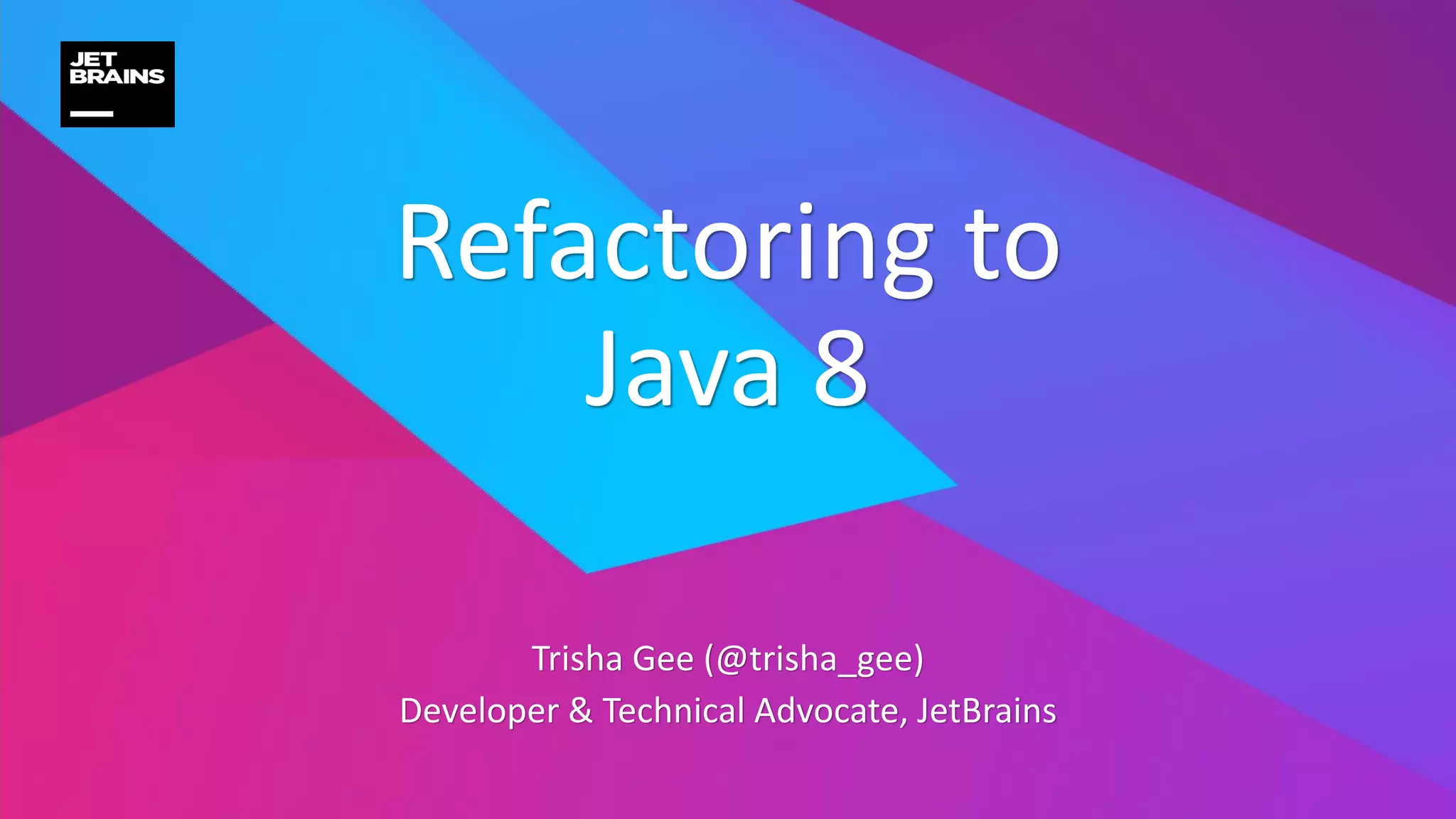
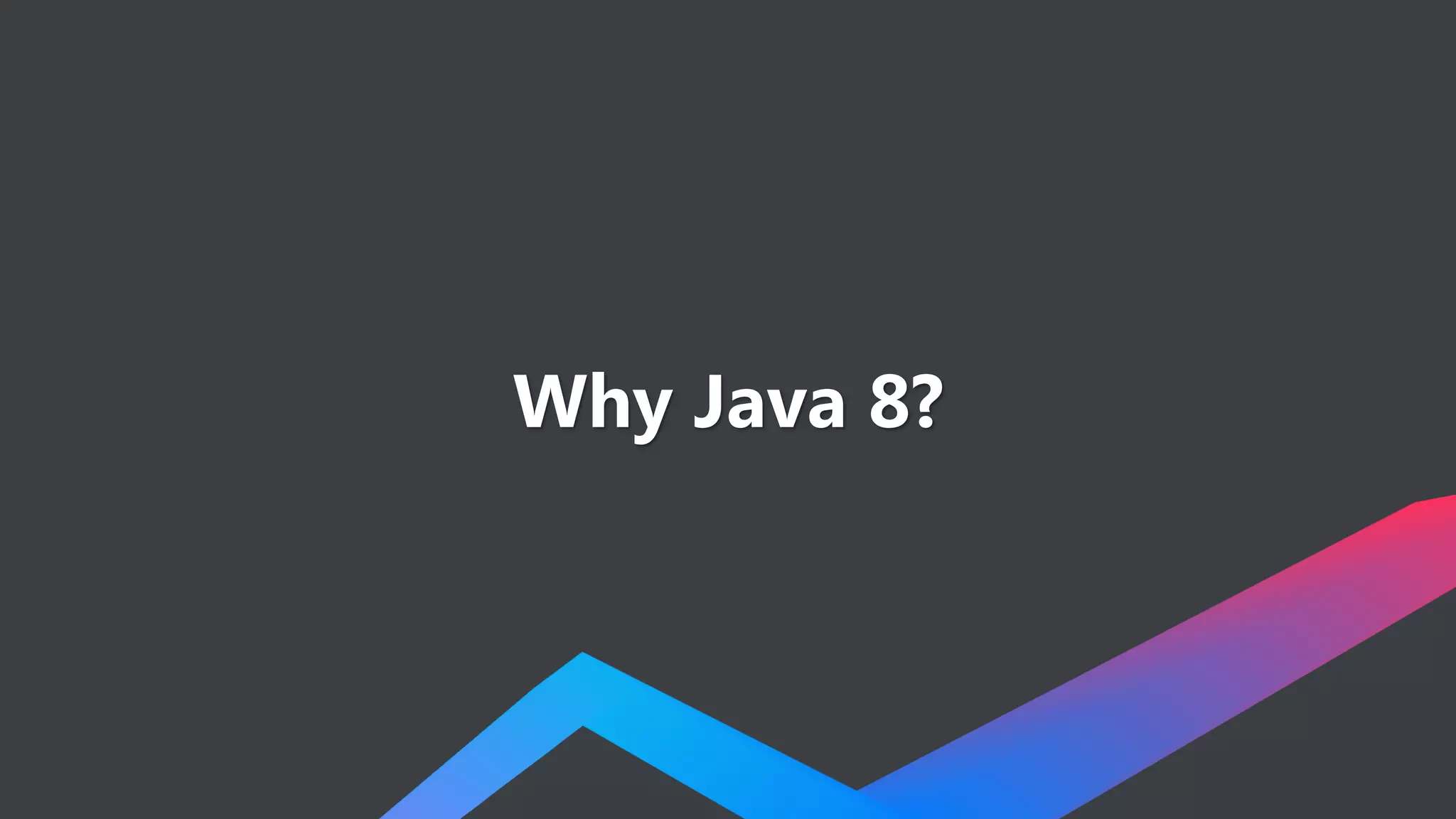
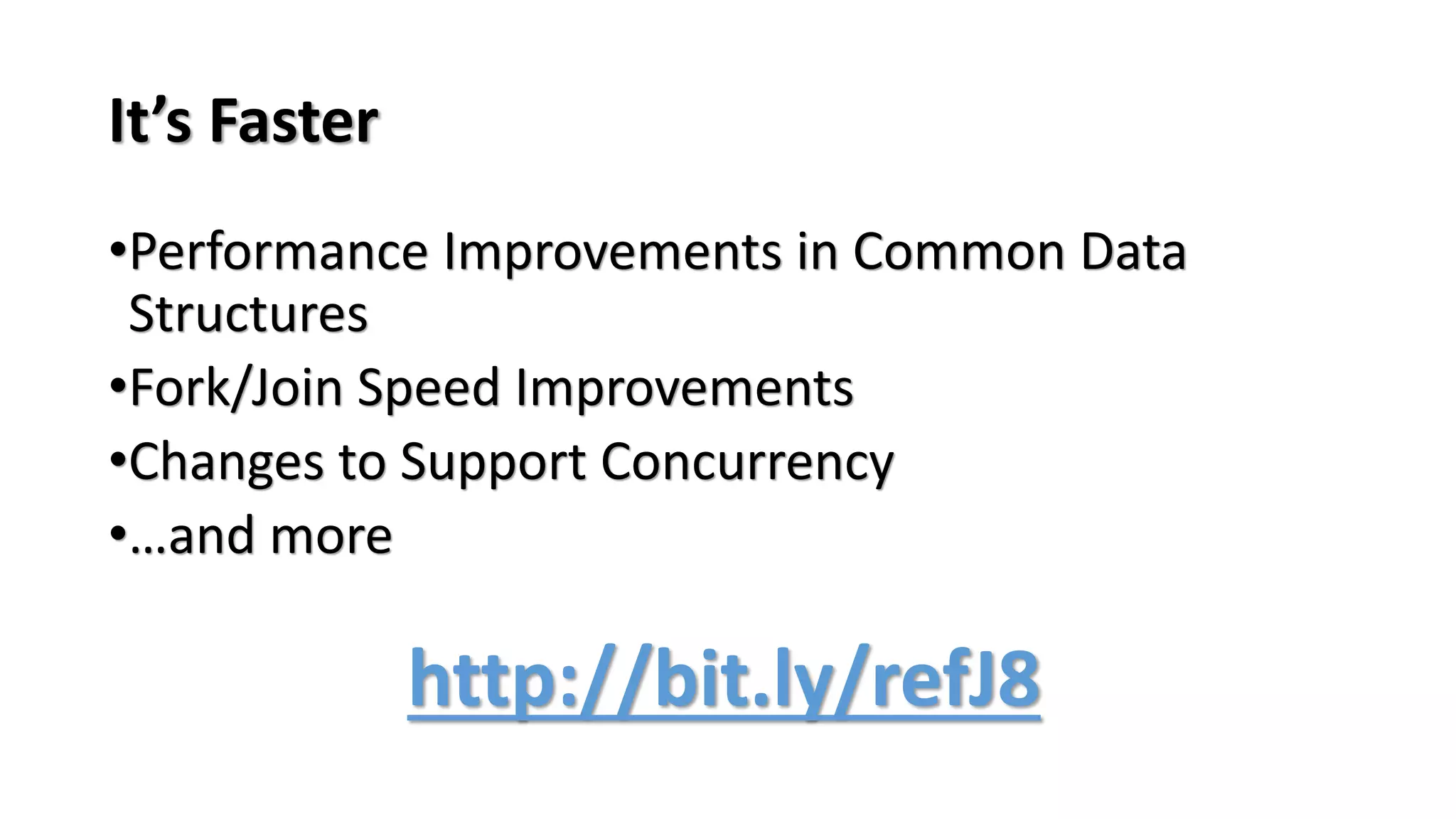

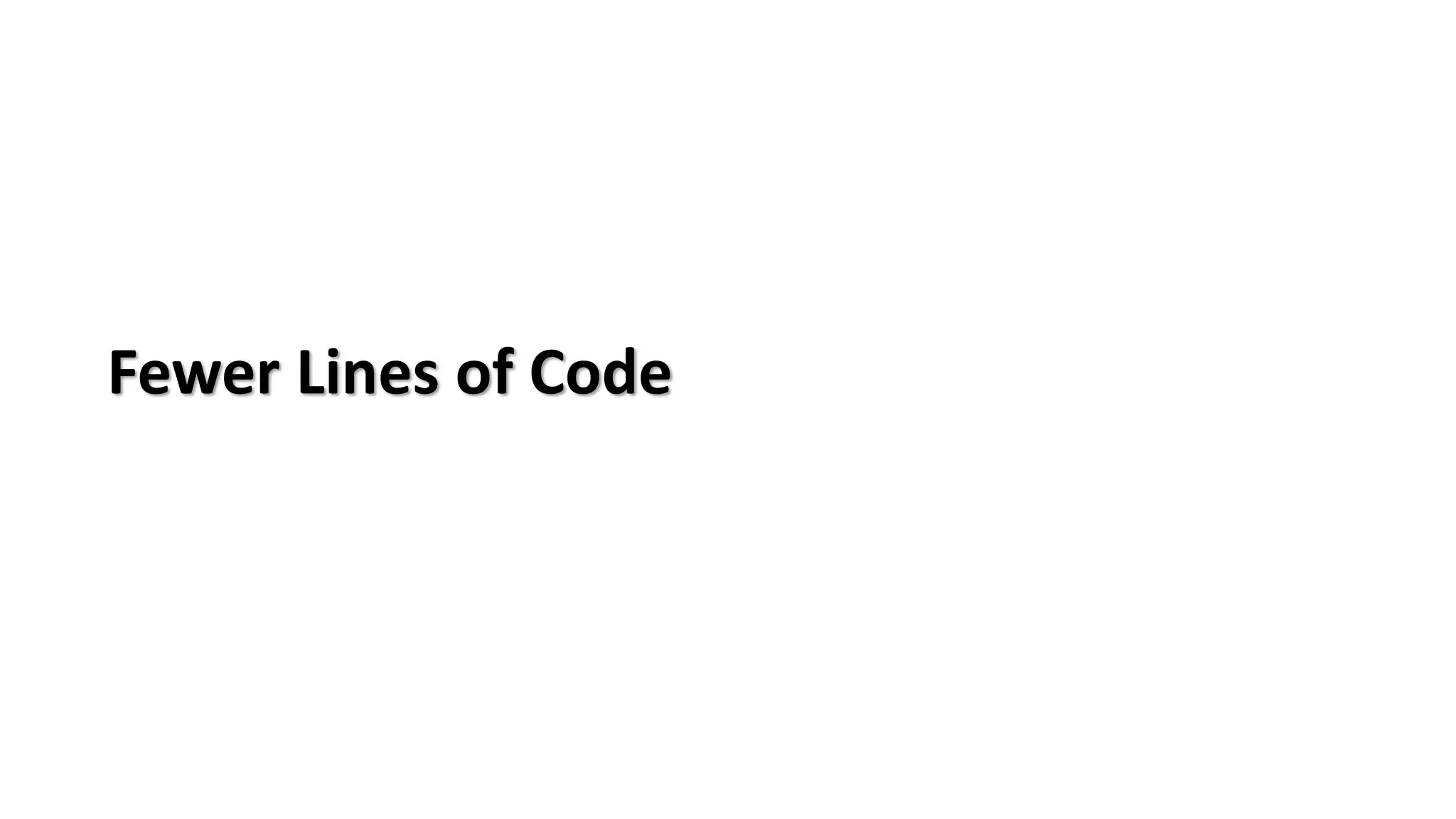
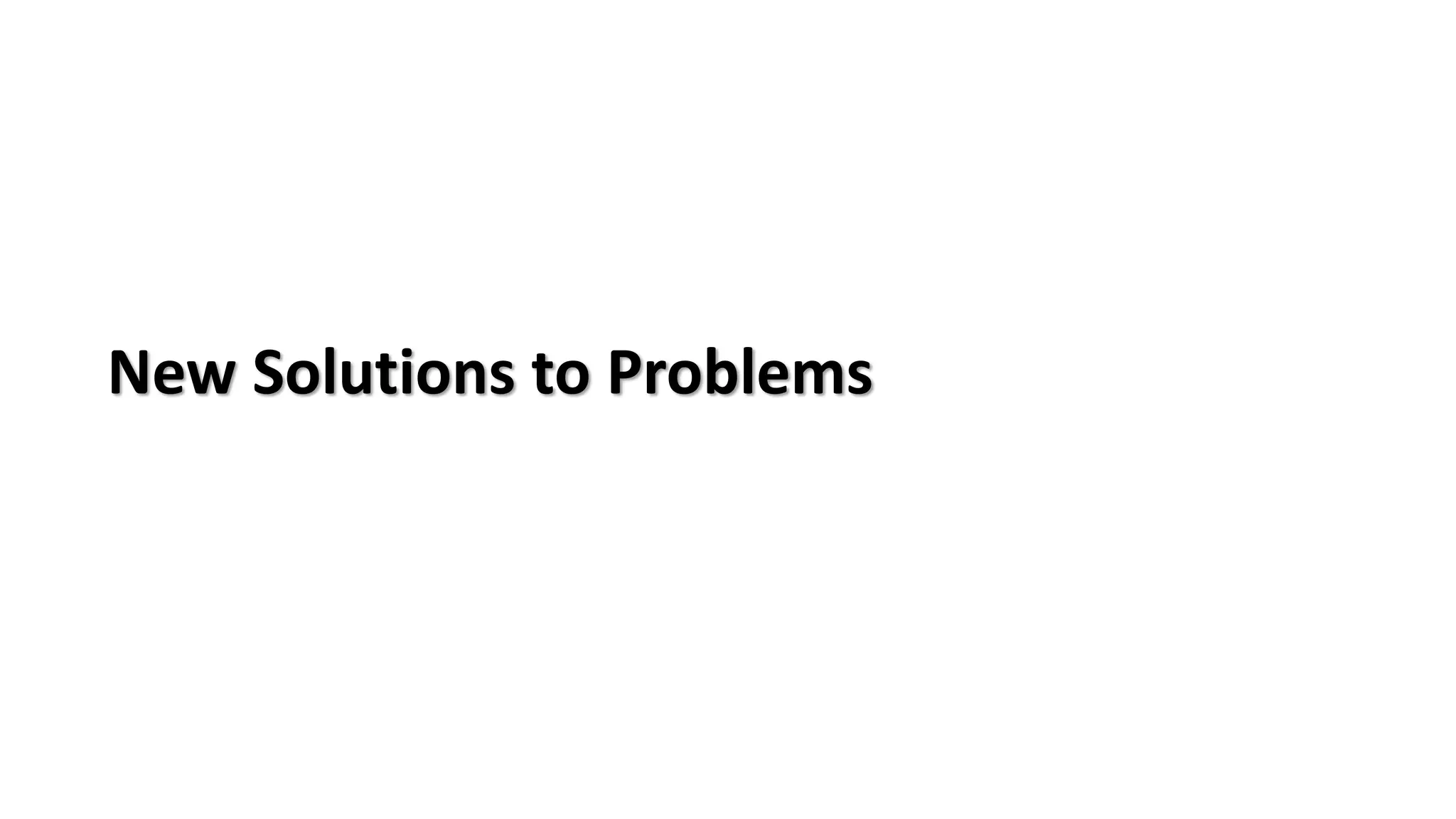


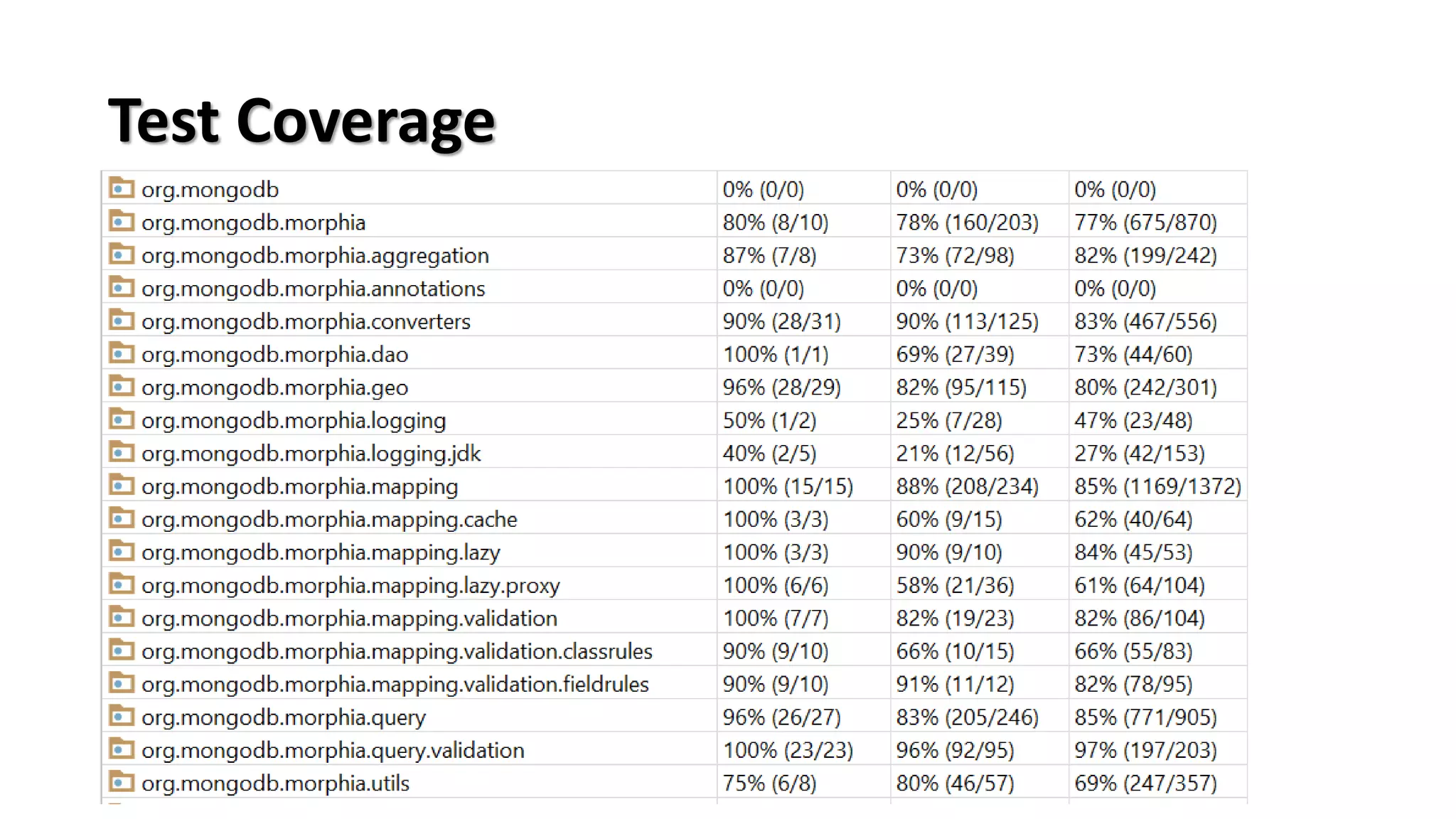
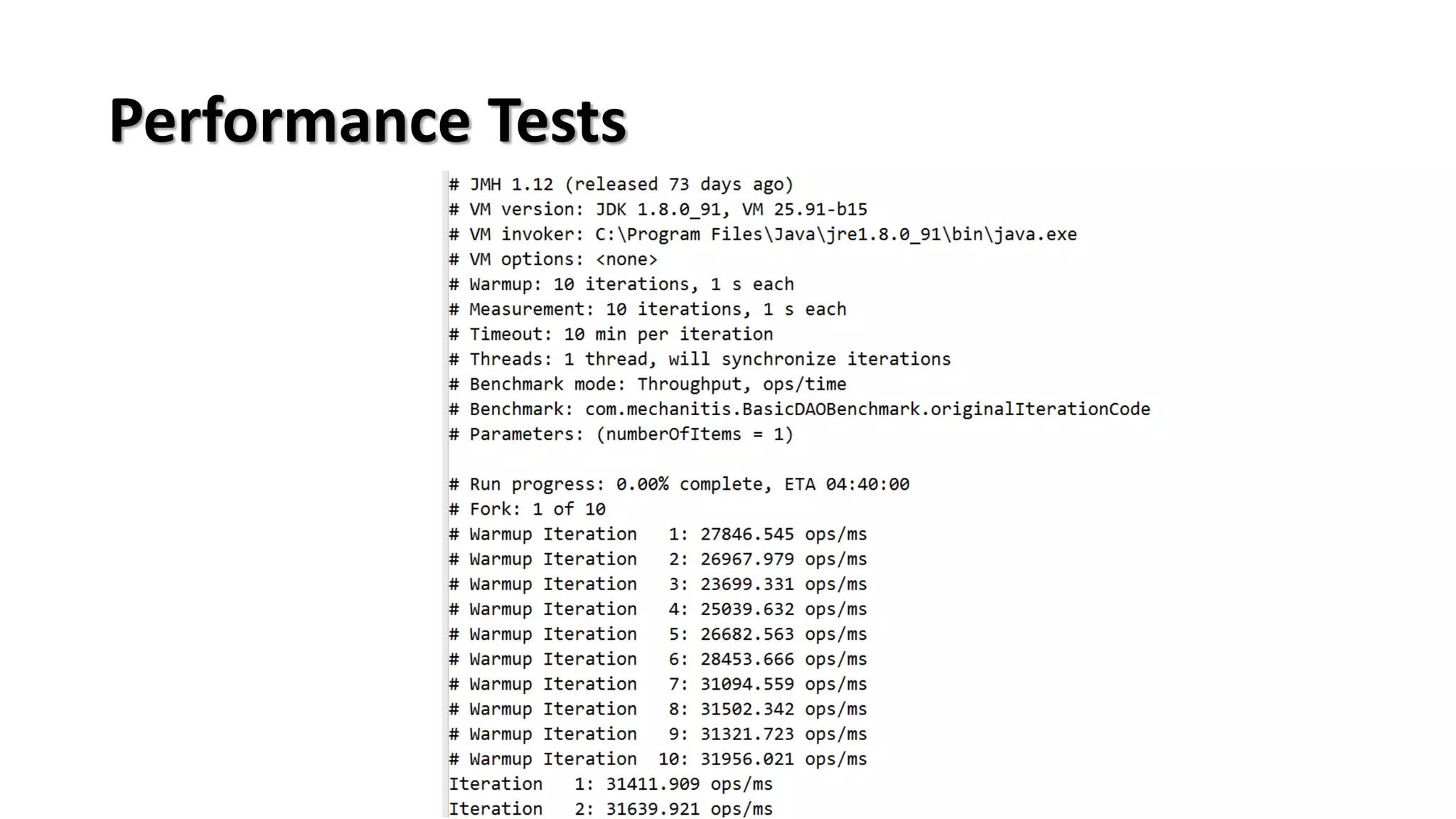
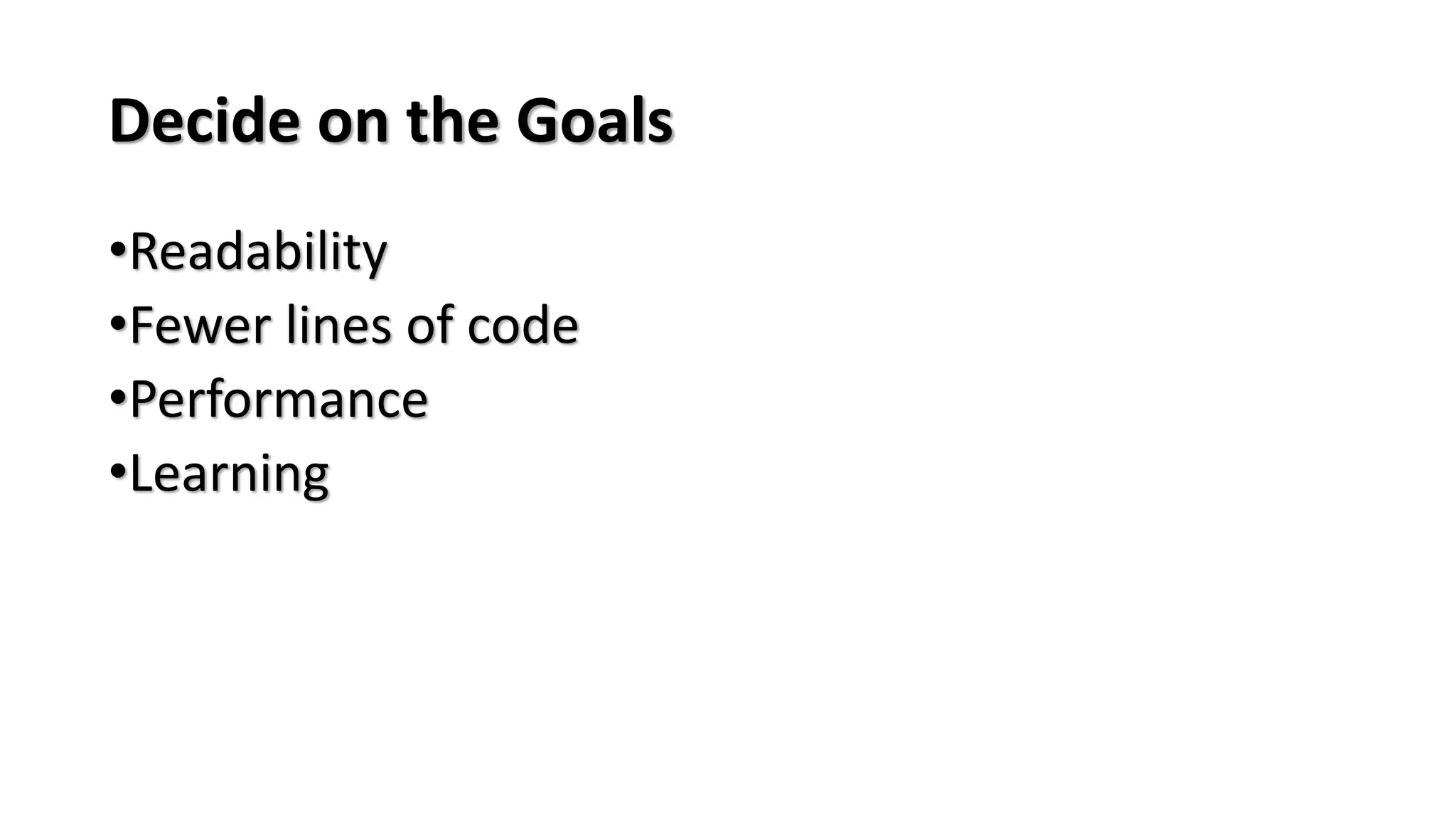


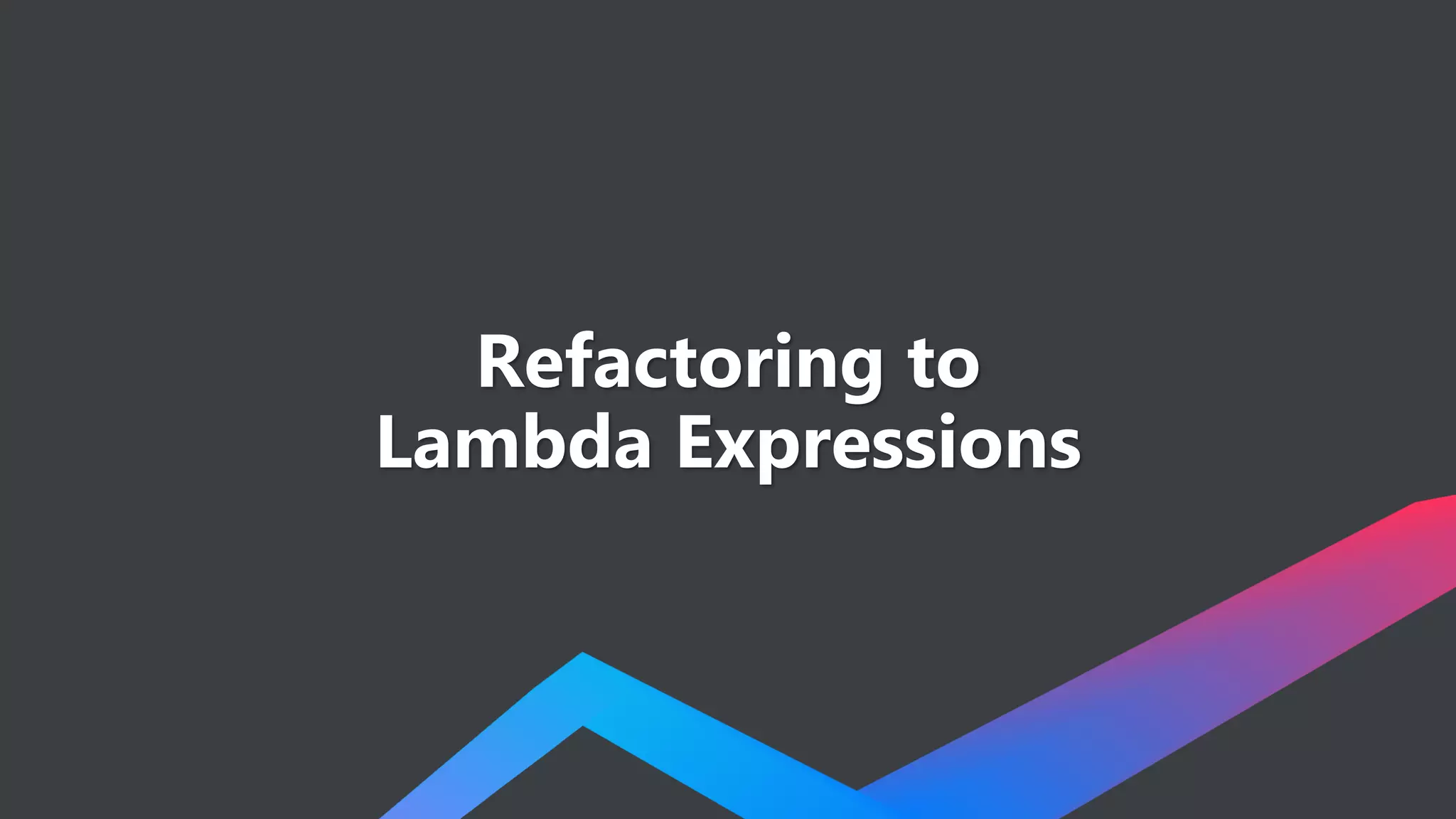
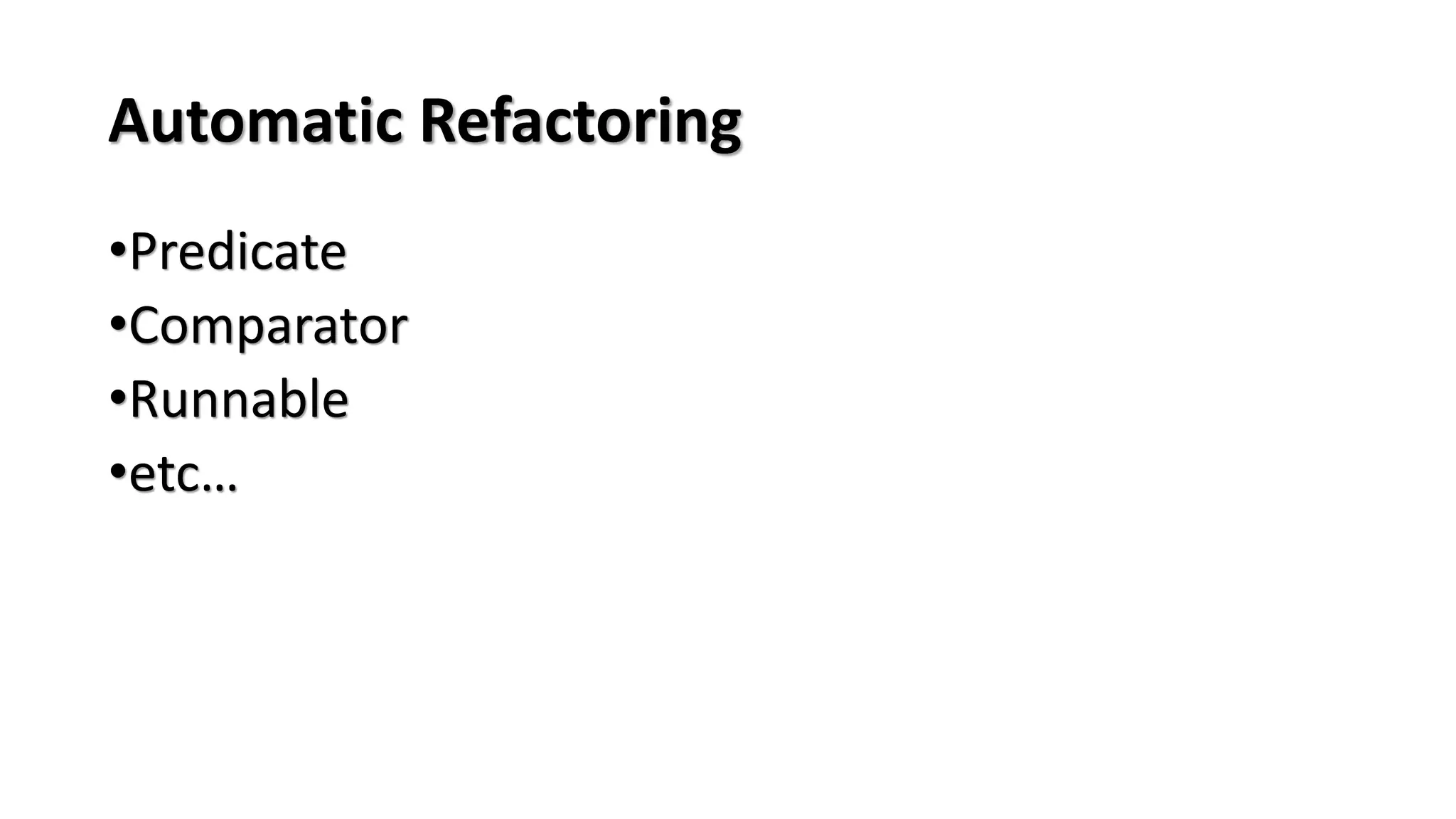

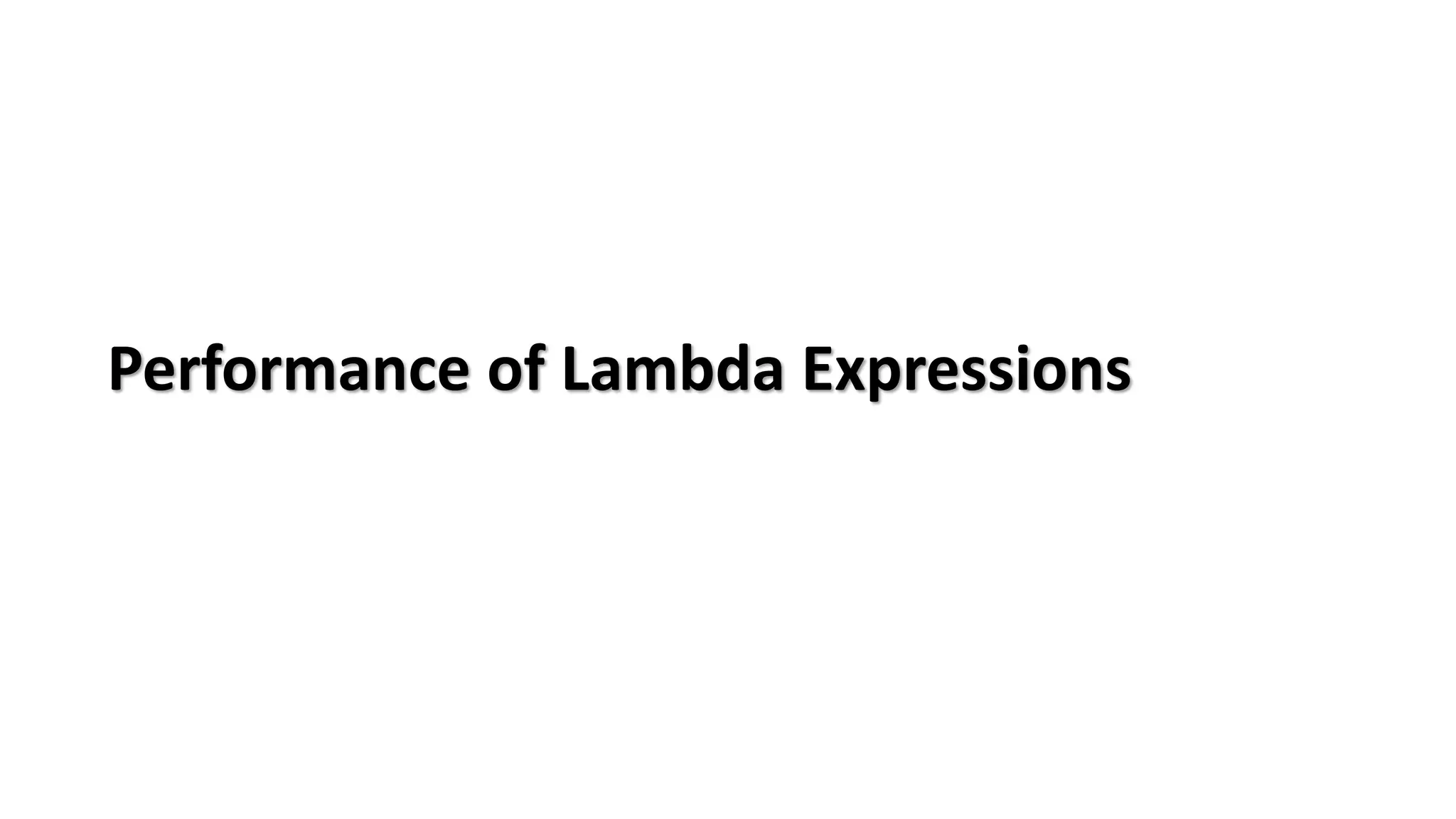
![Anonymous Inner Classes vs Lambdas
public String[] decodeWithAnonymousInnerClass(final BenchmarkState state) {
IterHelper.loopMap(state.values, new IterHelper.MapIterCallback<Integer, String>() {
@Override
public void eval(final Integer key, final String value) {
state.arrayOfResults[key] = value;
}
});
return state.arrayOfResults;
}
public void decodeWithLambda(final BenchmarkState state) {
IterHelper.<Integer, String>loopMap(state.values,
(key, value) -> state.arrayOfResults[key] = value) ;
}](https://image.slidesharecdn.com/refactoringtojava8-devoxx-161116094805/75/Refactoring-to-Java-8-Devoxx-BE-18-2048.jpg)
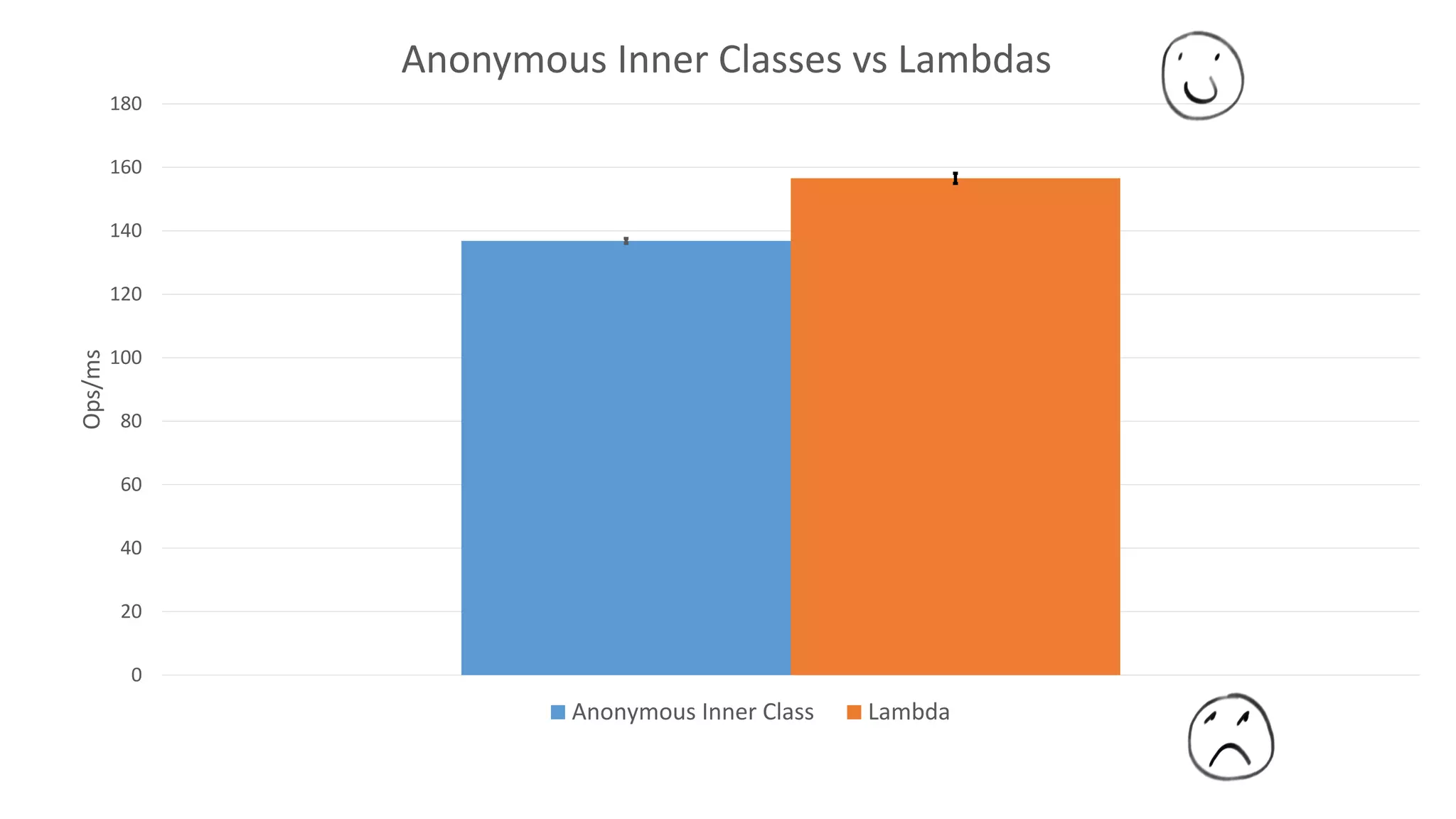
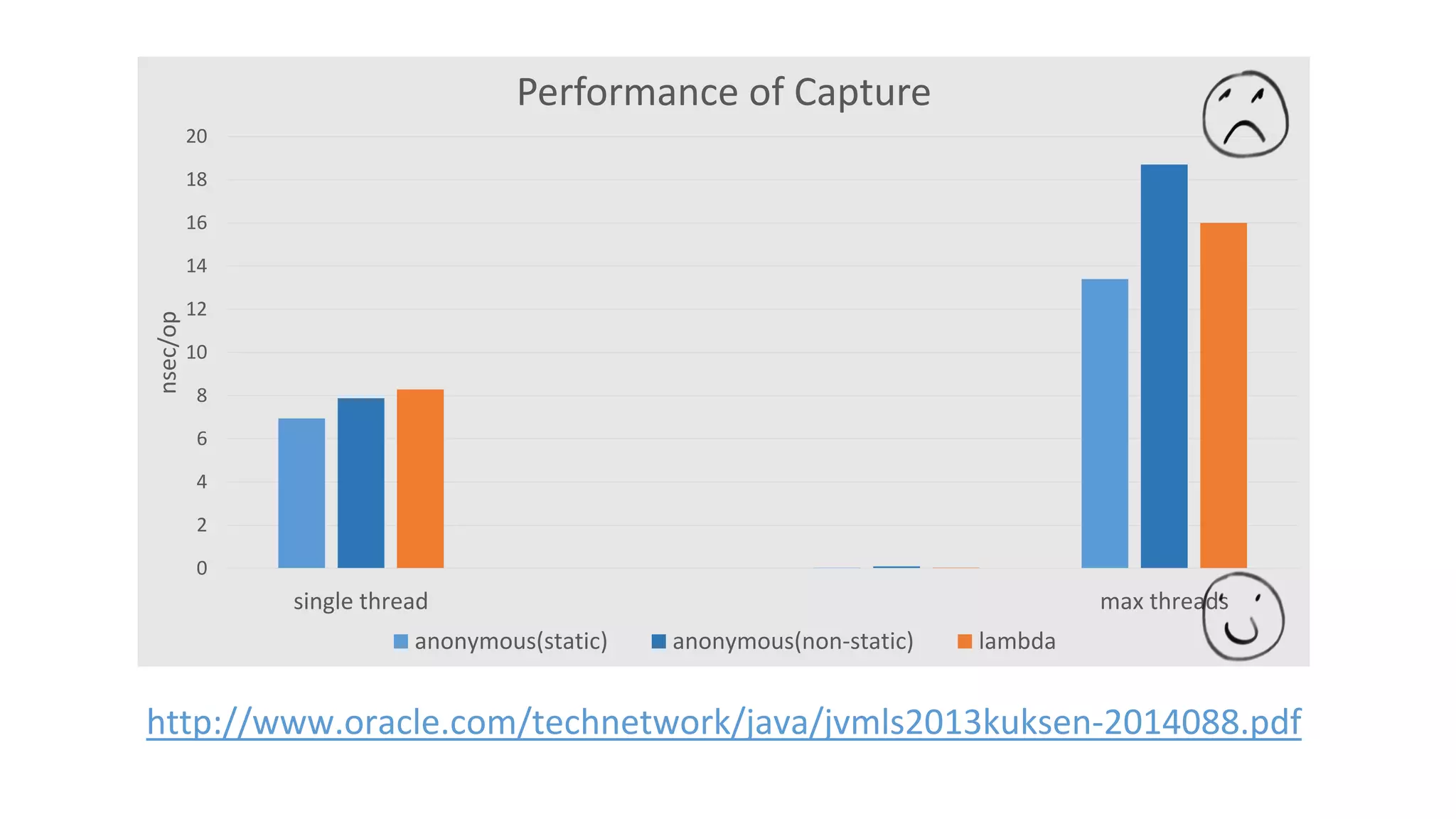
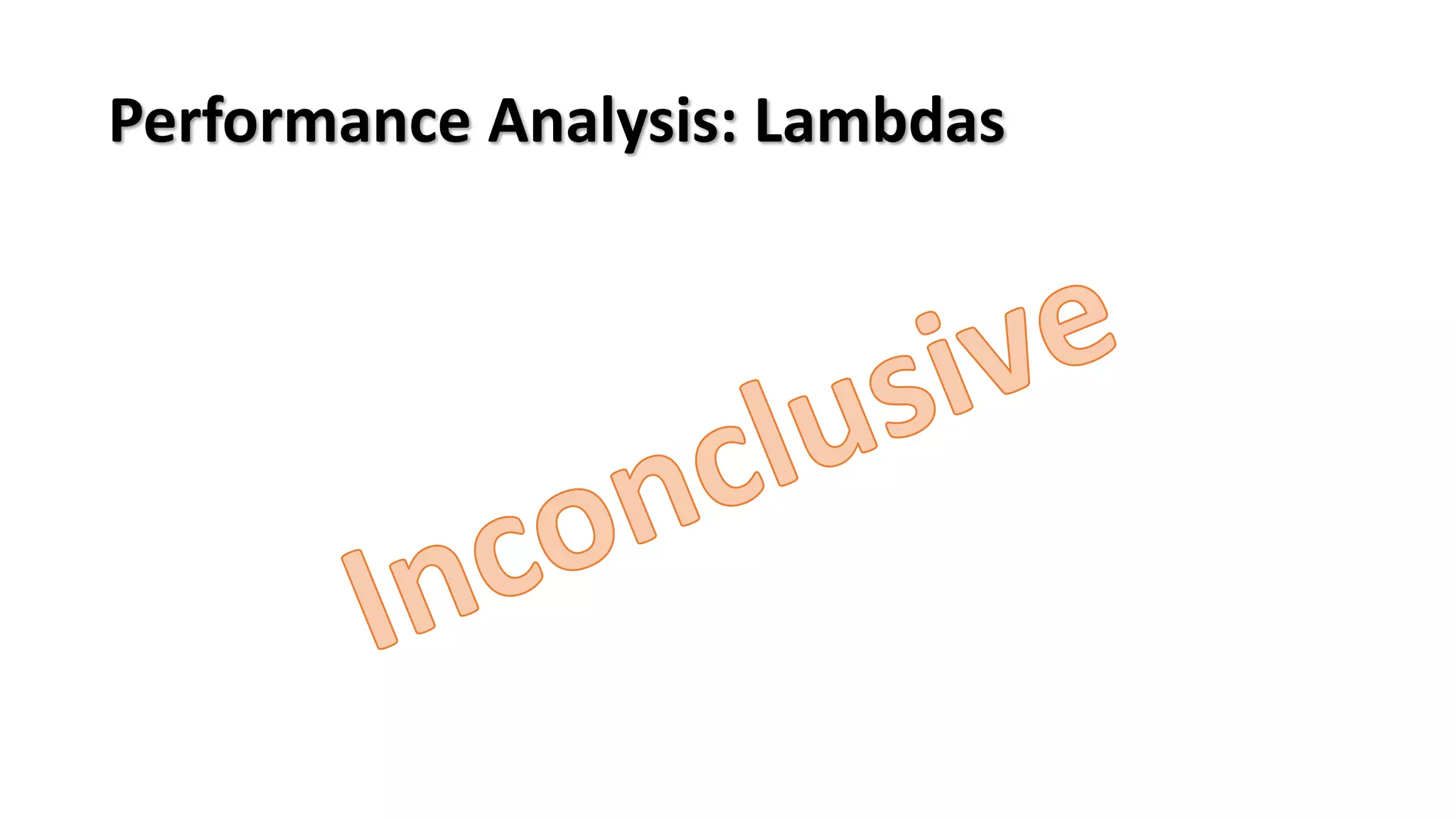
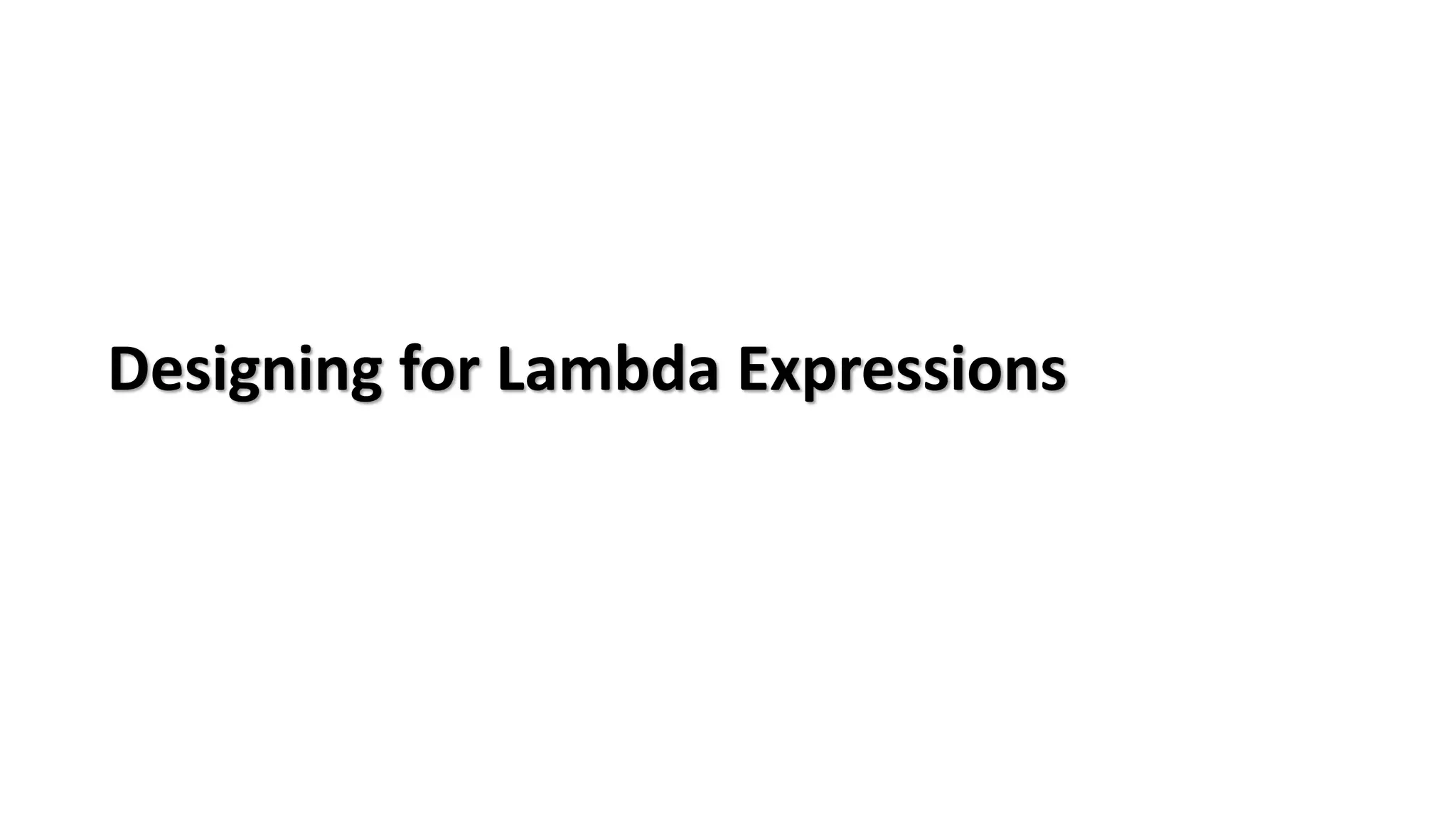
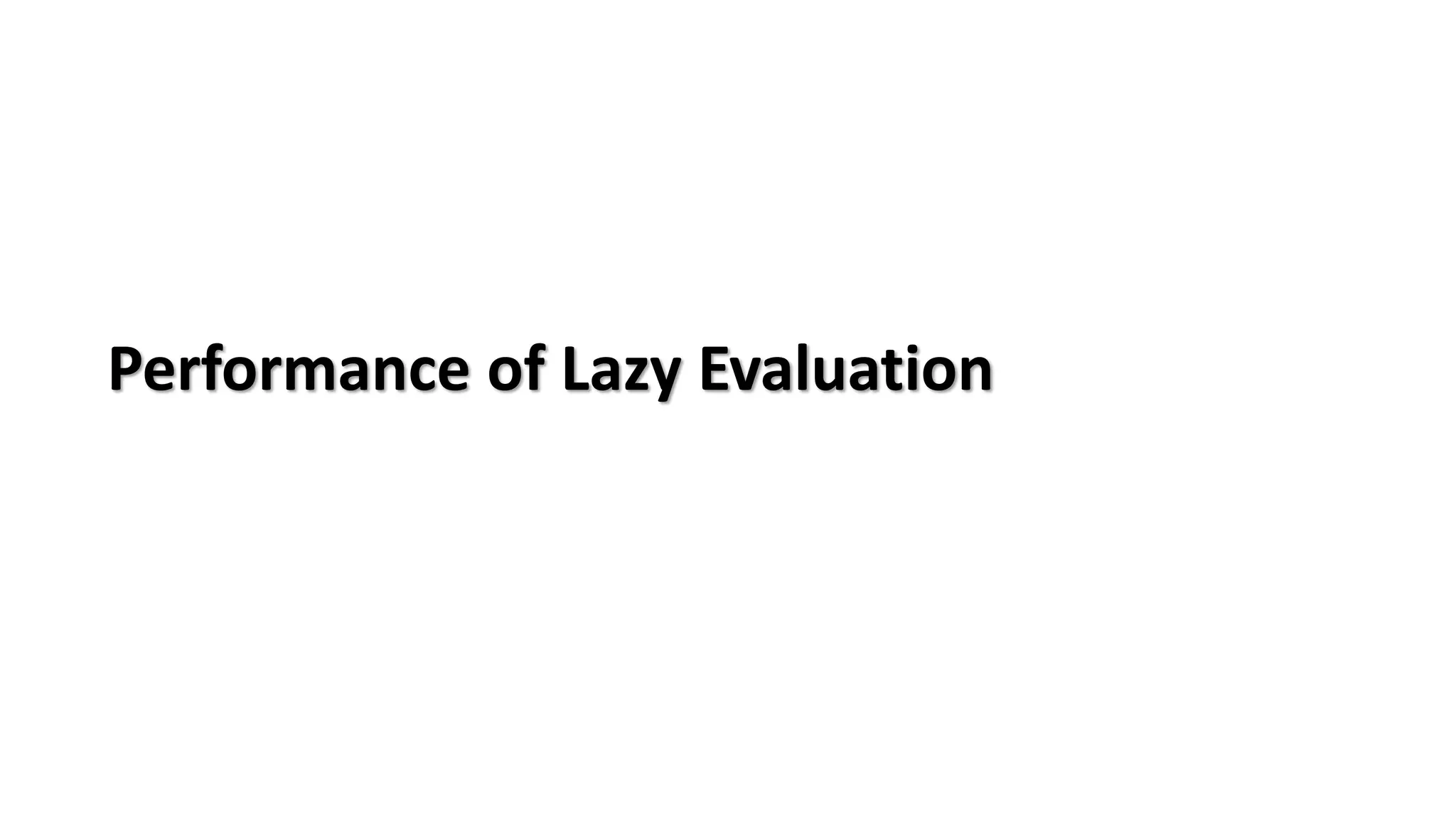
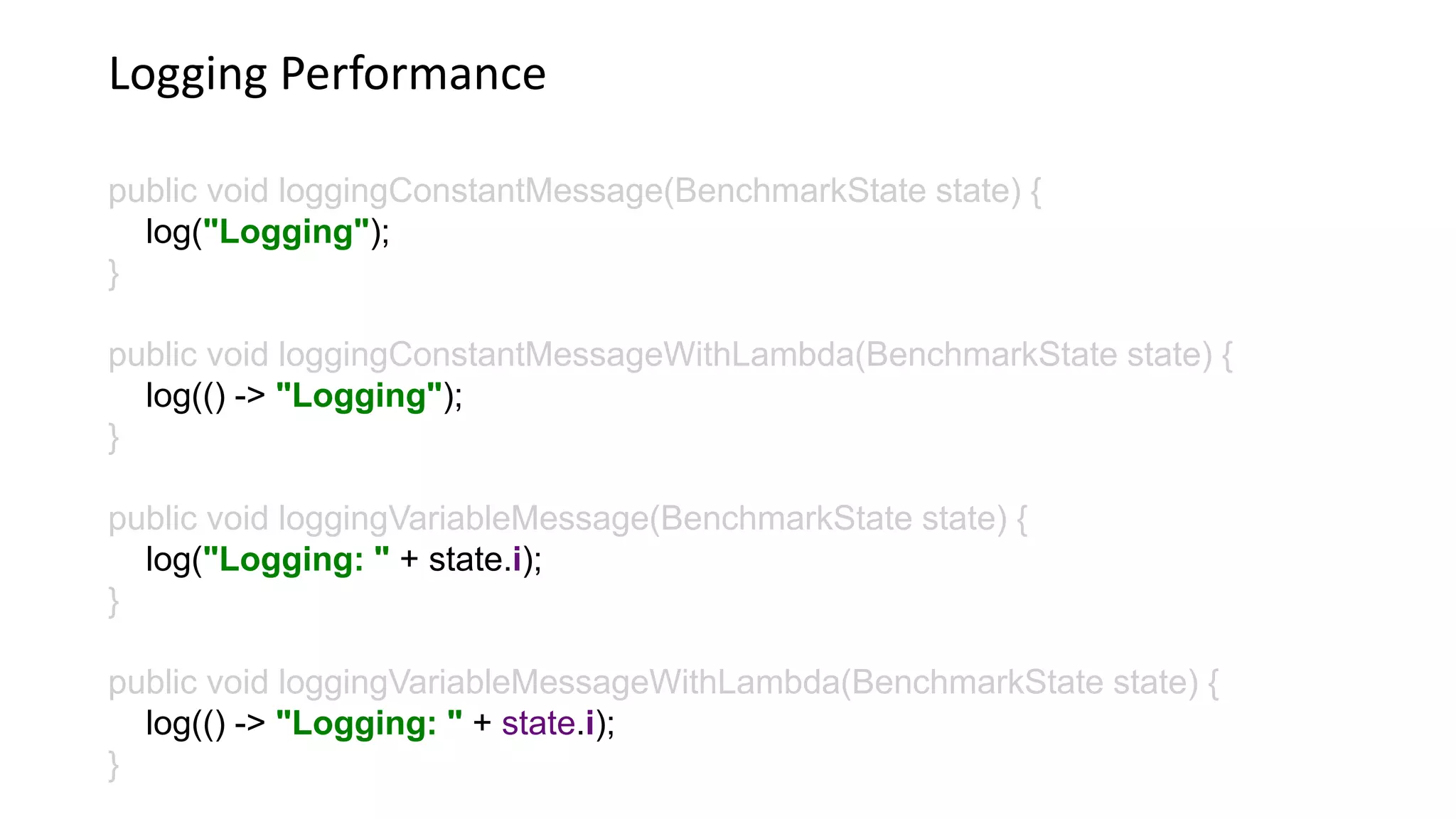
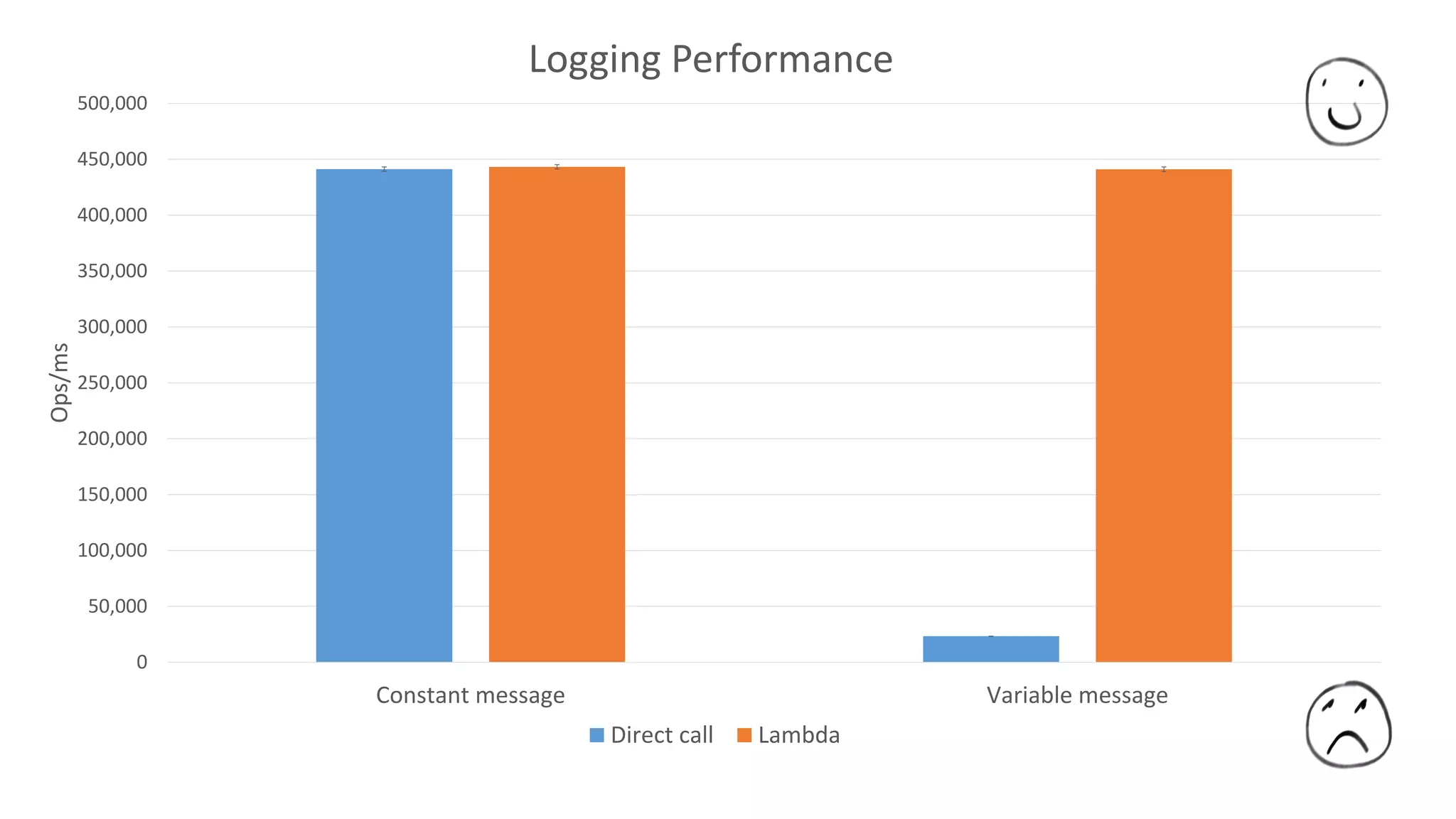
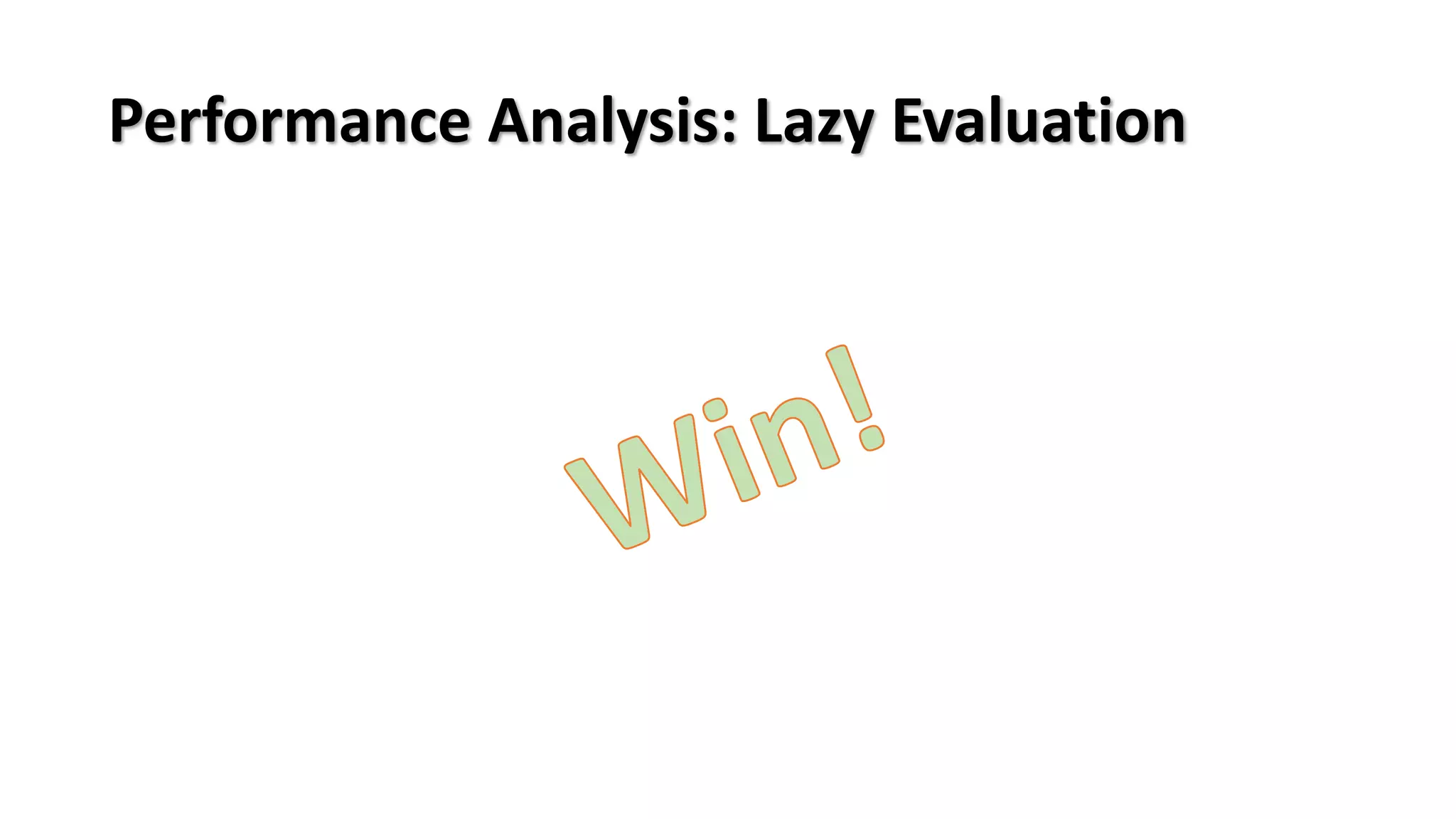
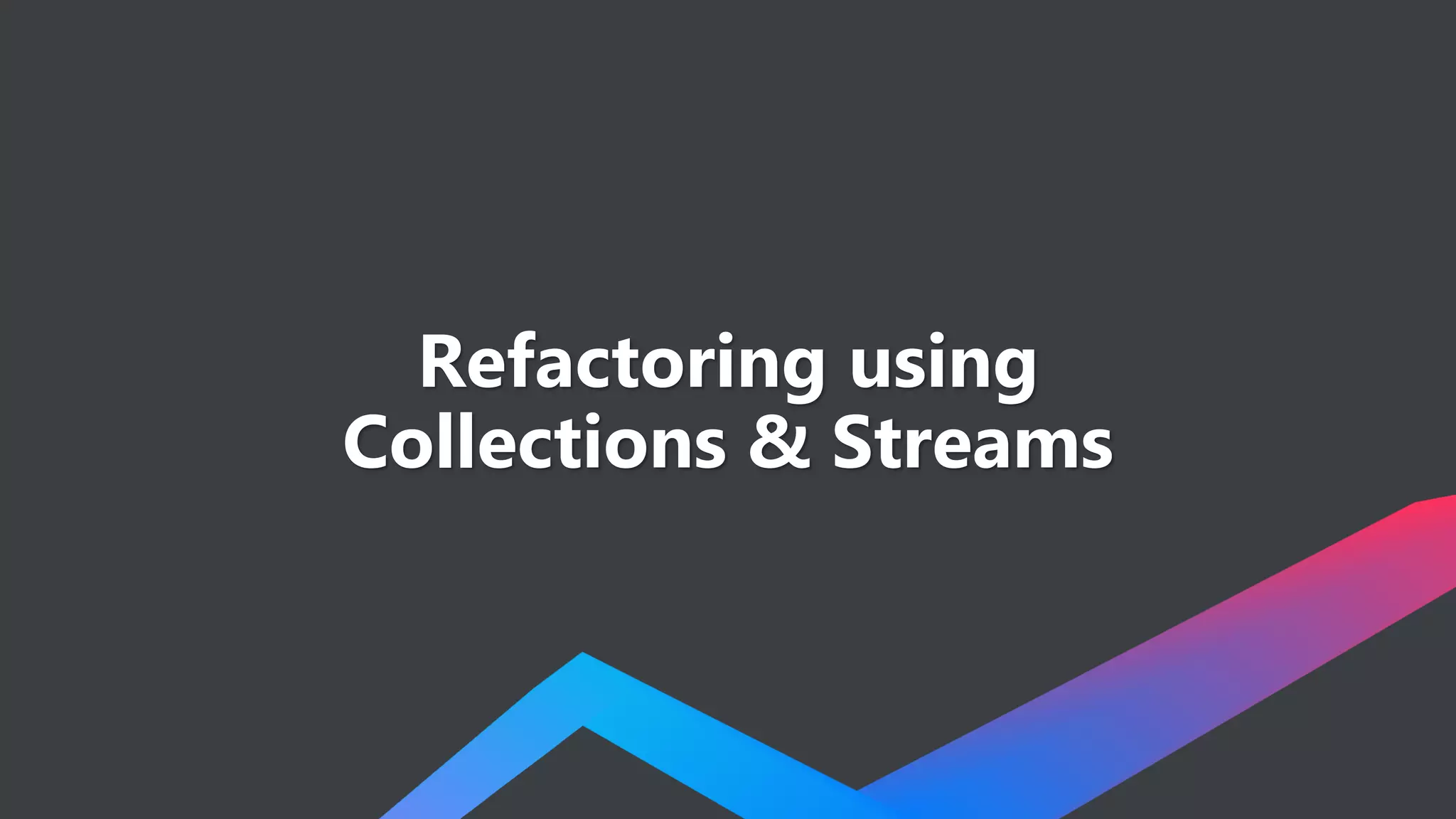
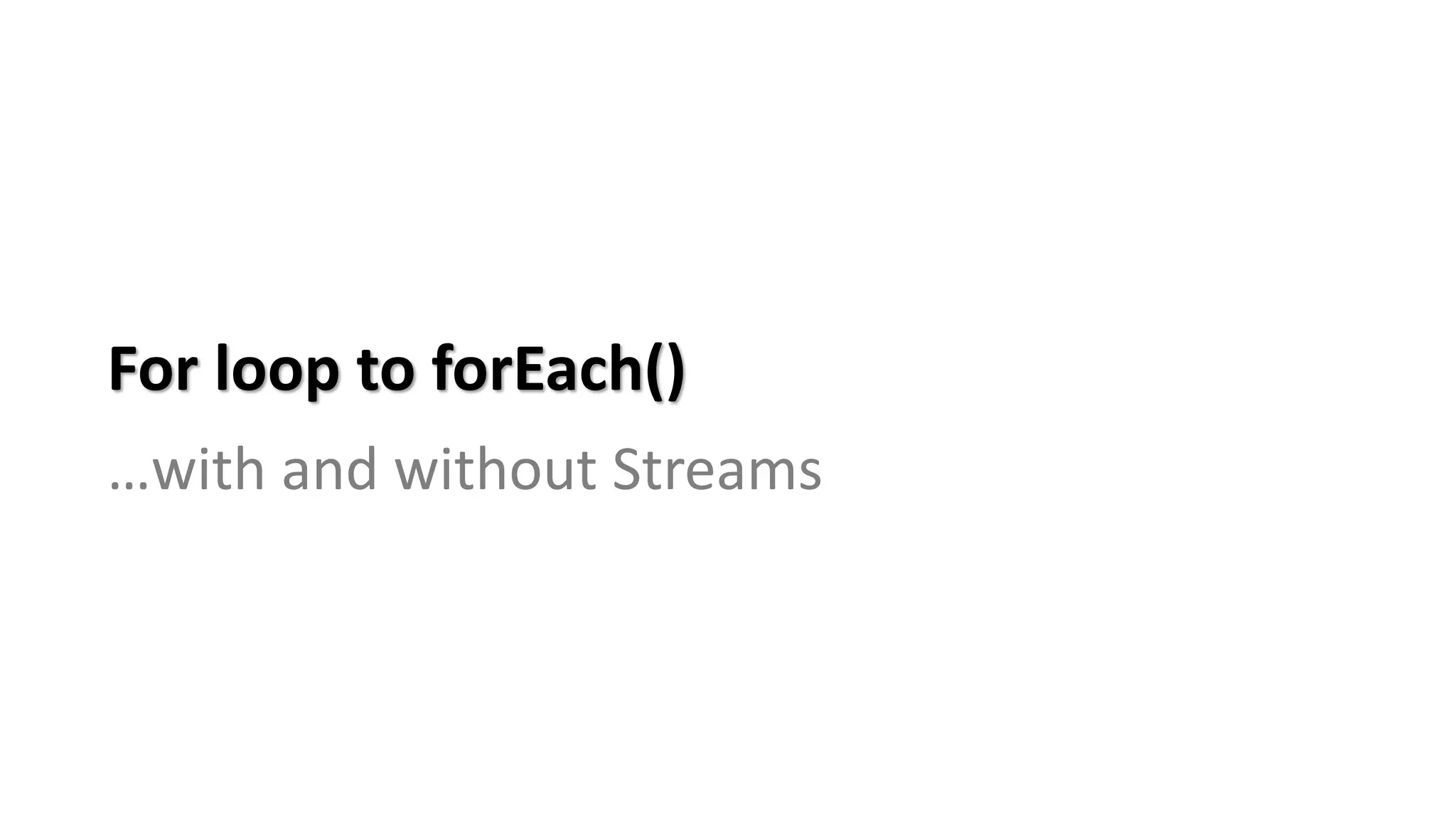
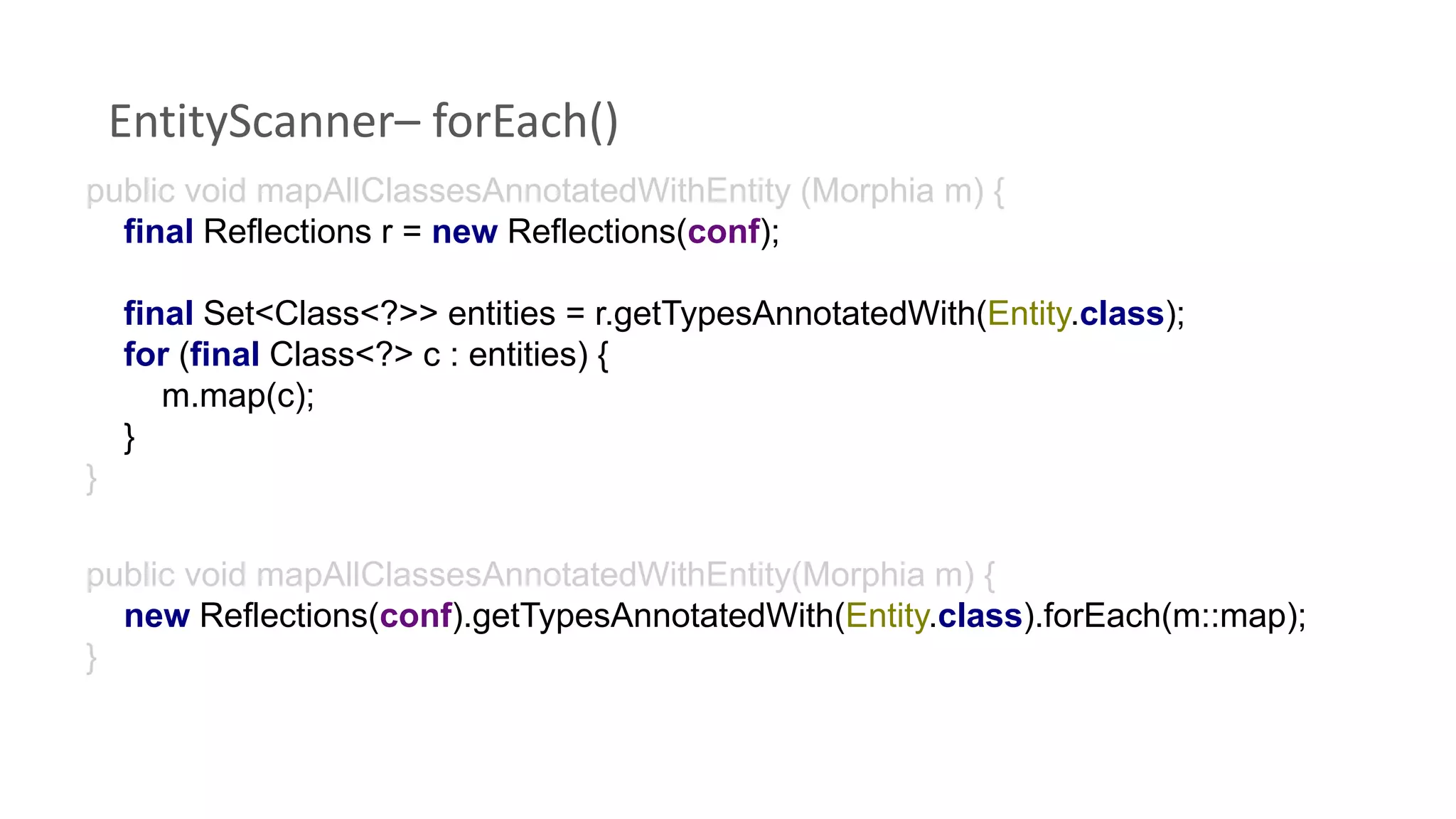
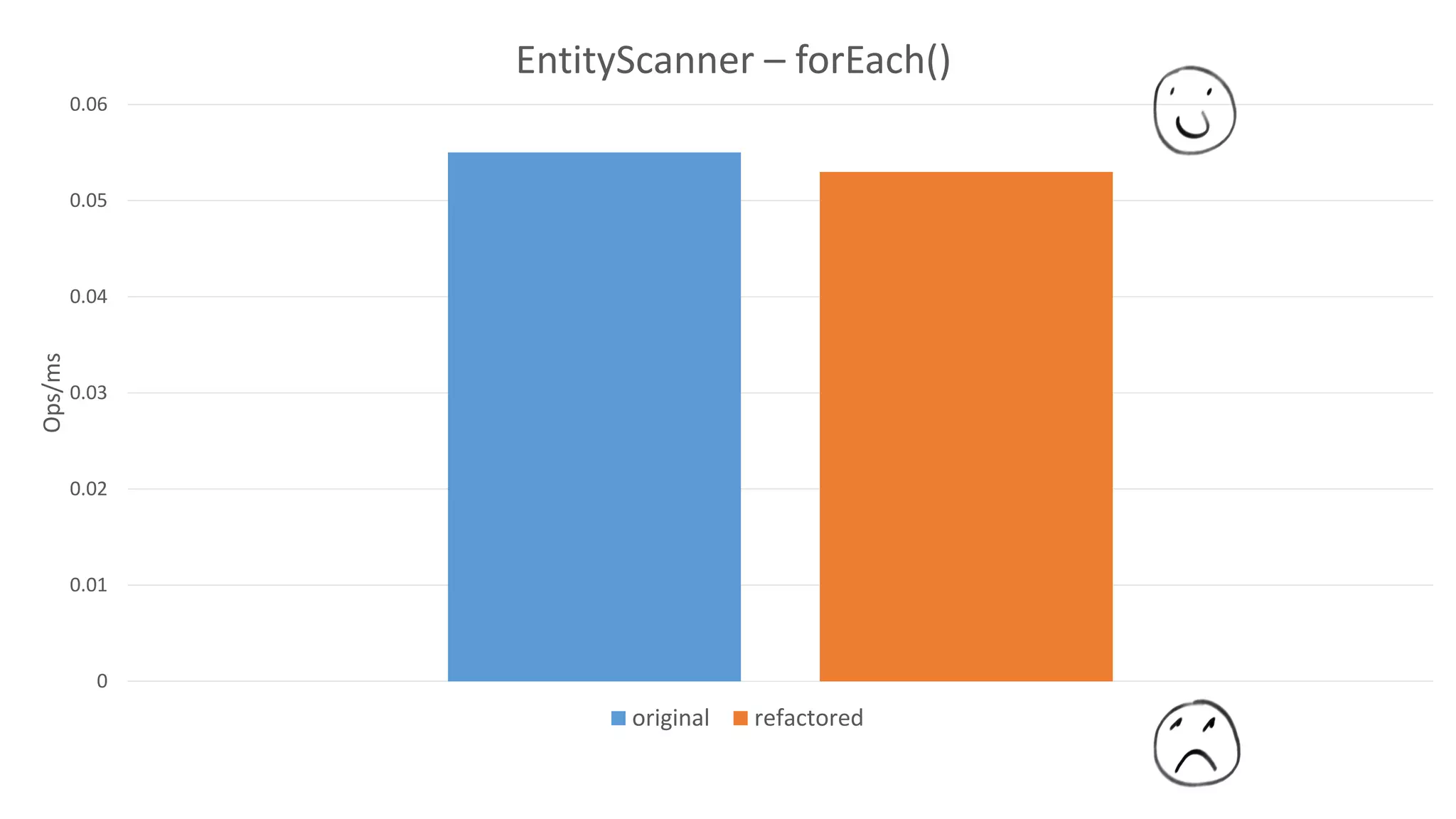
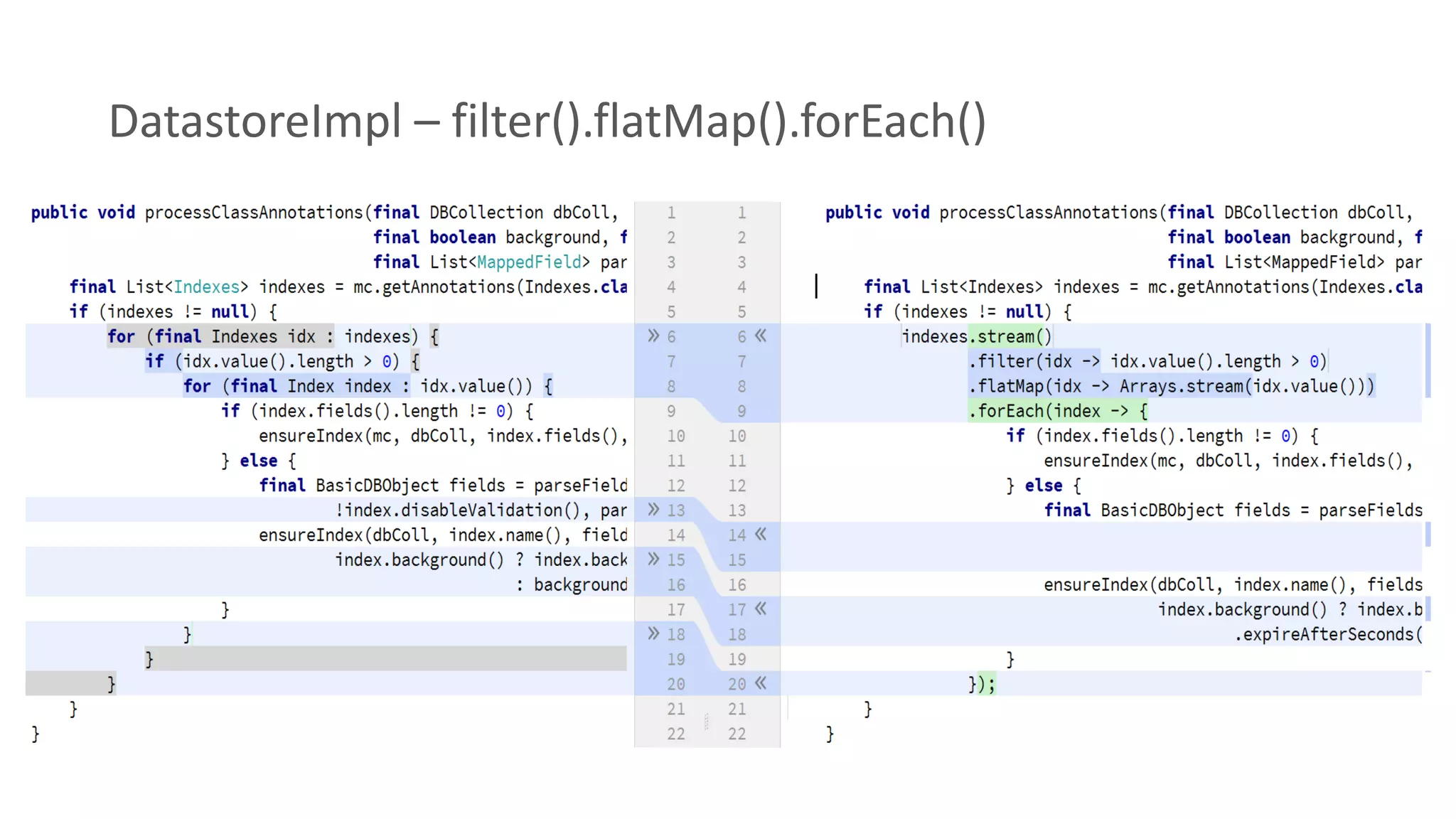
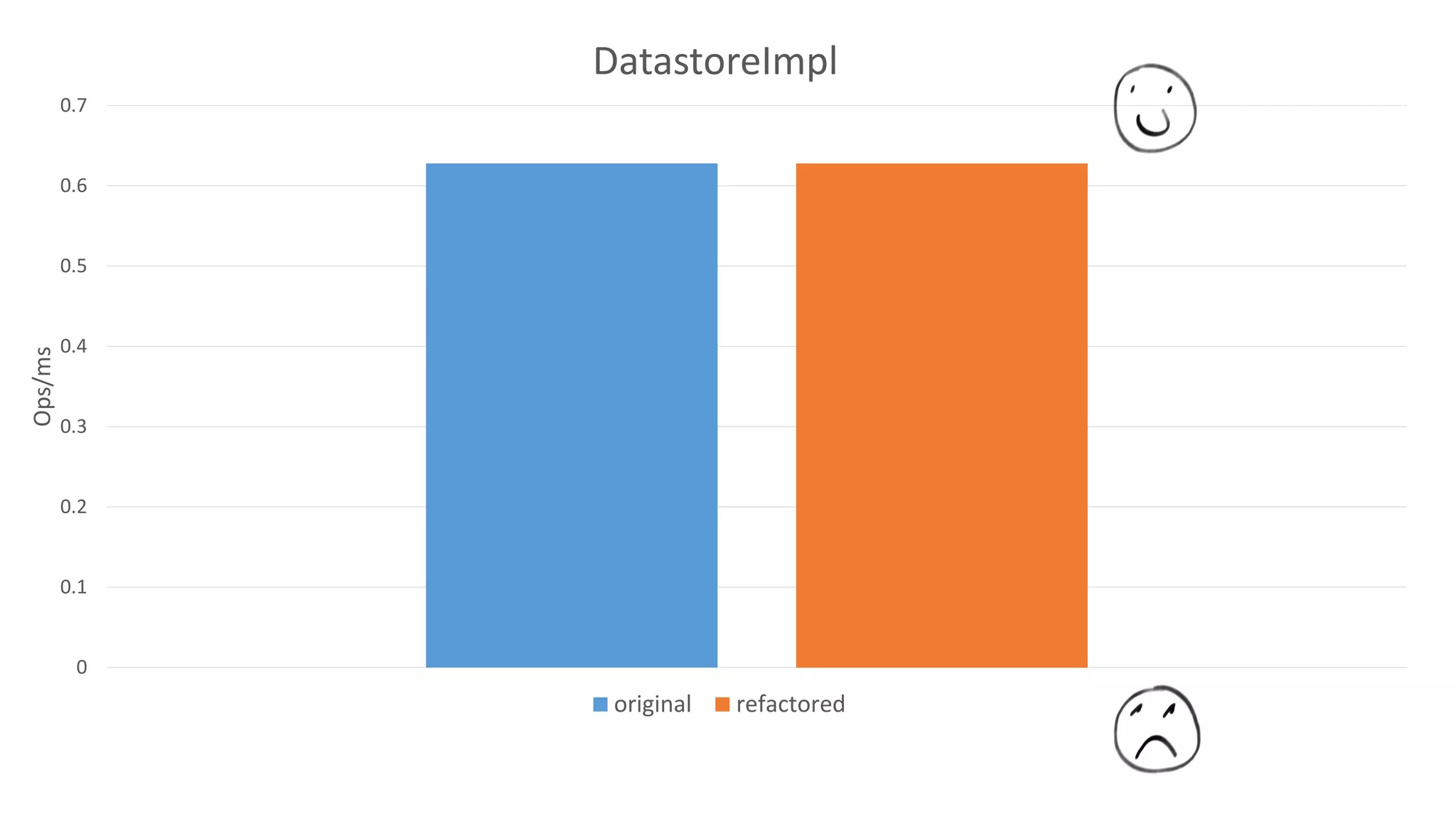
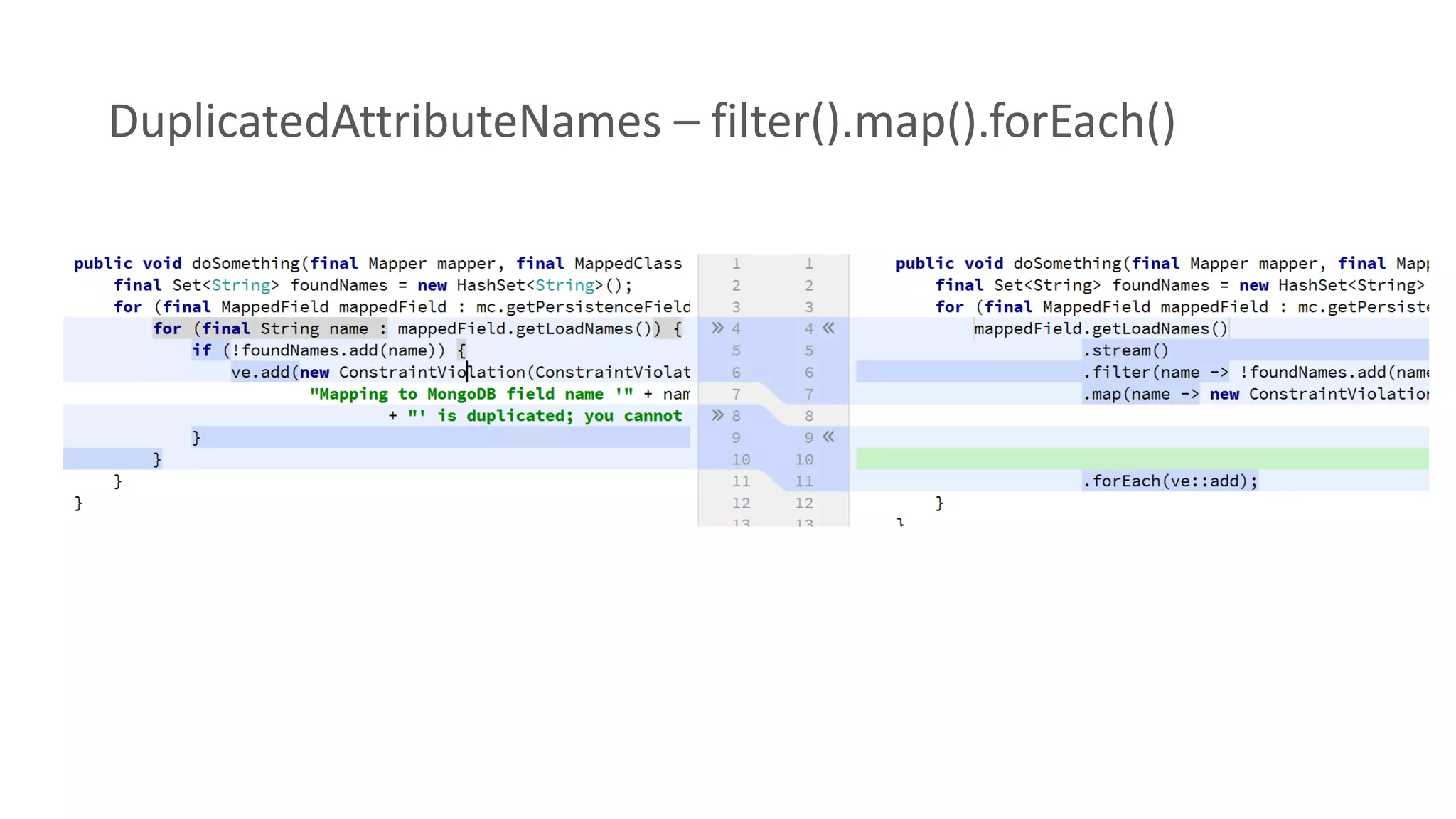
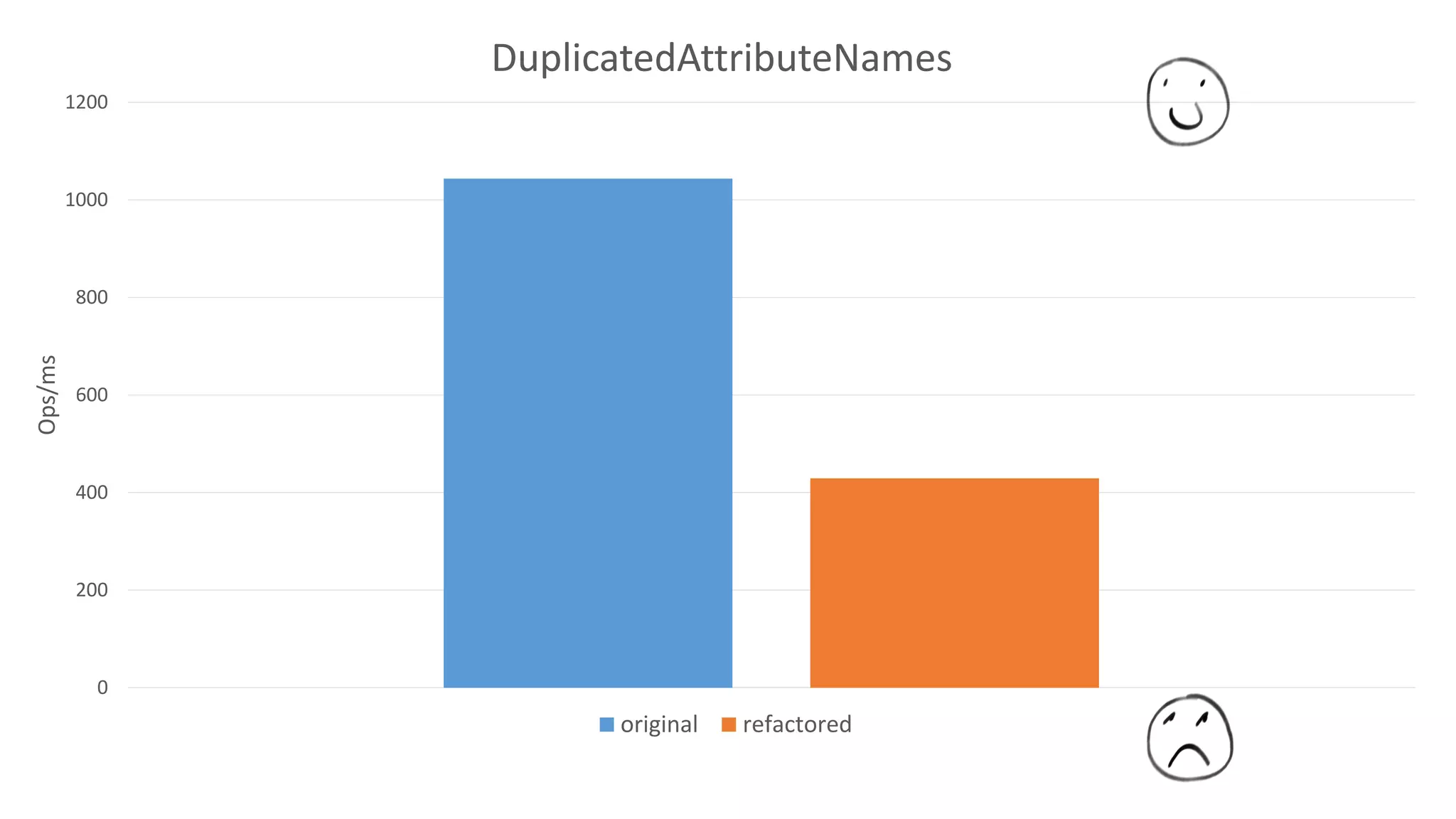
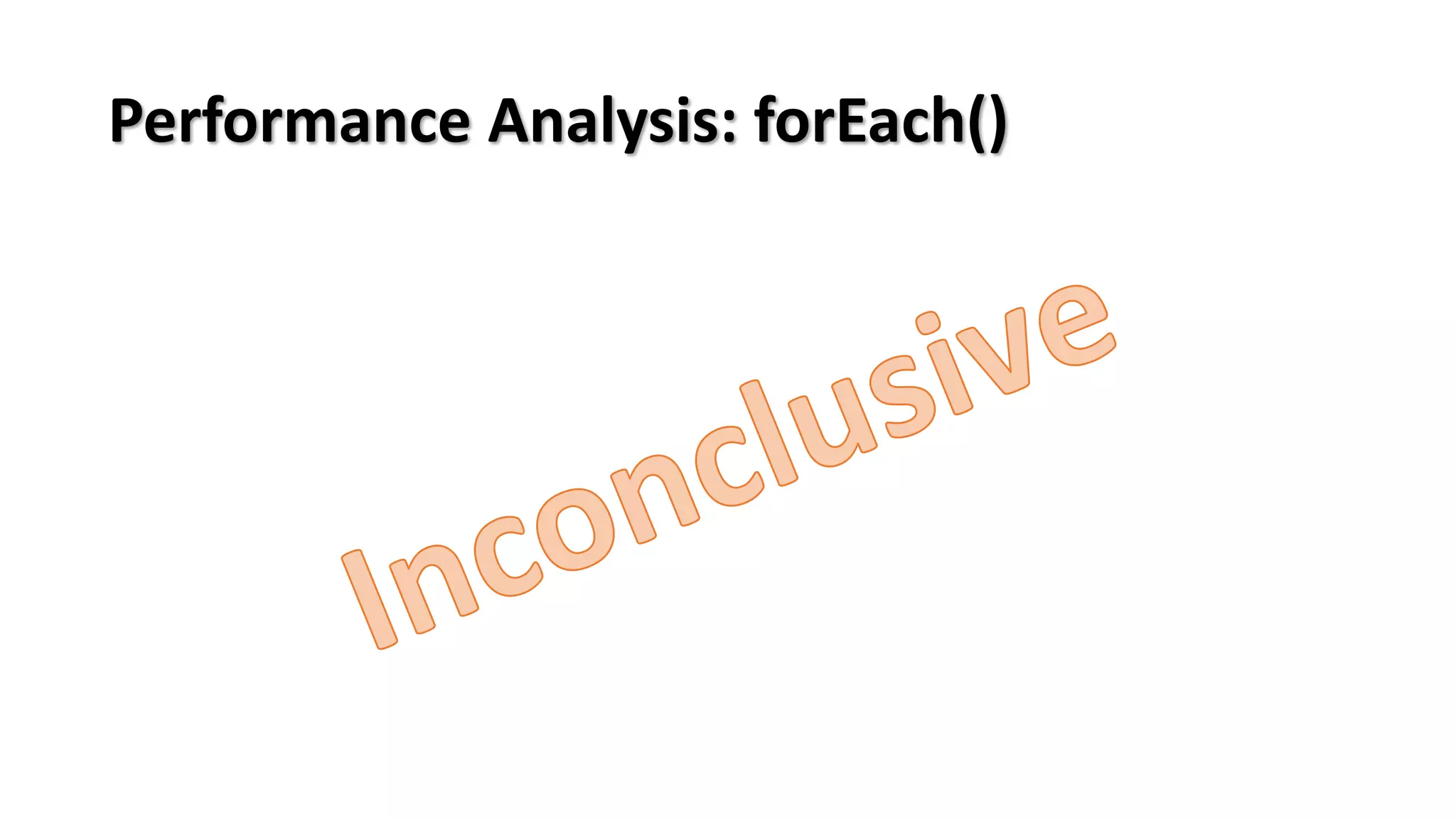

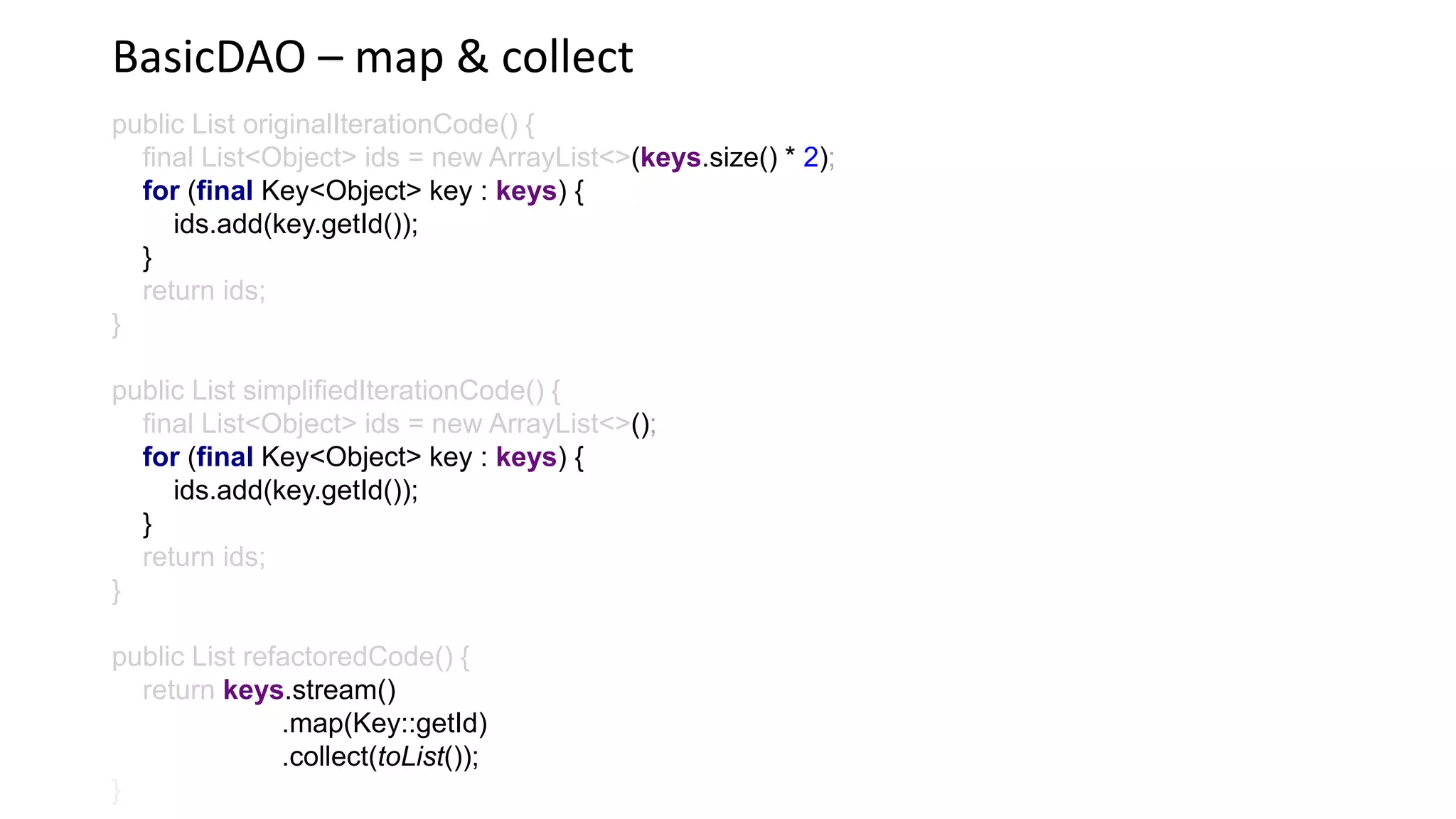
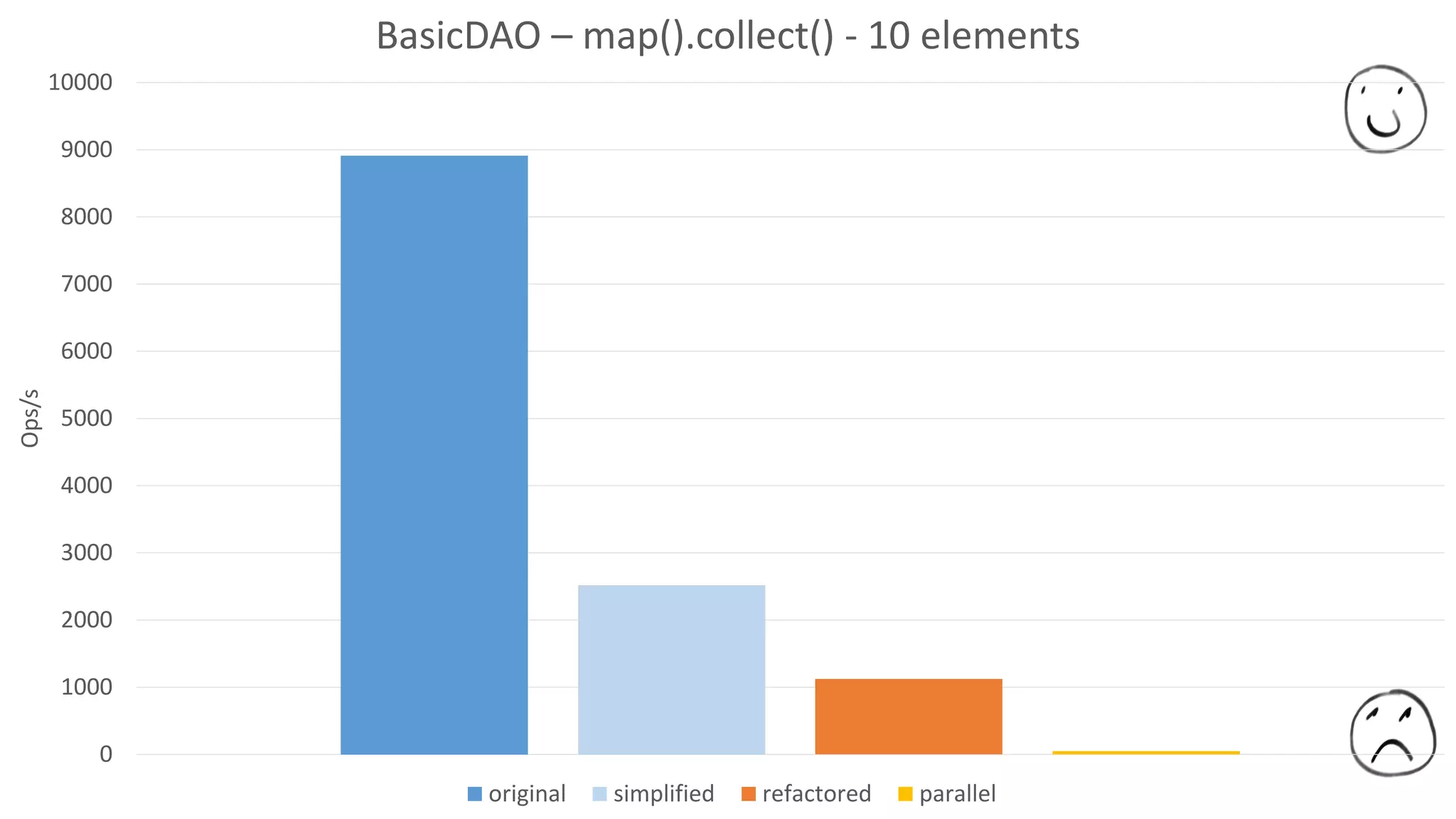
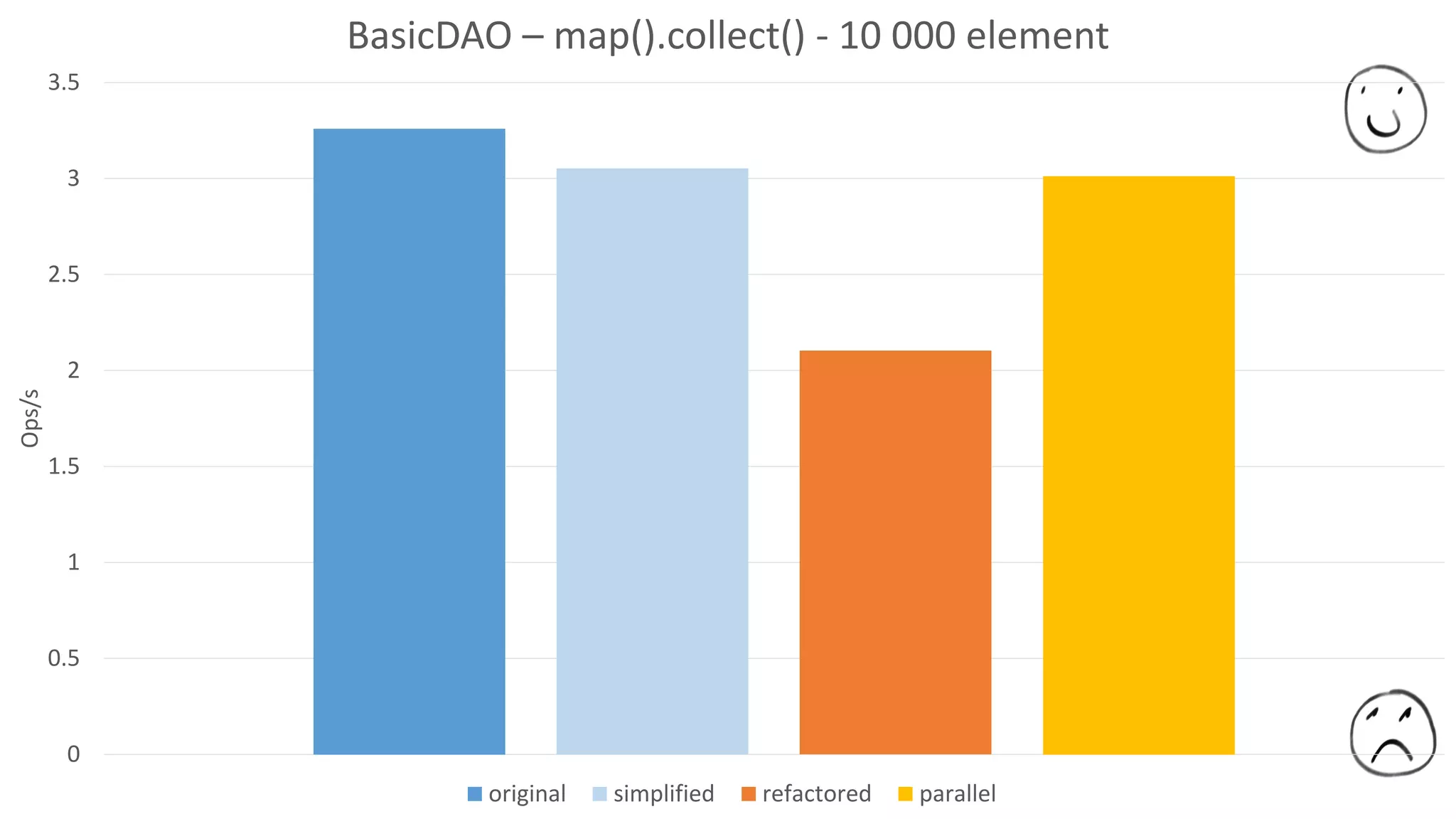
![ReflectionUtils
public static List<Field> original(final Field[] fields, final boolean returnFinalFields) {
final List<Field> validFields = new ArrayList<Field>();
// we ignore static and final fields
for (final Field field : fields) {
if (!Modifier.isStatic(field.getModifiers()) && (returnFinalFields || !Modifier.isFinal(field.getModifiers()))) {
validFields.add(field);
}
}
return validFields;
}
public static List<Field> refactored(final Field[] fields, final boolean returnFinalFields) {
return Arrays.stream(fields)
.filter(field -> isNotStaticOrFinal(returnFinalFields, field))
.collect(Collectors.toList());
}](https://image.slidesharecdn.com/refactoringtojava8-devoxx-161116094805/75/Refactoring-to-Java-8-Devoxx-BE-40-2048.jpg)
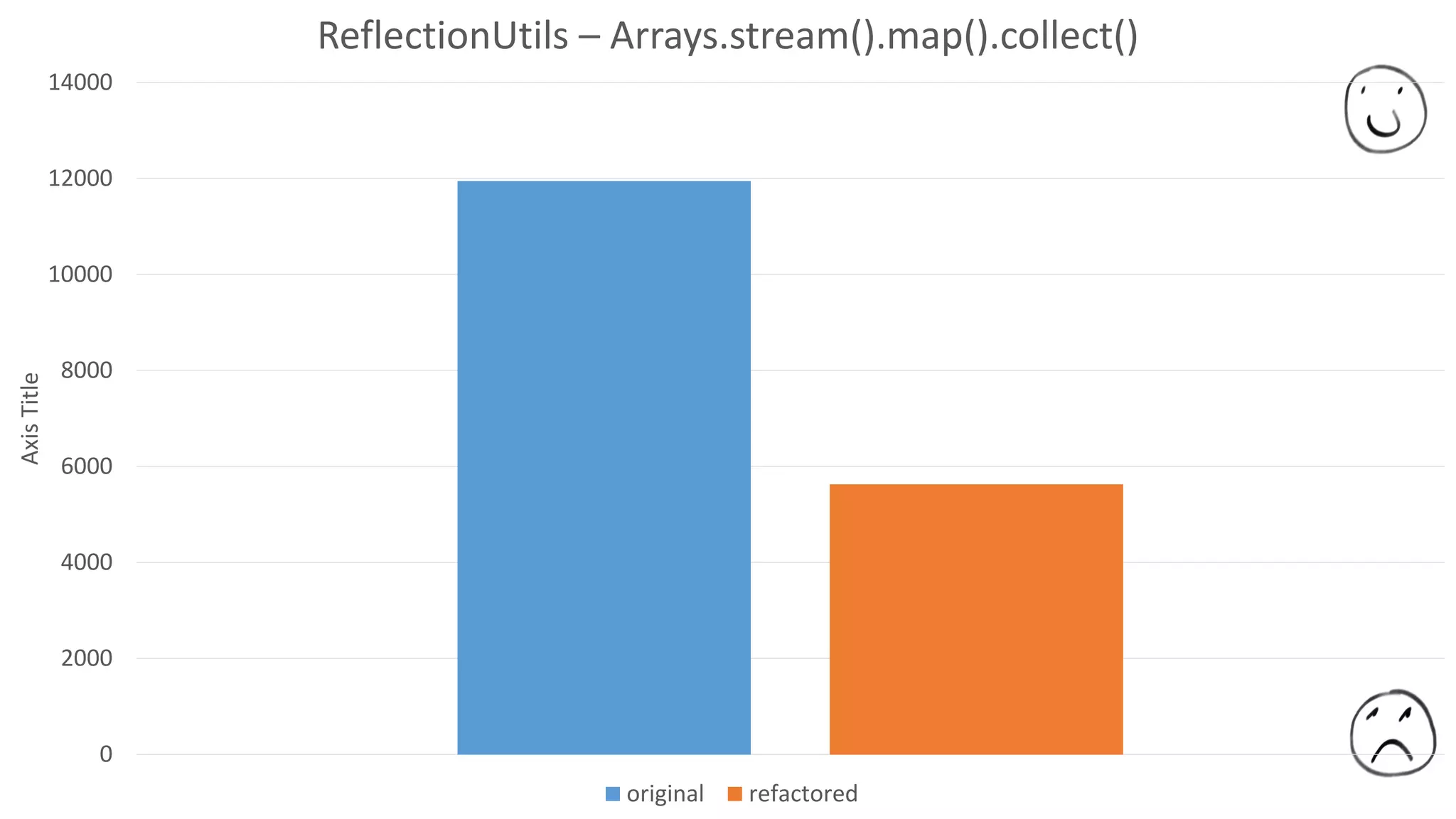
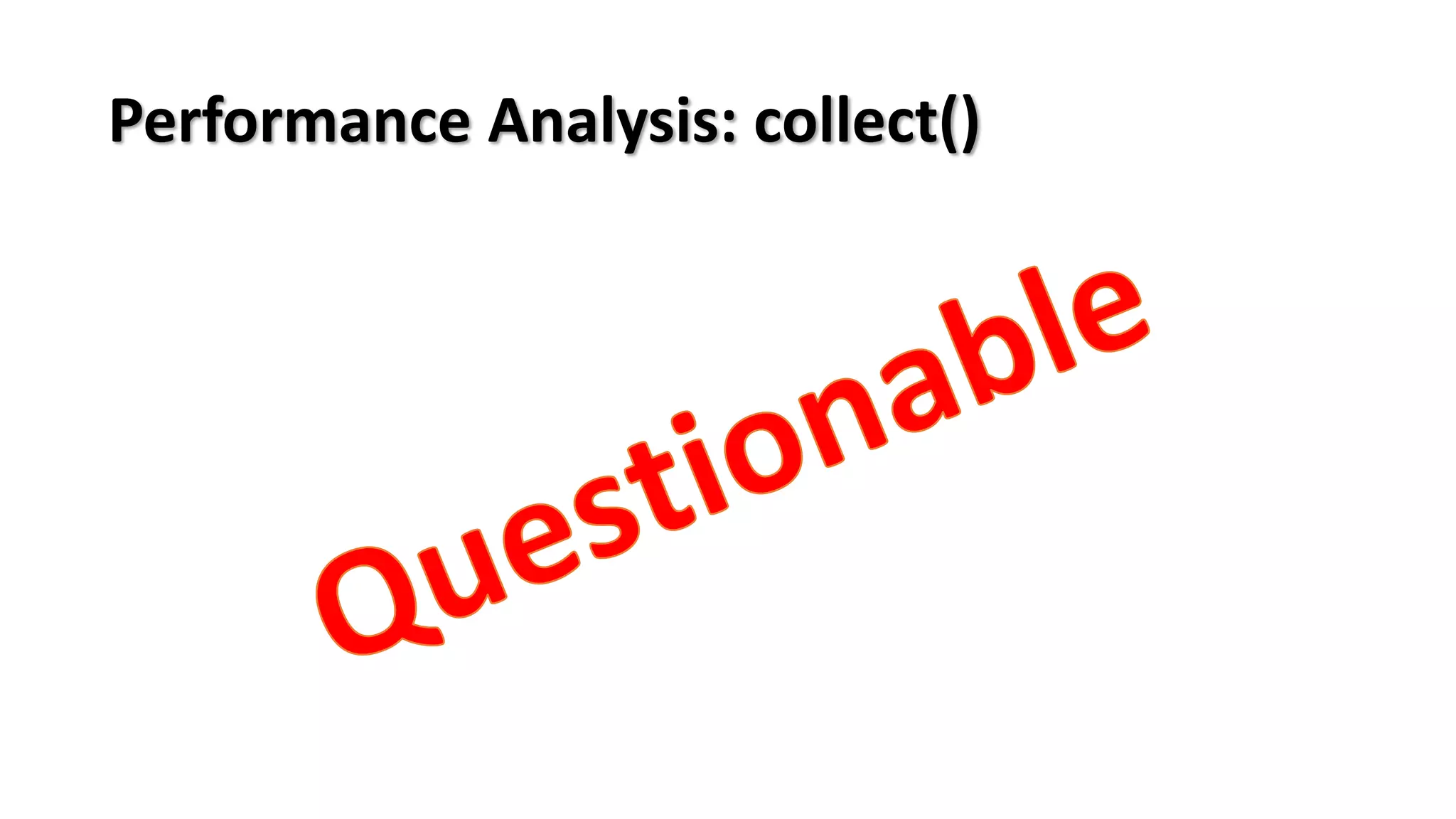
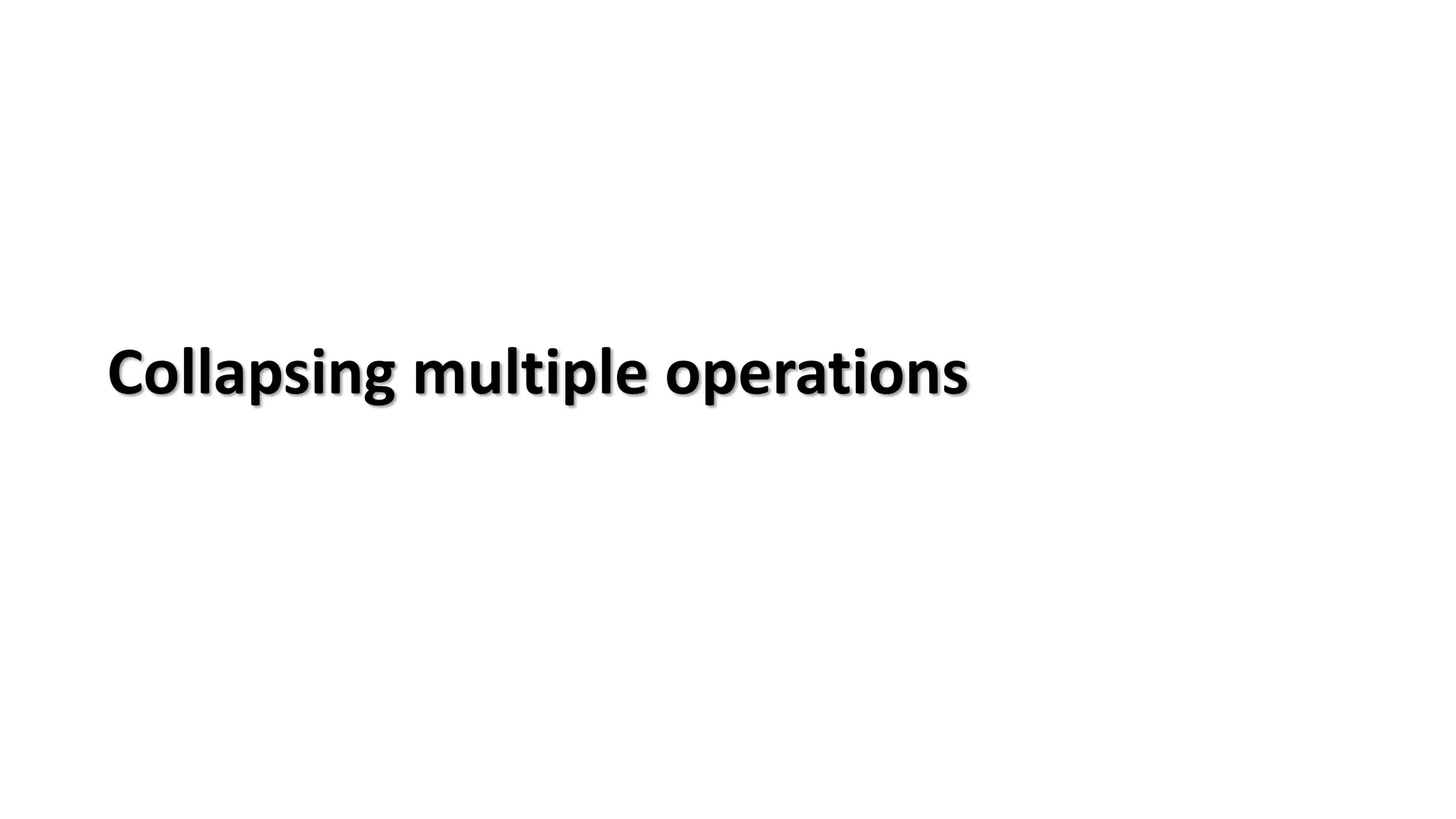
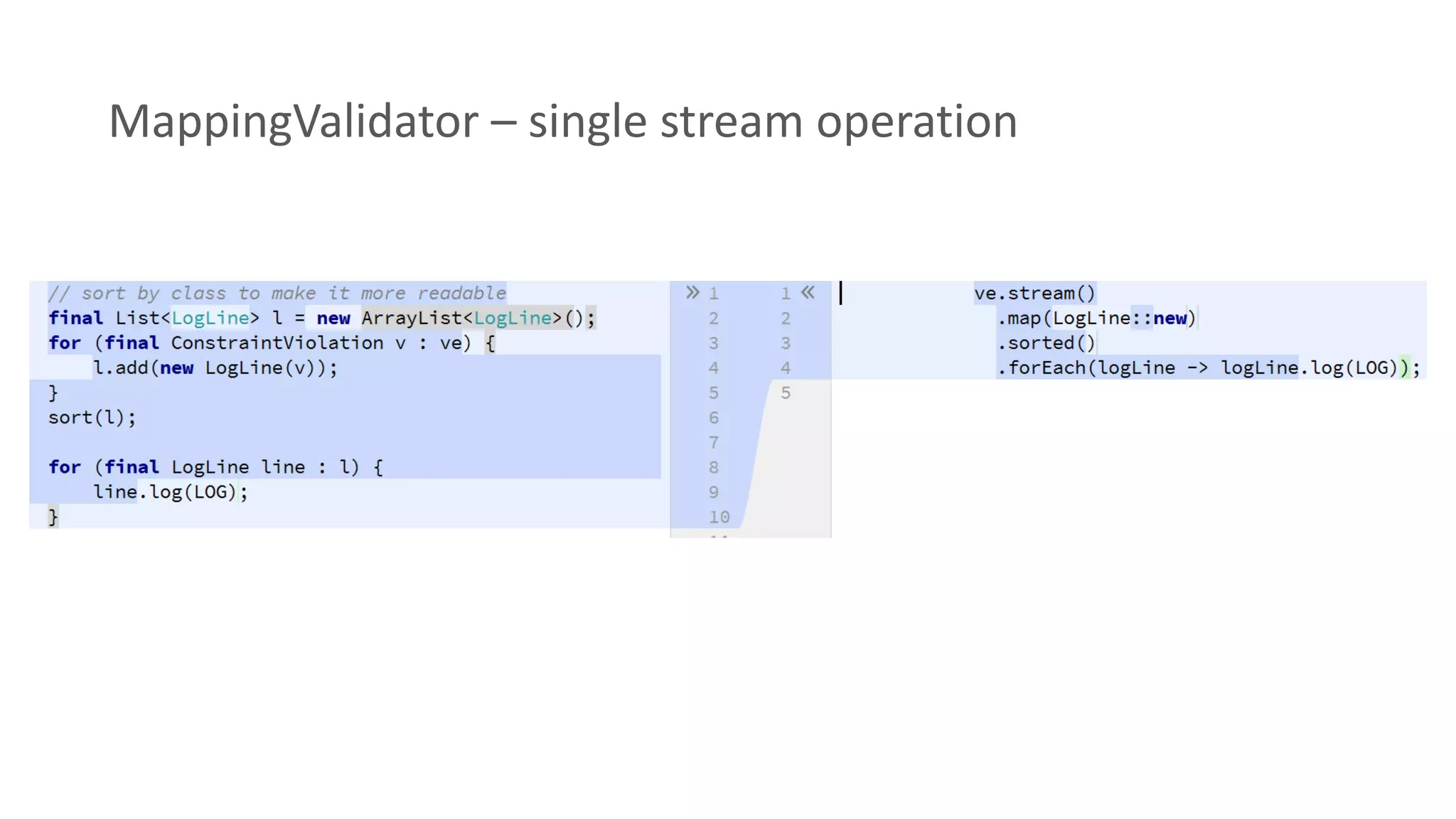
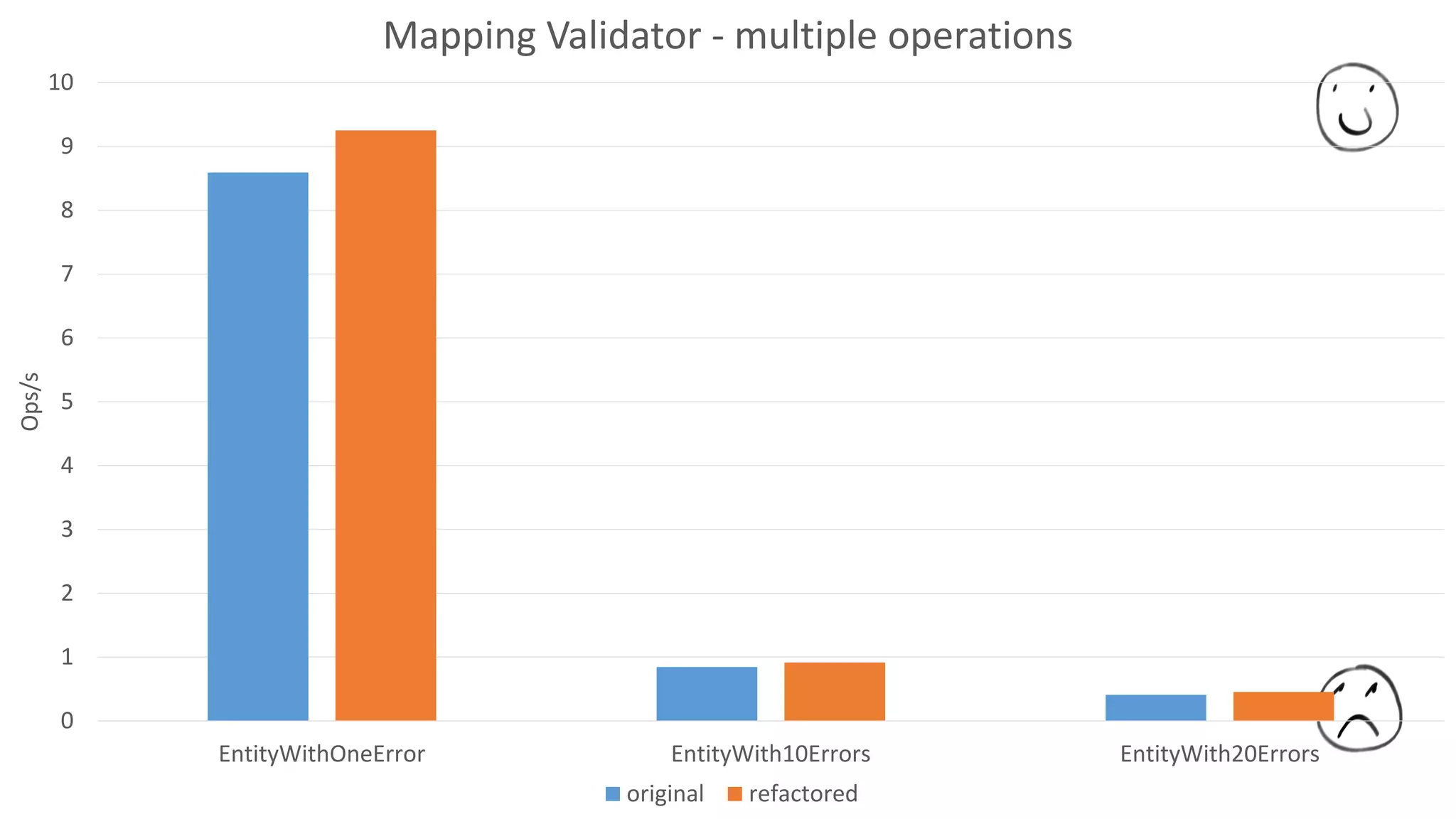
![QueryImpl – multiple operations
public String[] retrieveKnownFields(org.mongodb.morphia.DatastoreImpl ds, Class clazz) {
final MappedClass mc = ds.getMapper().getMappedClass(clazz);
final List<String> fields = new ArrayList<String>(mc.getPersistenceFields().size() + 1);
for (final MappedField mf : mc.getPersistenceFields()) {
fields.add(mf.getNameToStore());
}
return fields.toArray(new String[fields.size()]);
}
public String[] retrieveKnownFieldsRefactored(org.mongodb.morphia.DatastoreImpl ds, Class clazz) {
final MappedClass mc = ds.getMapper().getMappedClass(clazz);
return mc.getPersistenceFields()
.stream()
.map(MappedField::getNameToStore)
.collect(Collectors.toList())
.toArray(new String[0]);
}
public String[] retrieveKnownFields(org.mongodb.morphia.DatastoreImpl ds, Class clazz) {
final MappedClass mc = ds.getMapper().getMappedClass(clazz);
return mc.getPersistenceFields()
.stream()
.map(MappedField::getNameToStore)
.toArray(String[]::new);
}](https://image.slidesharecdn.com/refactoringtojava8-devoxx-161116094805/75/Refactoring-to-Java-8-Devoxx-BE-46-2048.jpg)
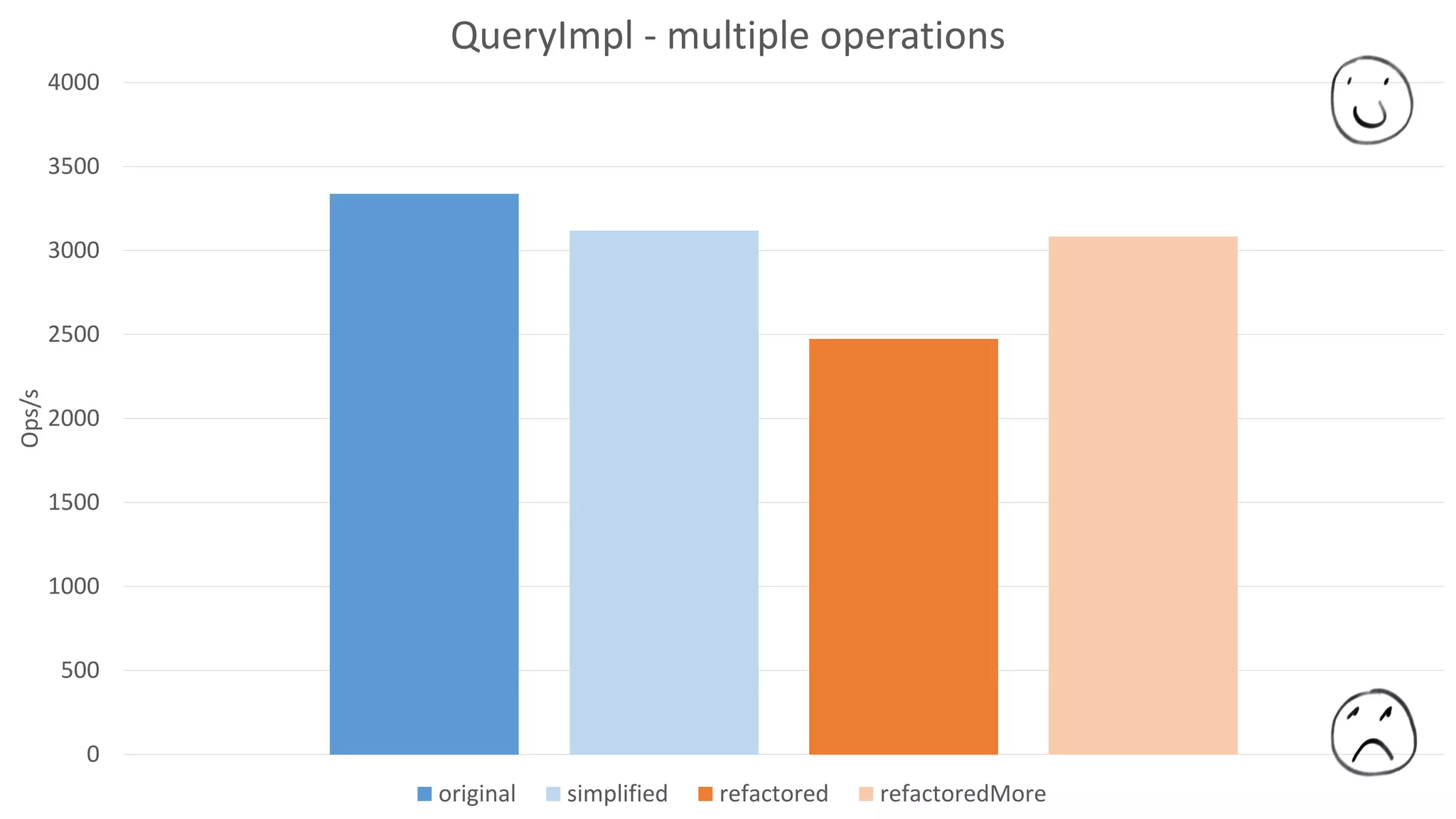
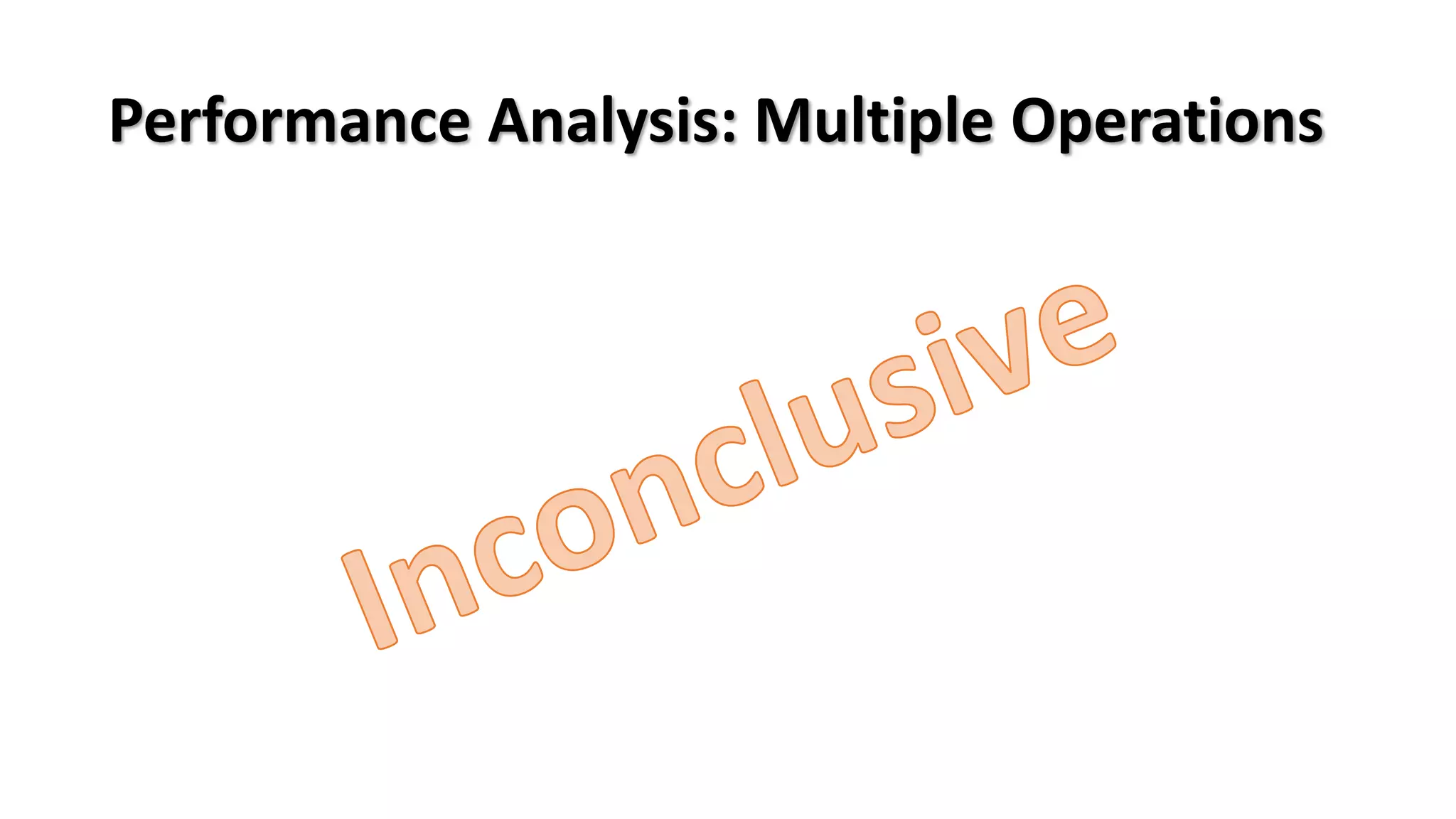
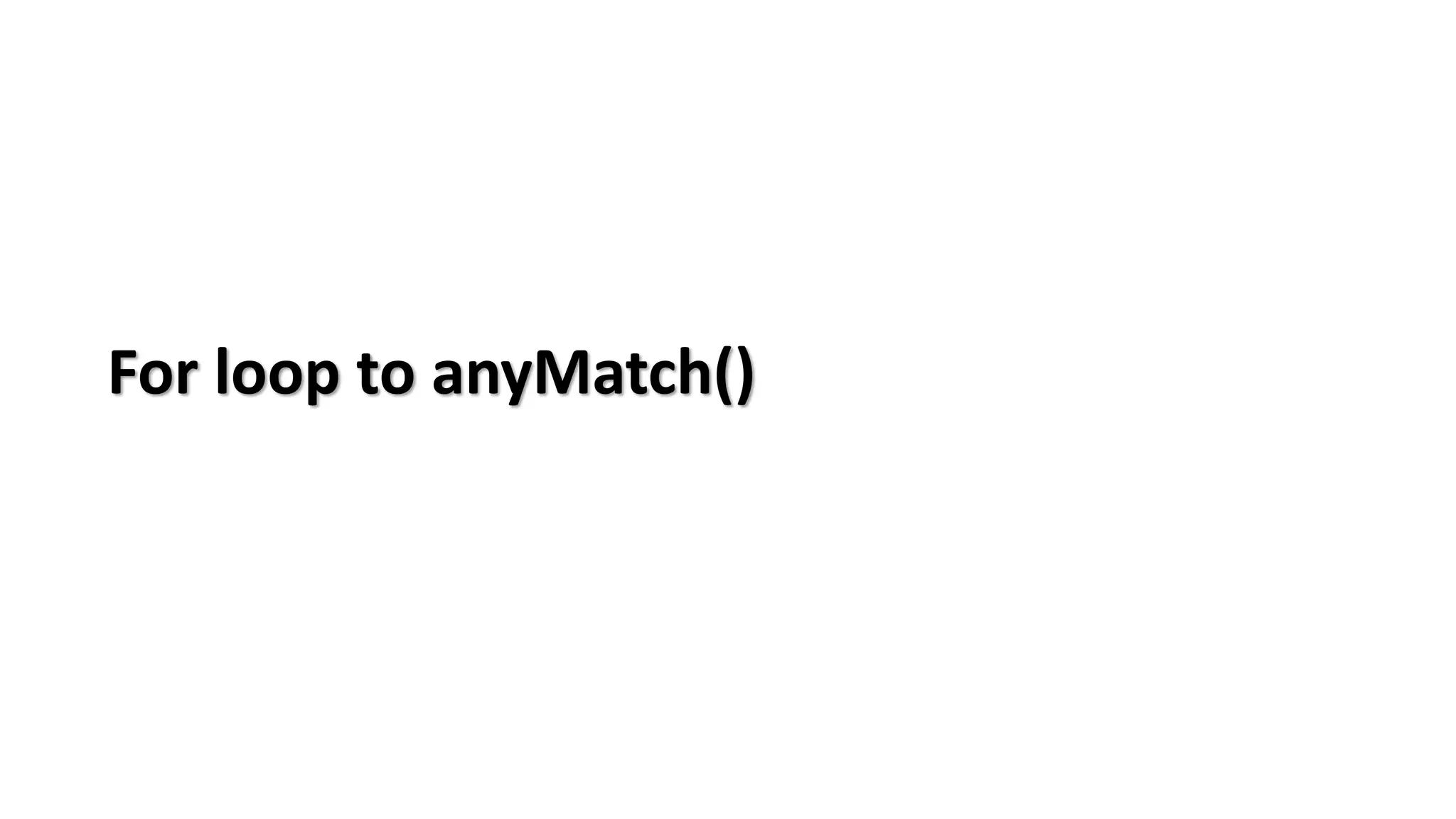
![TypeConverter – anyMatch()
protected boolean oneOfClasses(final Class f, final Class[] classes) {
for (final Class c : classes) {
if (c.equals(f)) {
return true;
}
}
return false;
}
protected boolean oneOfClasses(final Class f, final Class[] classes) {
return Arrays.stream(classes)
.anyMatch(c -> c.equals(f));
}
protected boolean oneOfClasses(final Class f, final Class[] classes) {
return Arrays.stream(classes)
.parallel()
.anyMatch(c -> c.equals(f));
}](https://image.slidesharecdn.com/refactoringtojava8-devoxx-161116094805/75/Refactoring-to-Java-8-Devoxx-BE-50-2048.jpg)
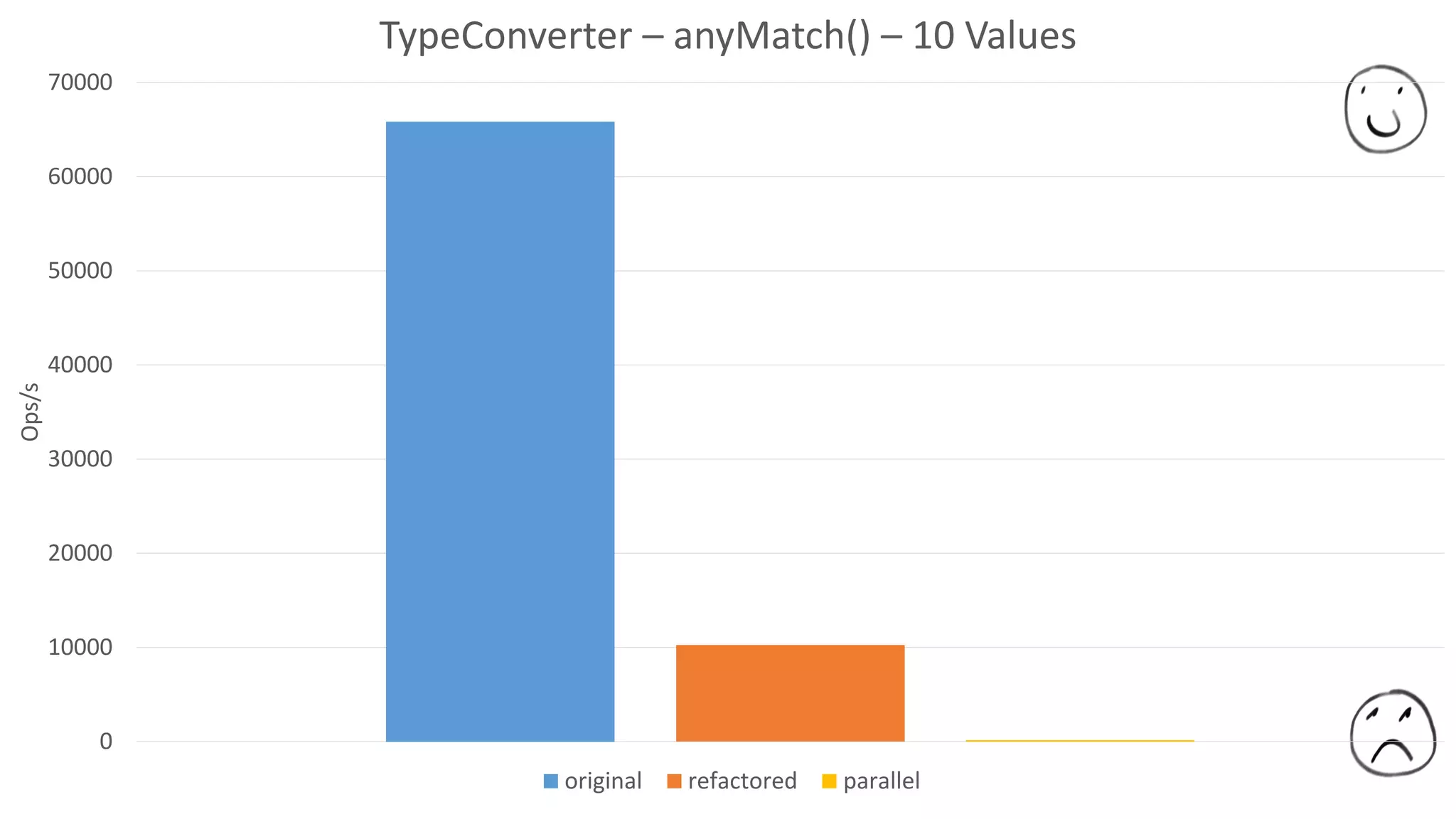
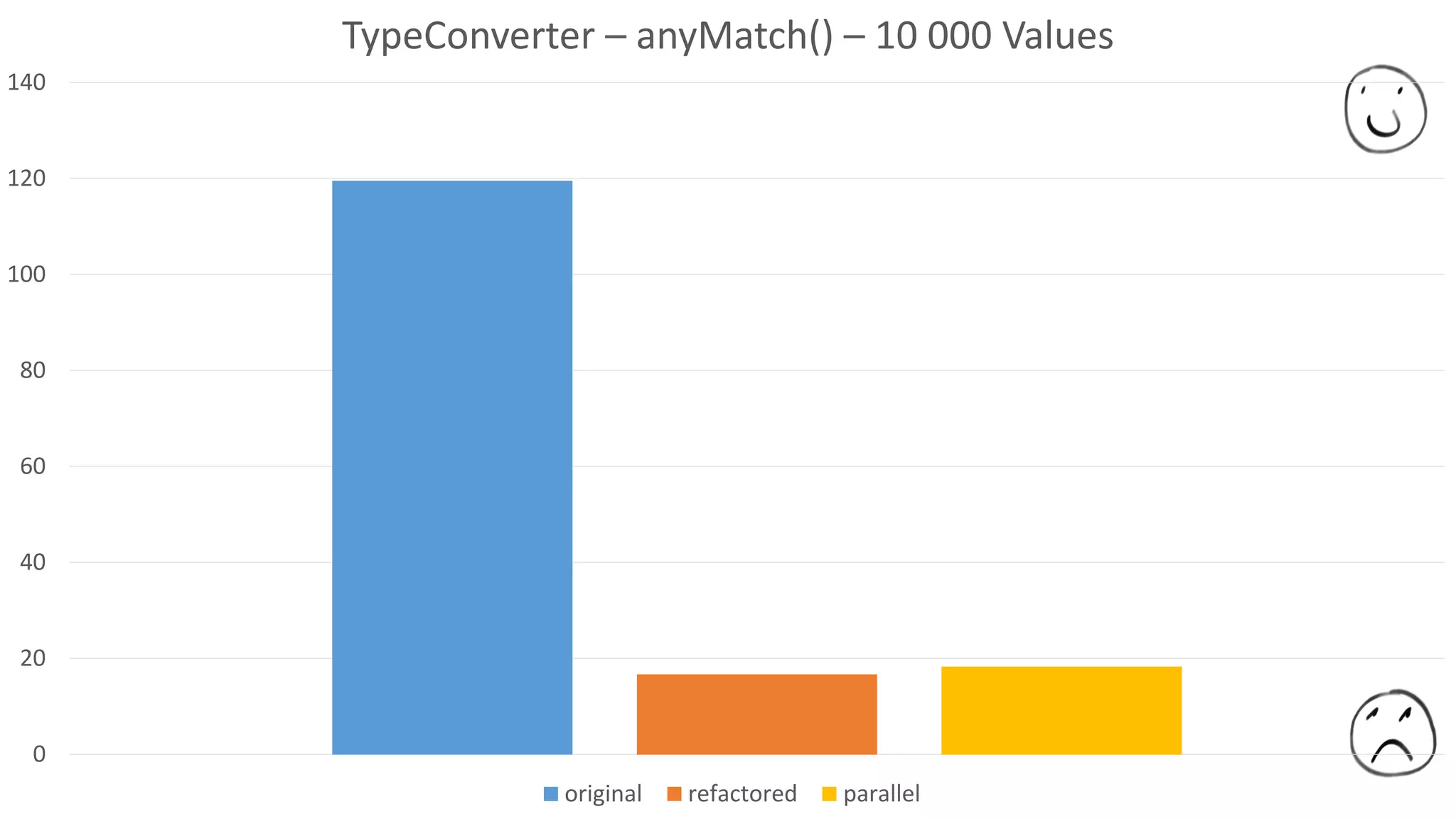
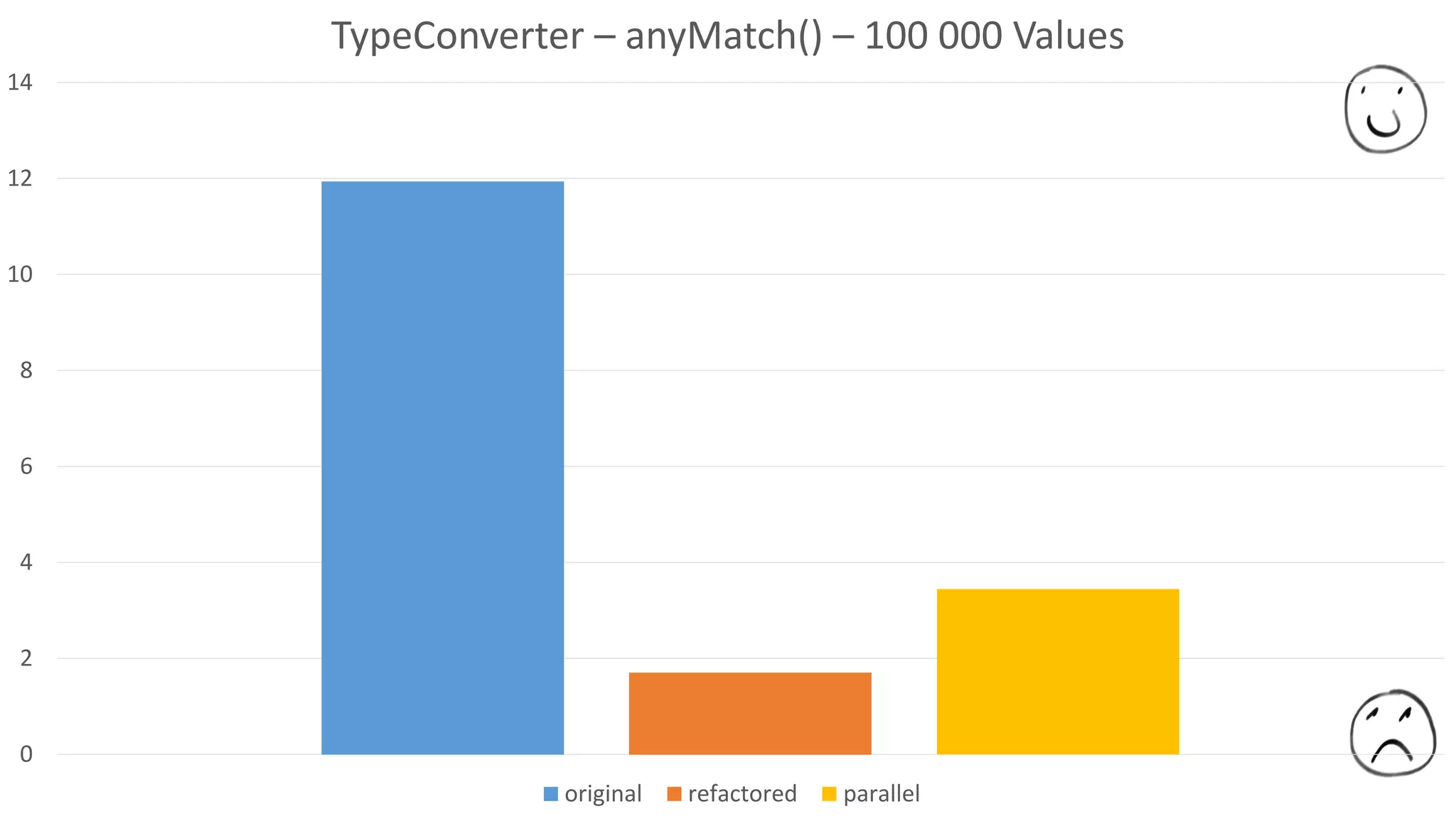
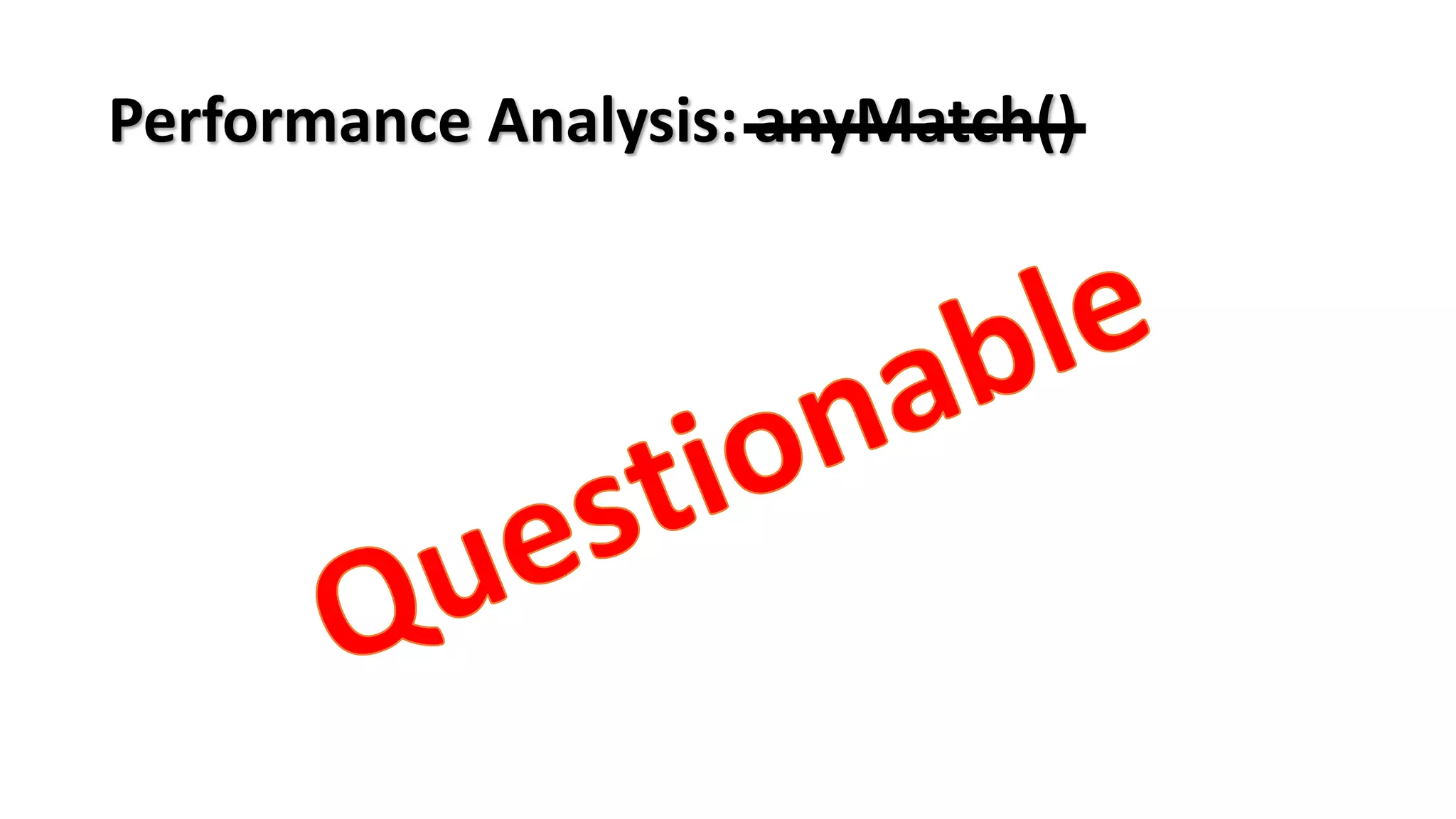
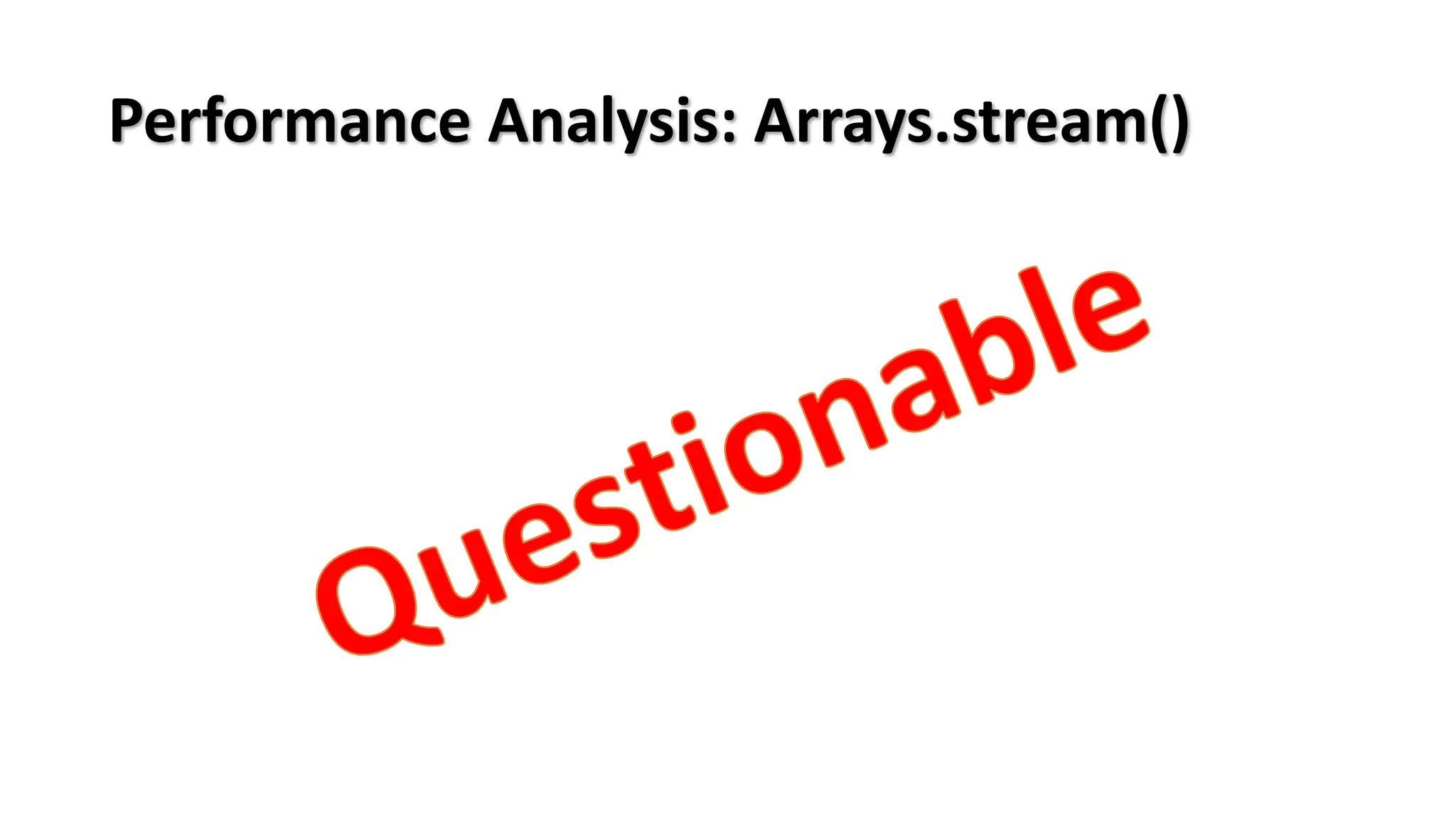
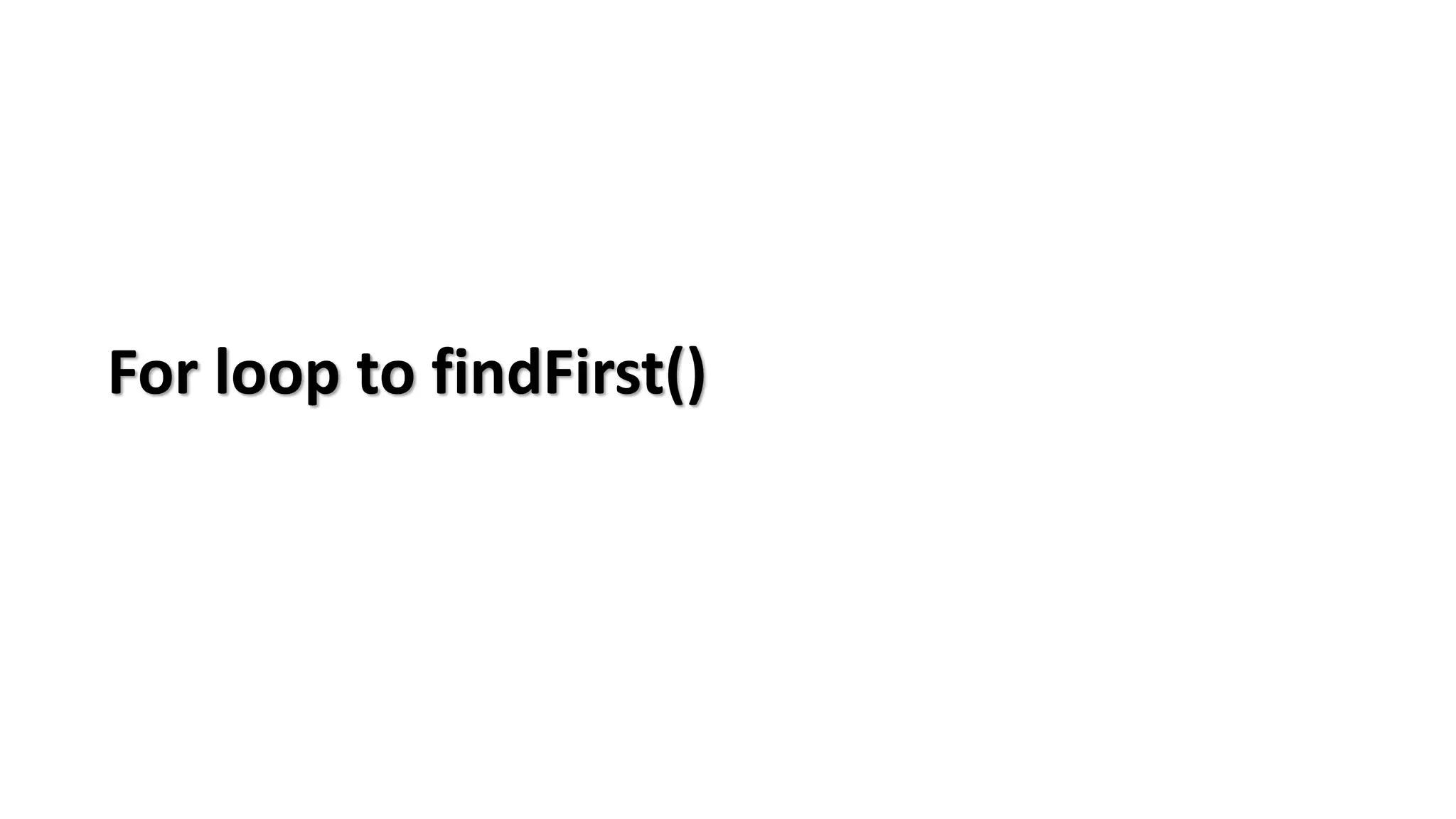
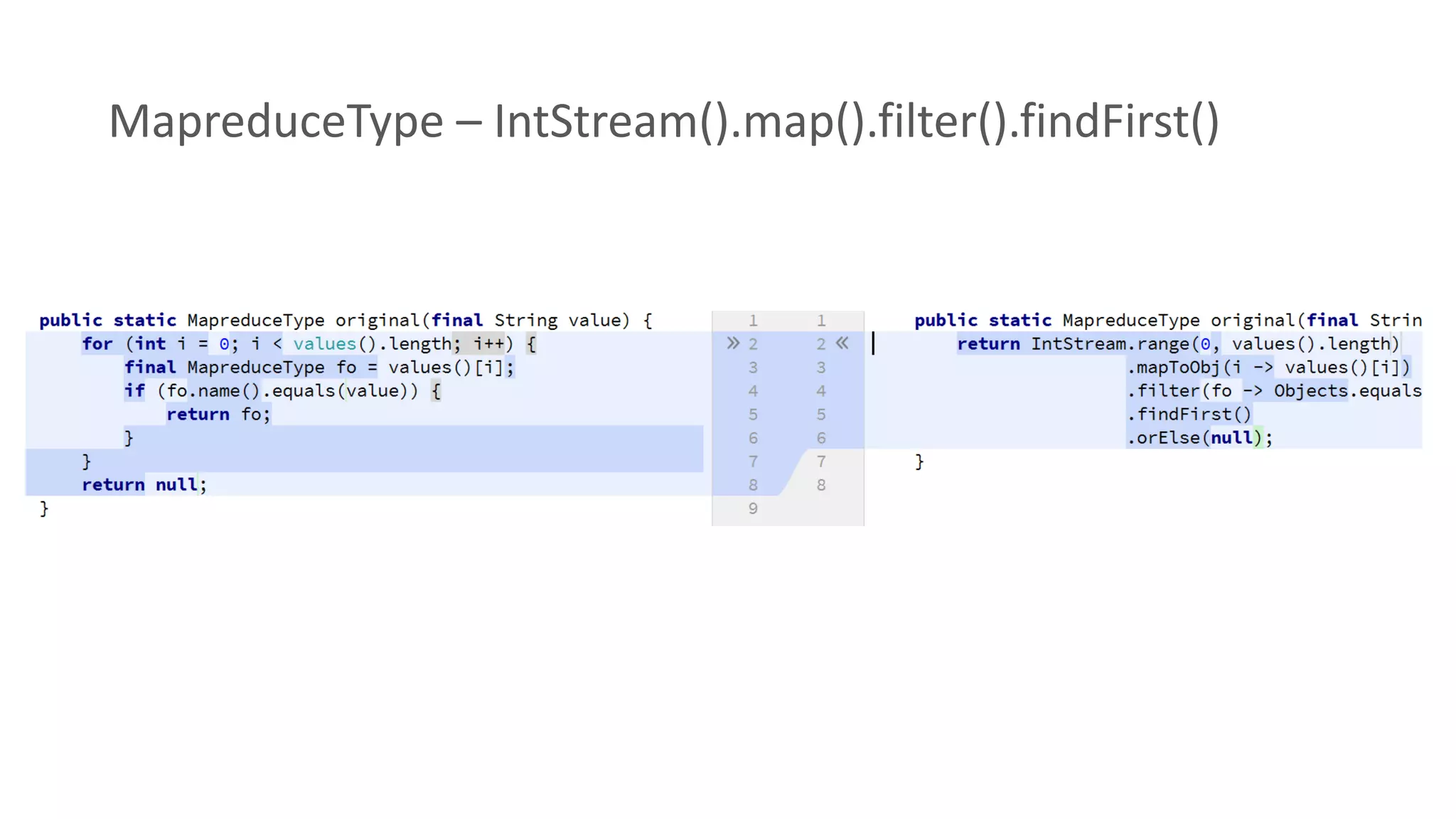
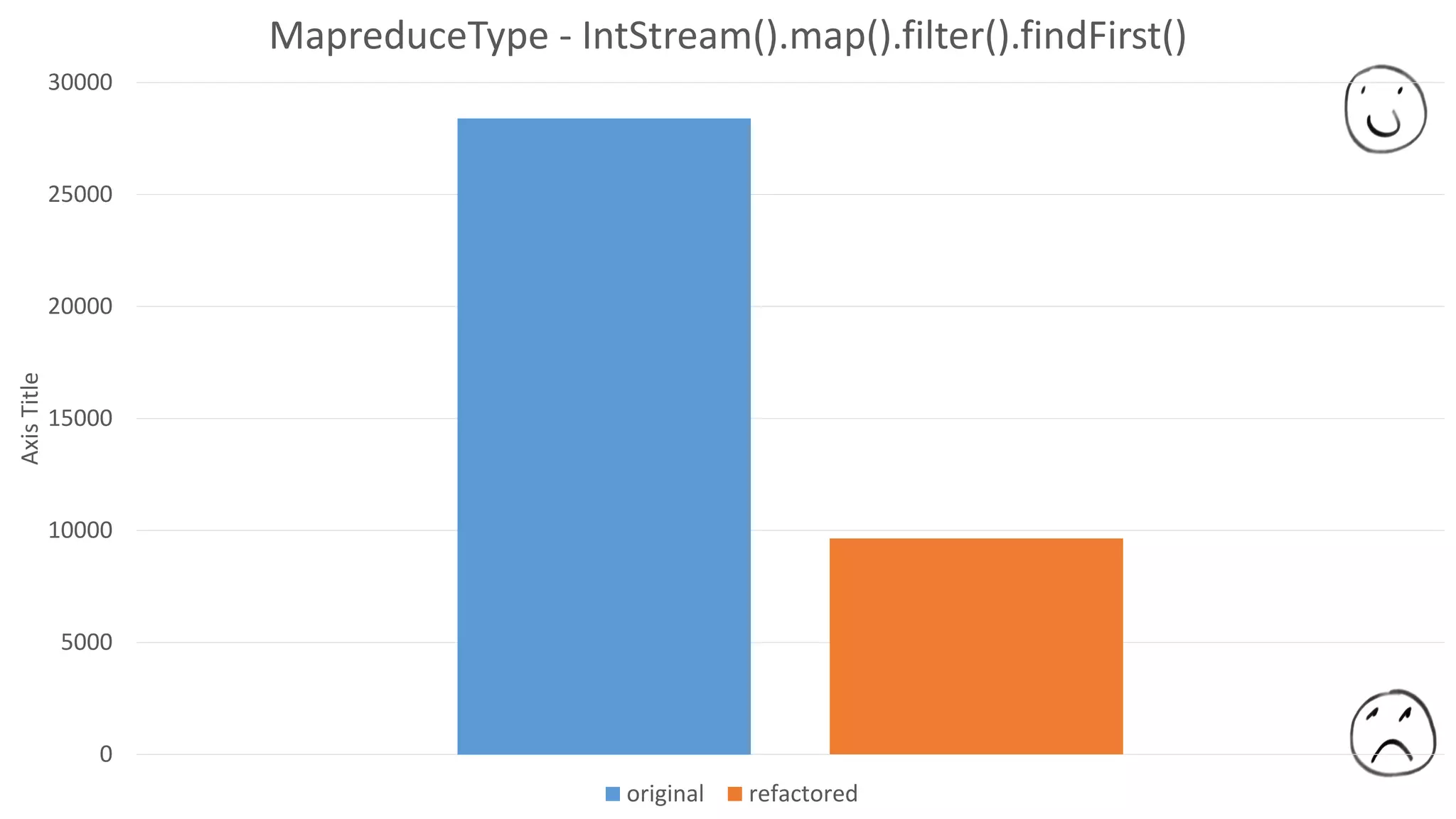
![Mapper – findFirst()
public static Class<? extends Annotation> original(final MappedField mf) {
Class<? extends Annotation> annType = null;
for (final Class<? extends Annotation> testType : new Class[]{Property.class, Embedded.class, Serialized.class, Reference.c
if (mf.hasAnnotation(testType)) {
annType = testType;
break;
}
}
return annType;
}
public static Class<? extends Annotation> refactored(final MappedField mf) {
return (Class<? extends Annotation>) Arrays.stream(new Class[]{Property.class, Embedded.class, Serialized.class, Referenc
.filter(mf::hasAnnotation)
.findFirst()
.orElse(null);
}
public static Class<? extends Annotation> refactoredMore(final MappedField mf) {
return (Class<? extends Annotation>) Stream.of(Property.class, Embedded.class, Serialized.class, Reference.class)
.filter(mf::hasAnnotation)
.findFirst()
.orElse(null);
}](https://image.slidesharecdn.com/refactoringtojava8-devoxx-161116094805/75/Refactoring-to-Java-8-Devoxx-BE-59-2048.jpg)
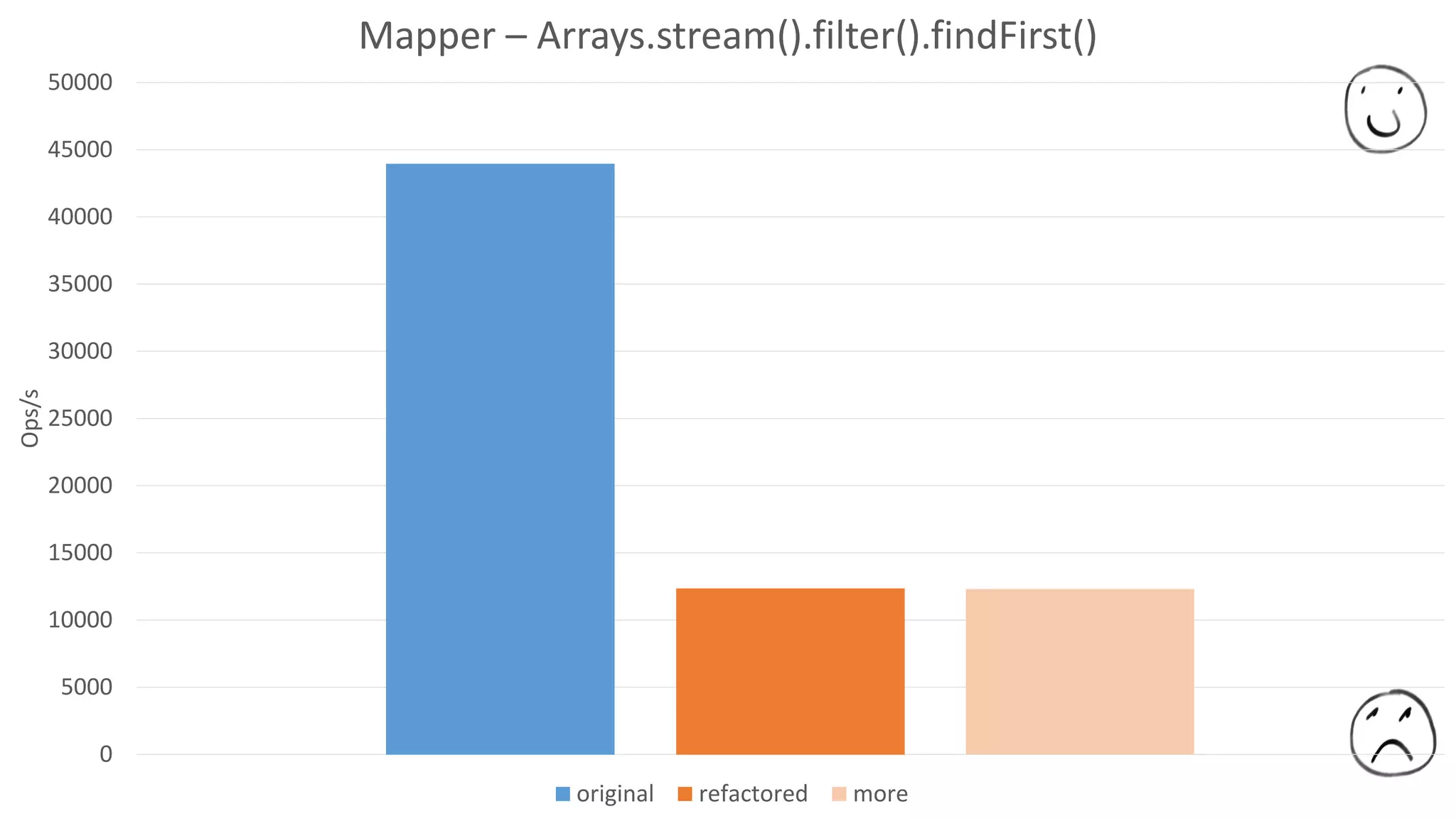
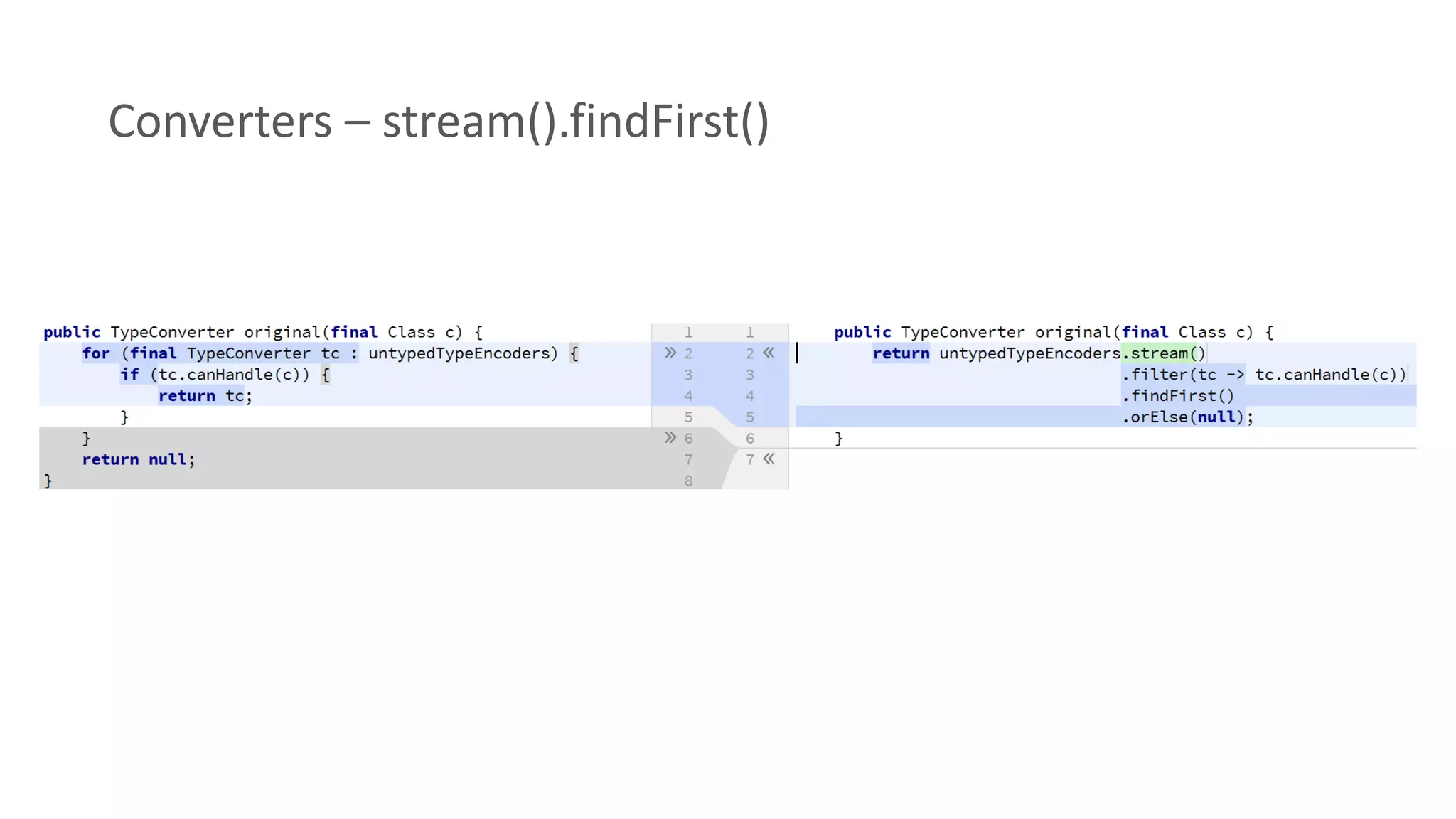
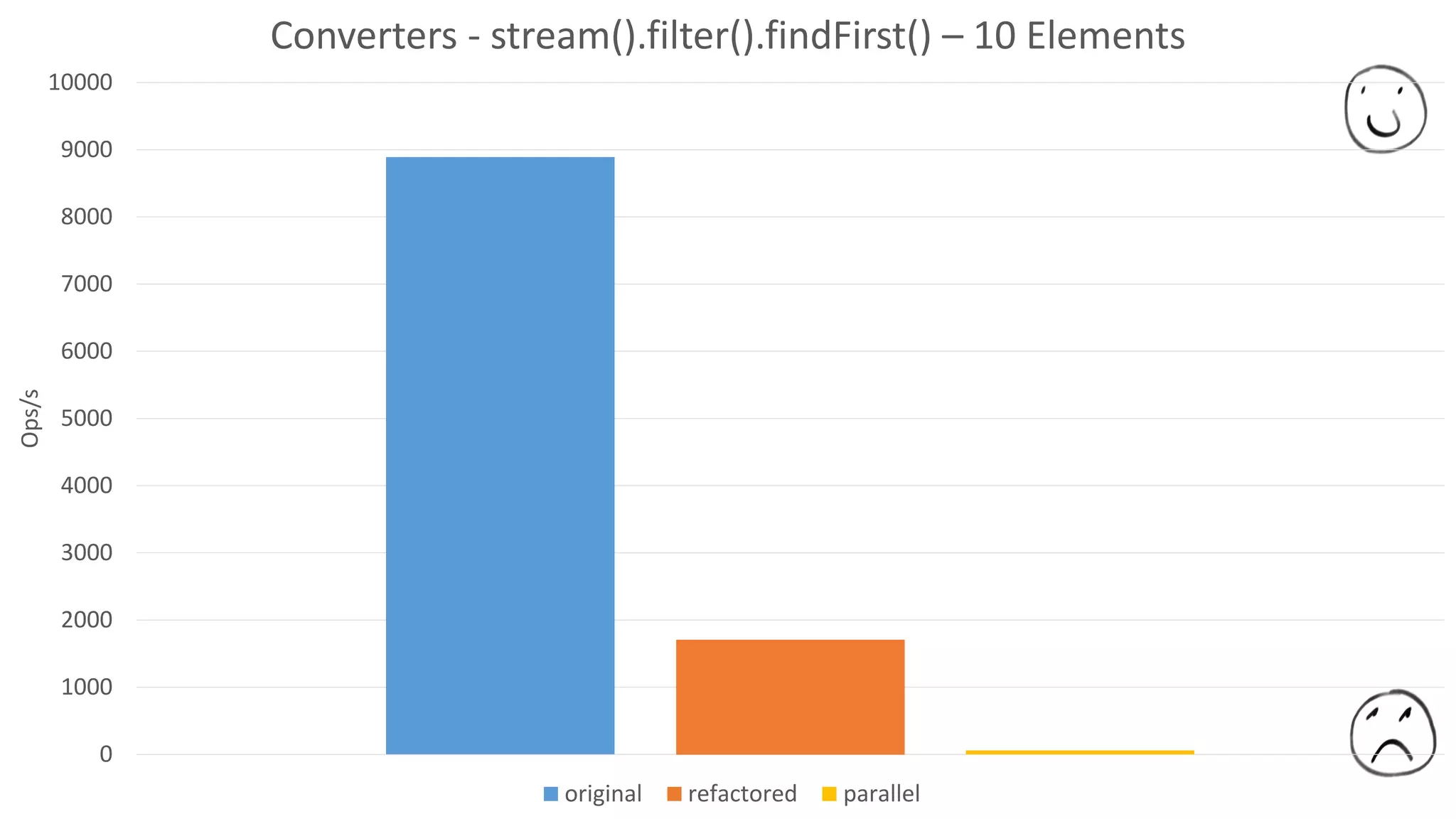
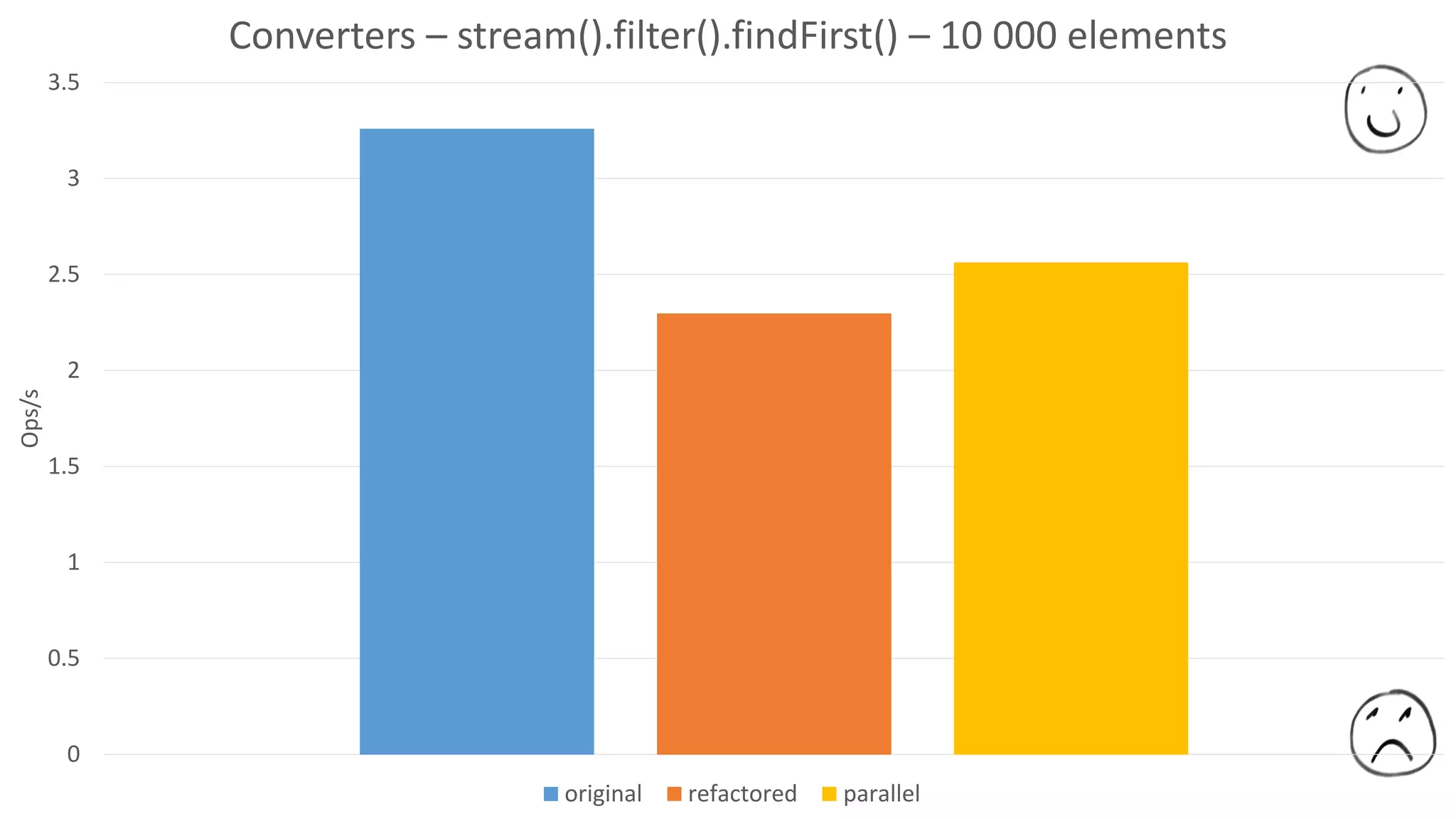
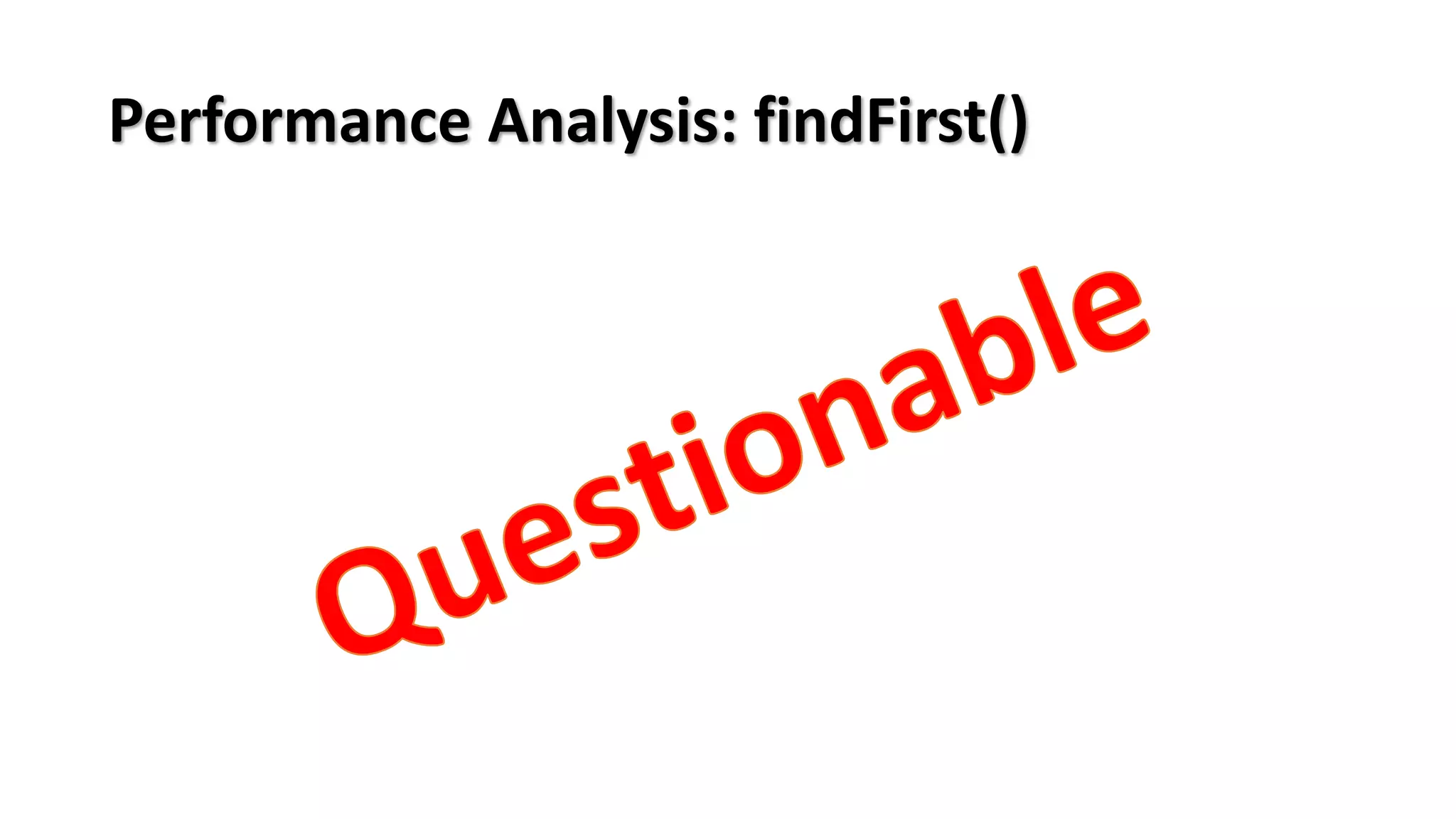

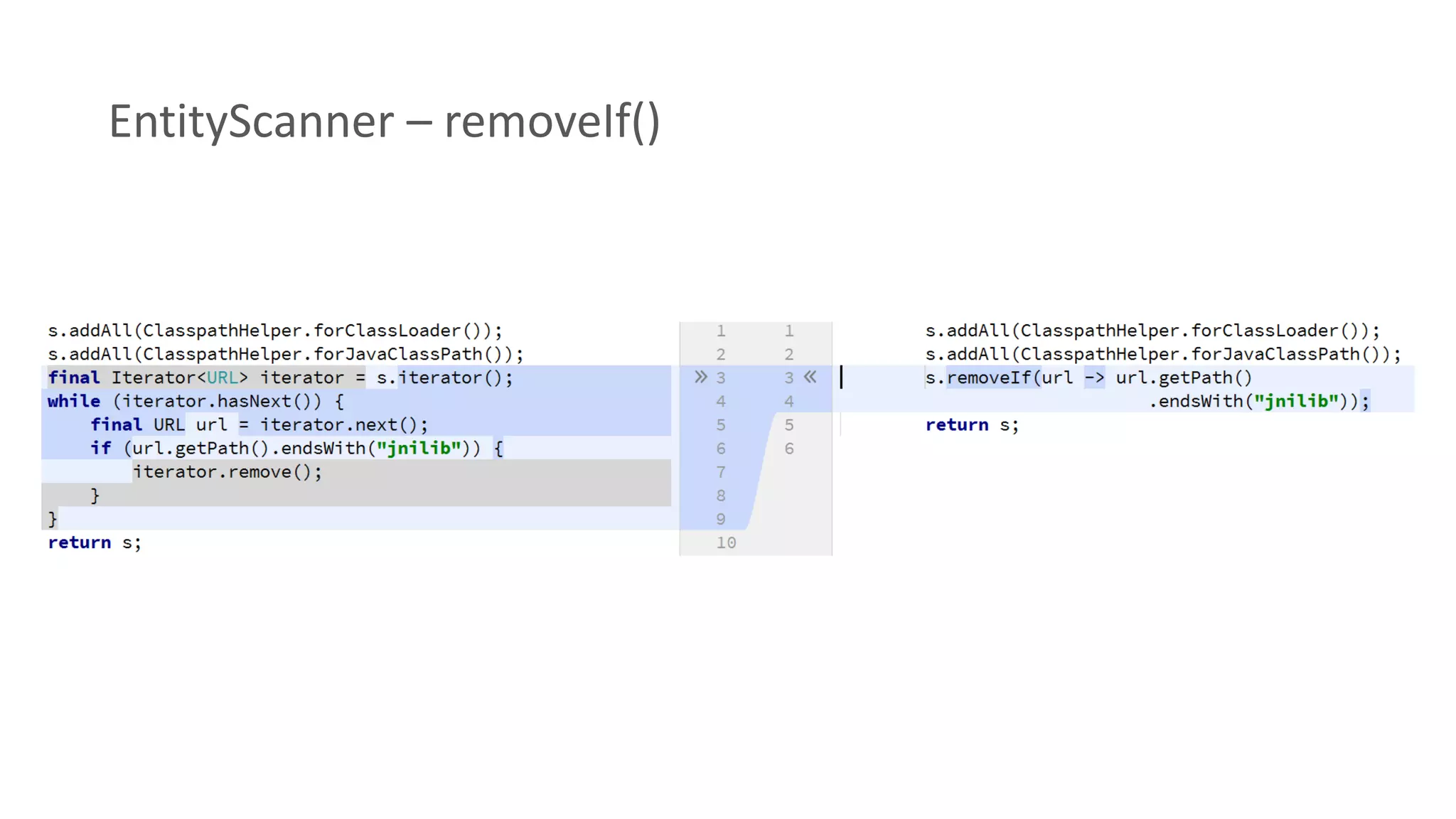
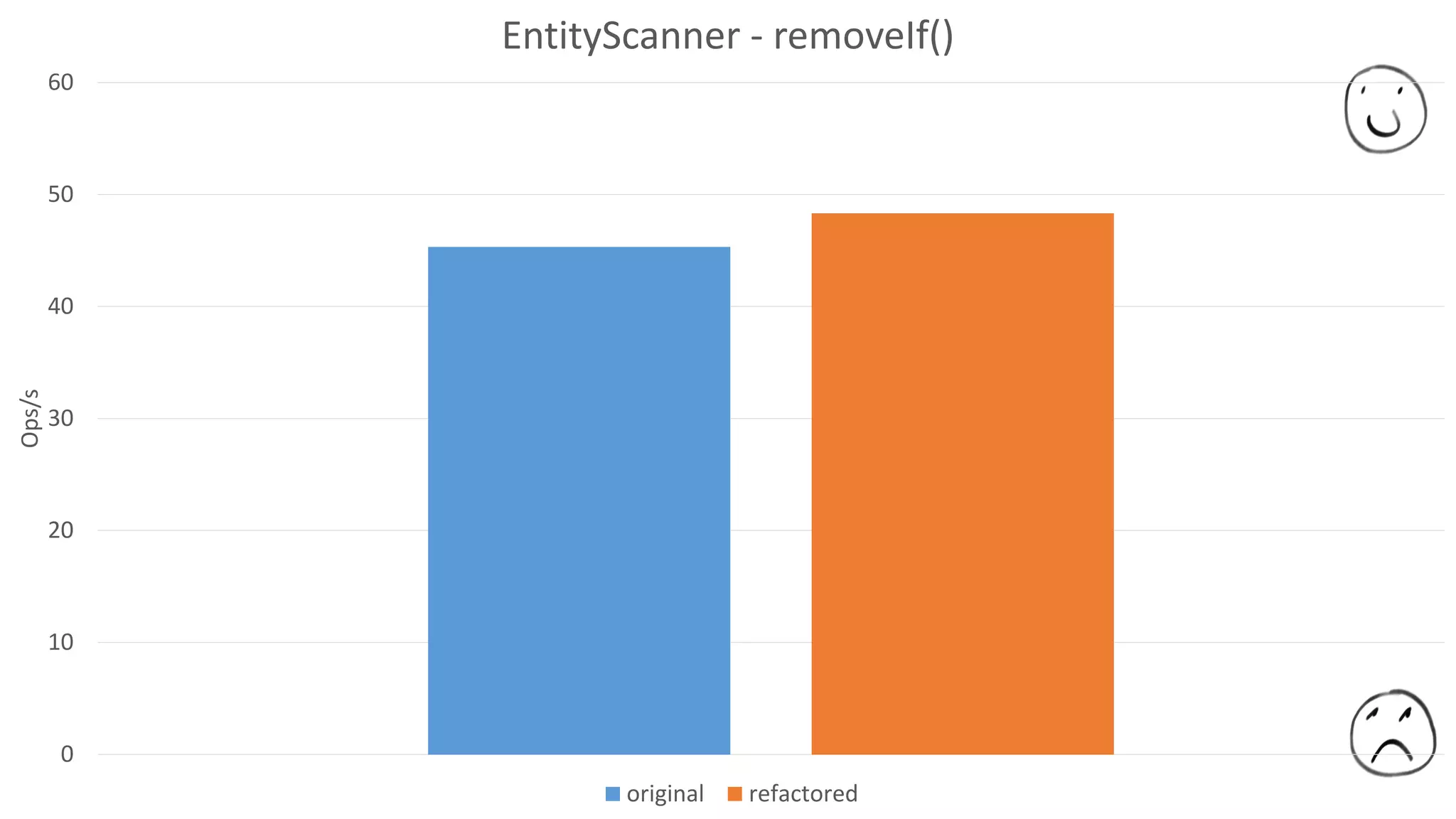
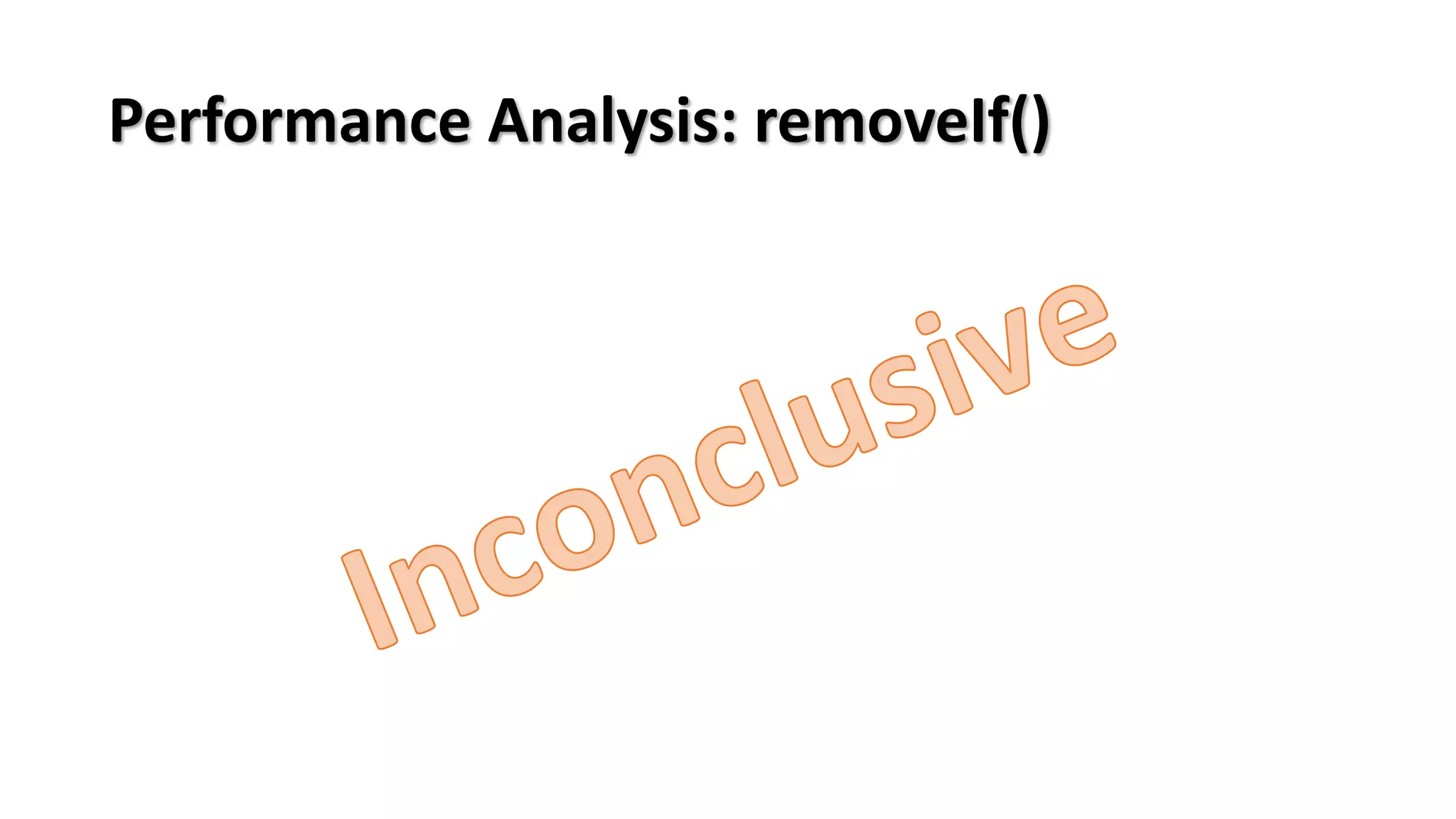
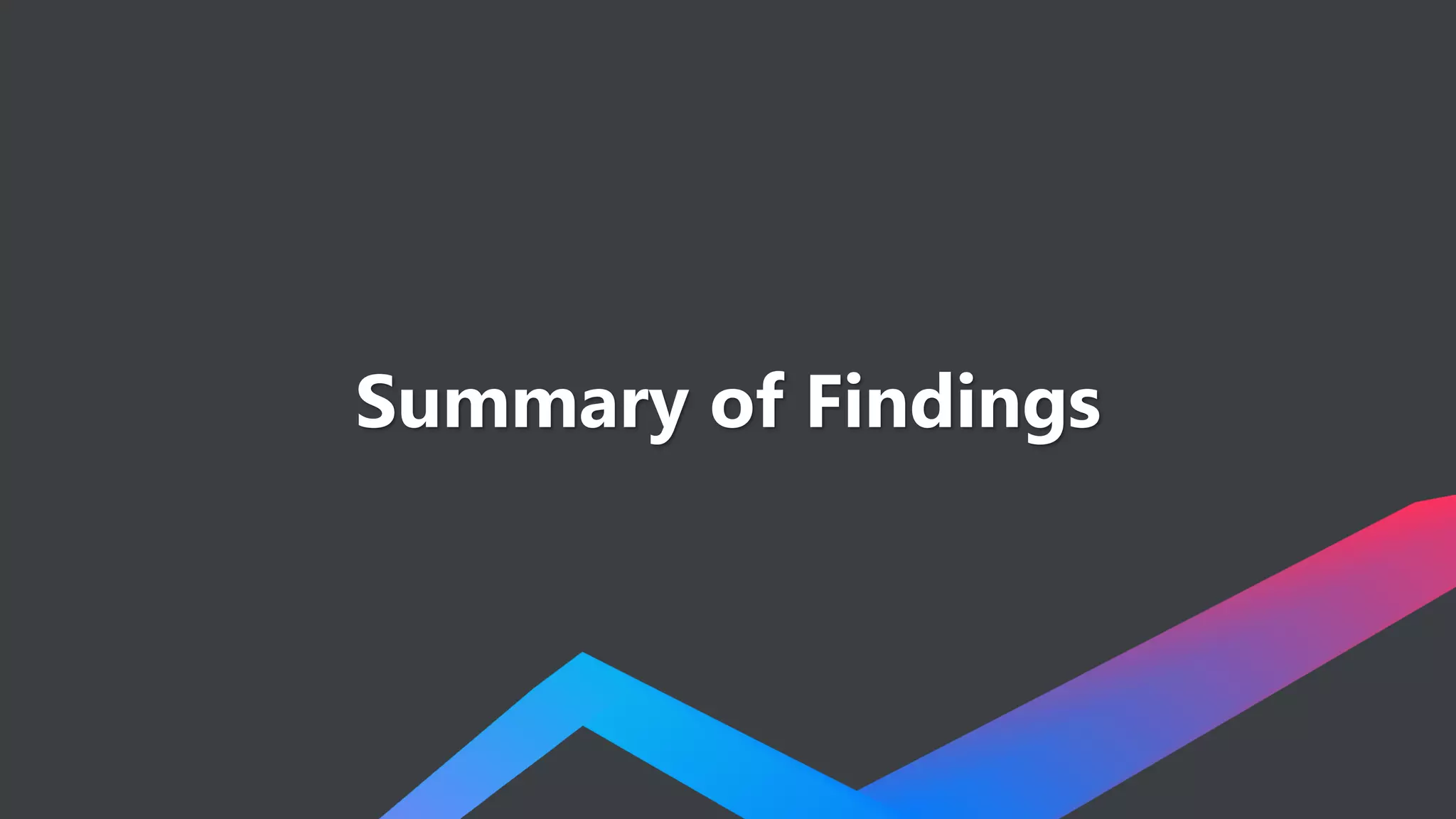
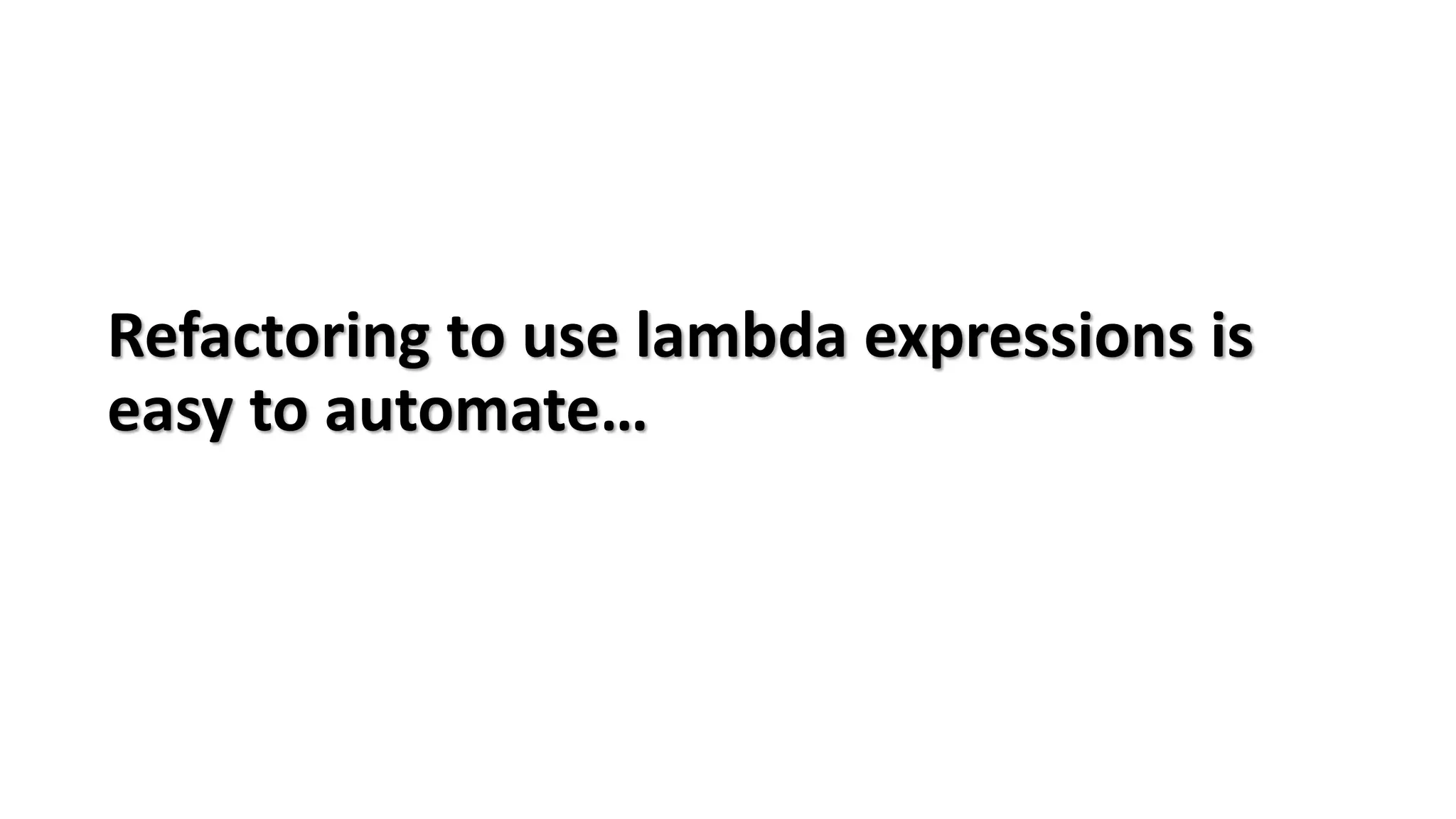
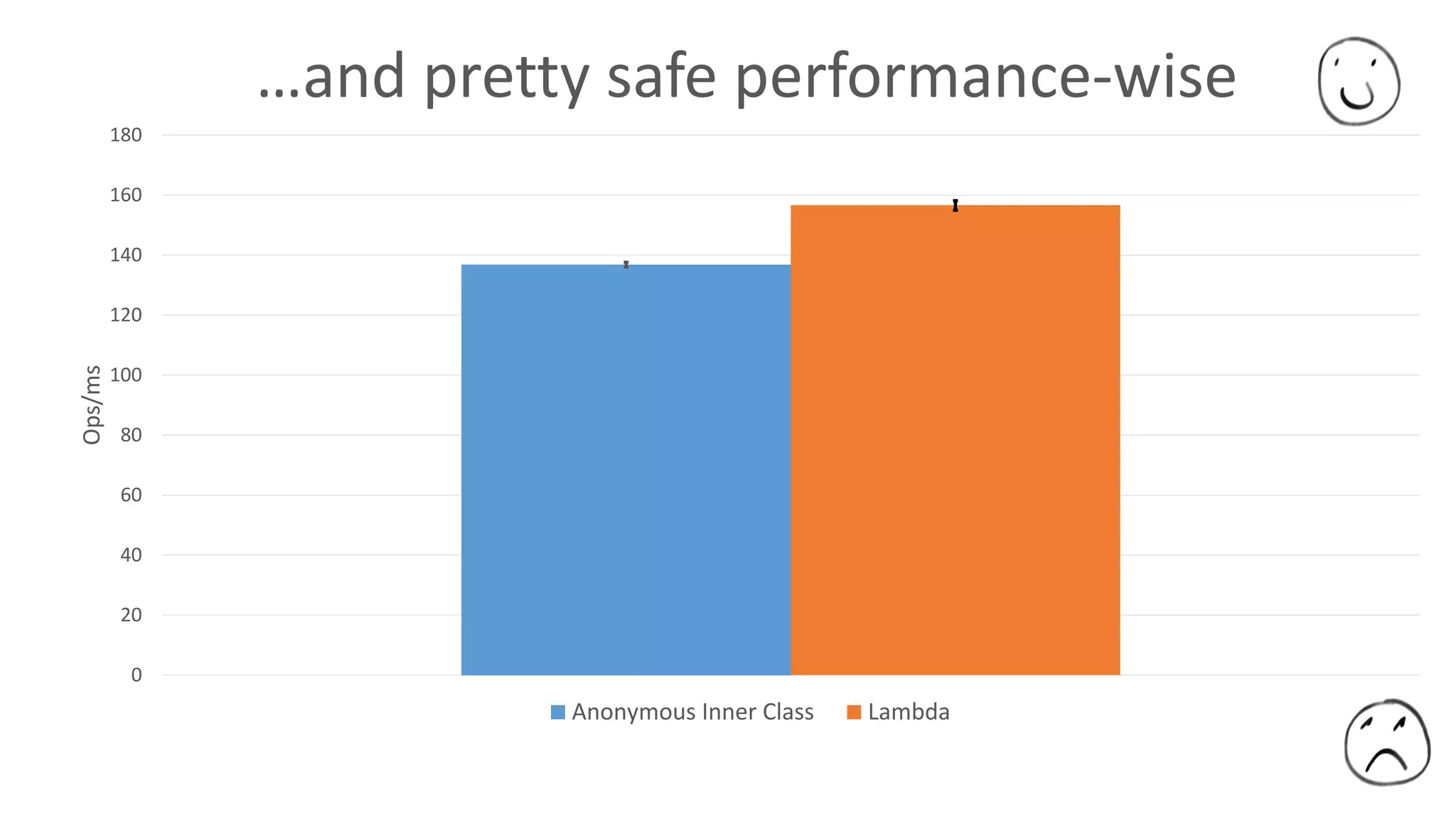
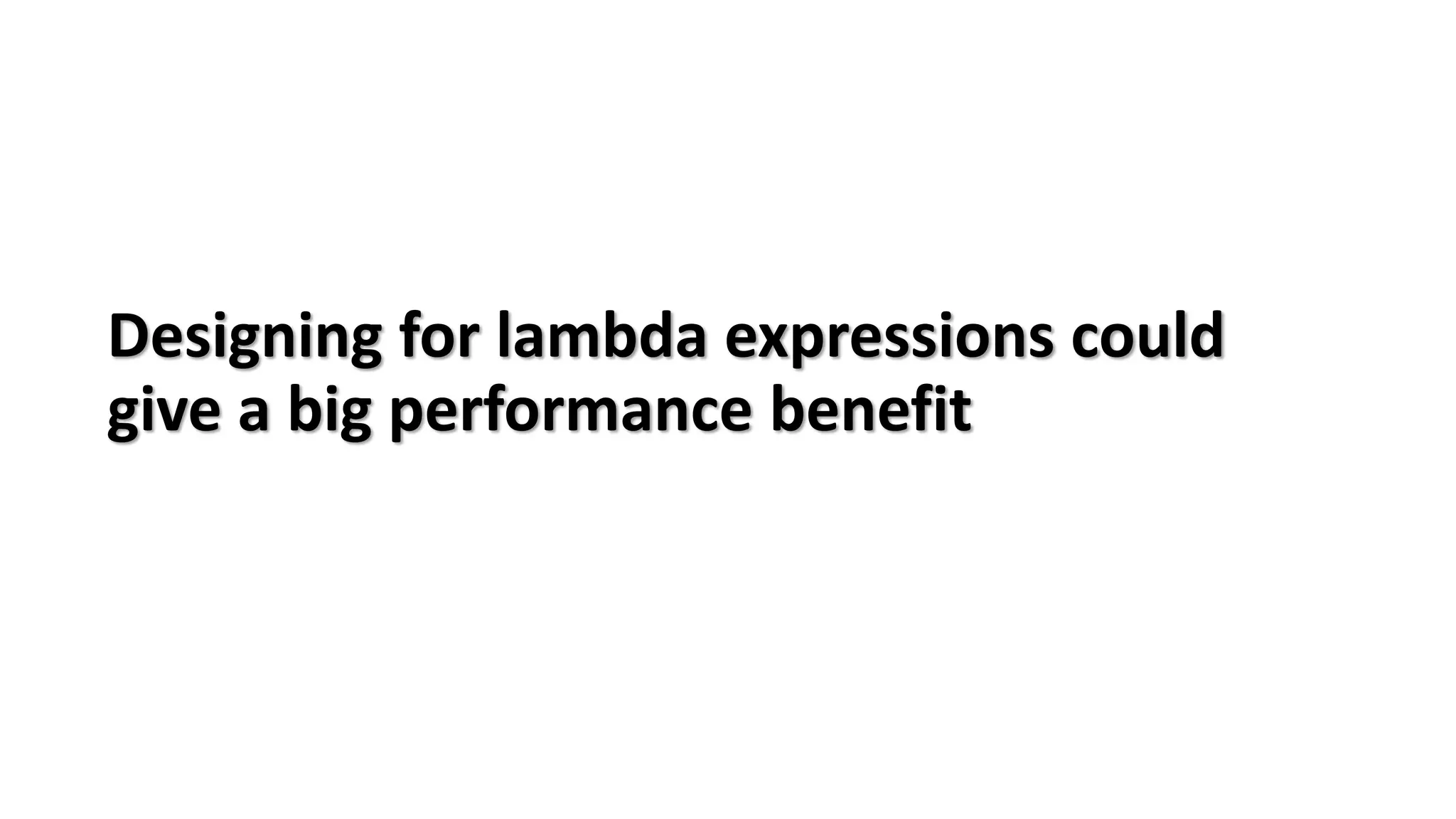
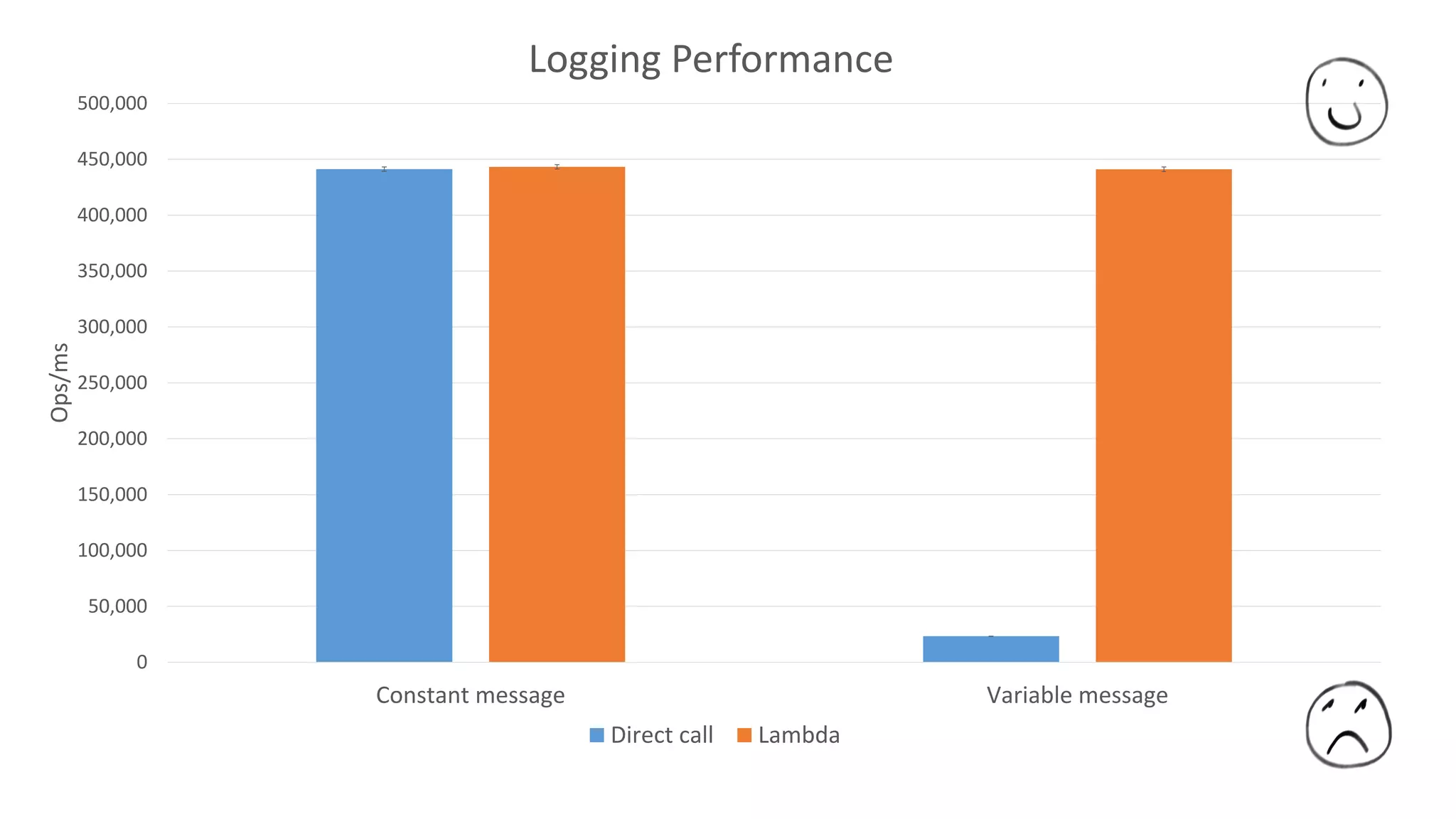
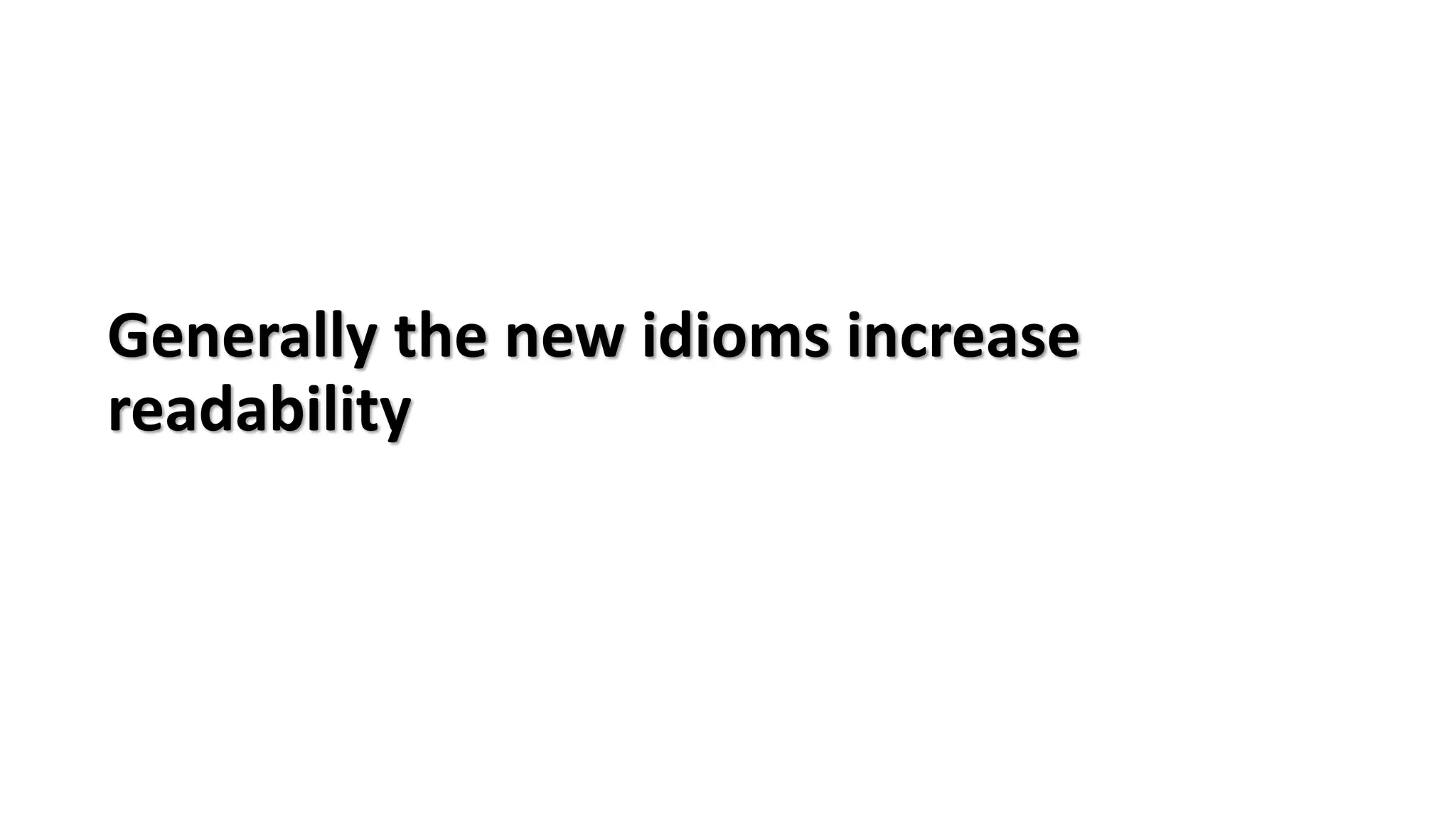
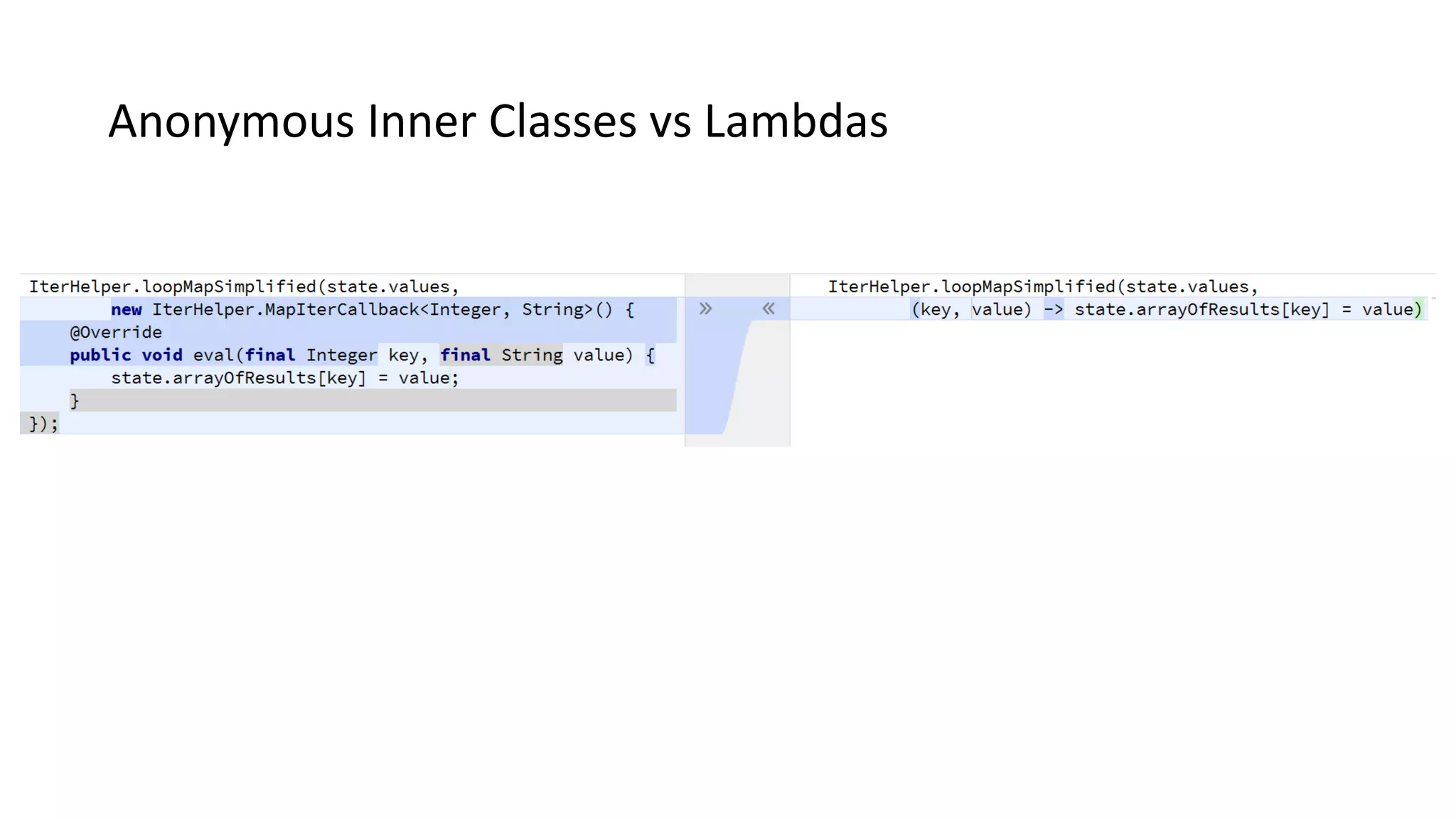
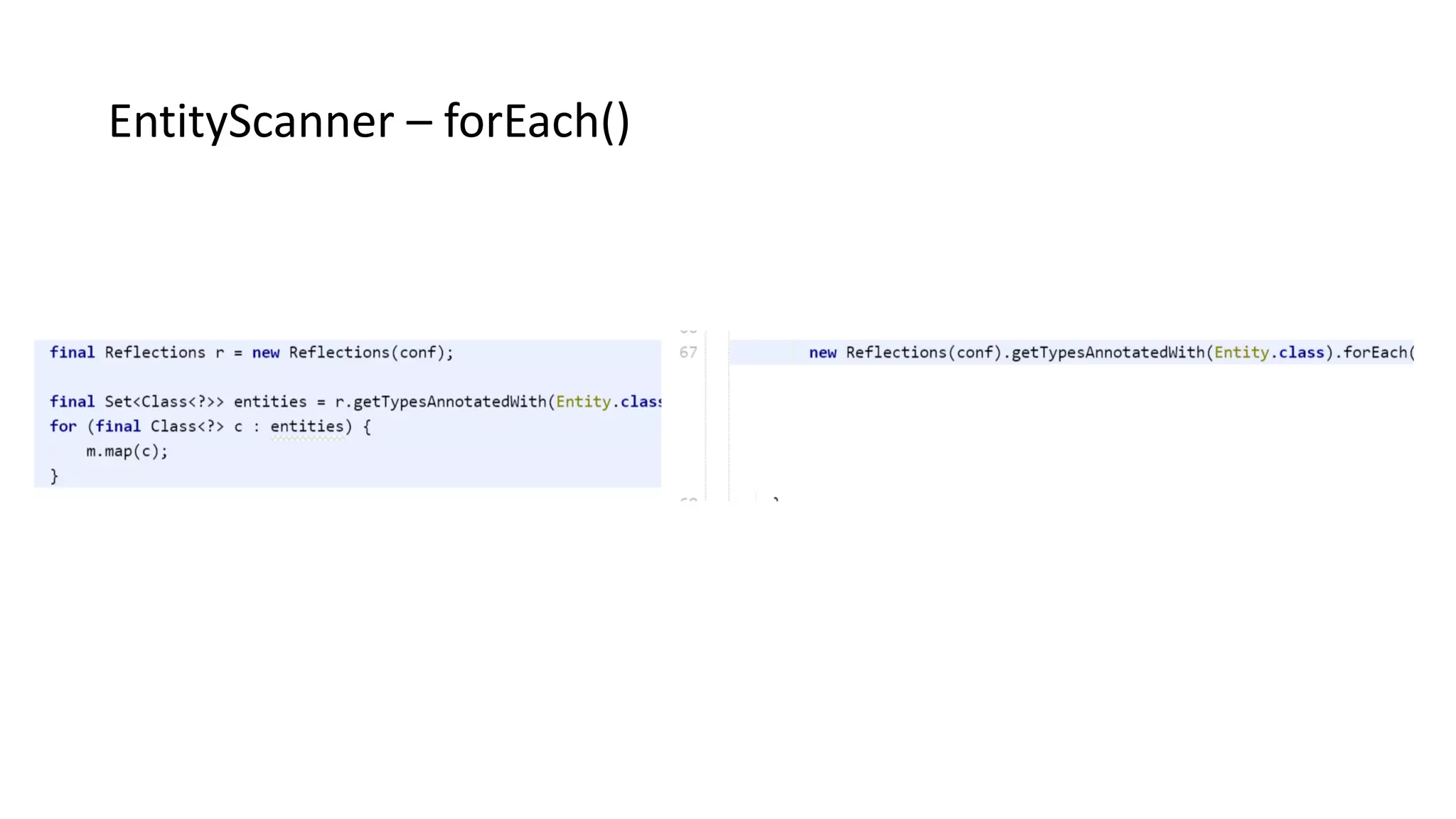
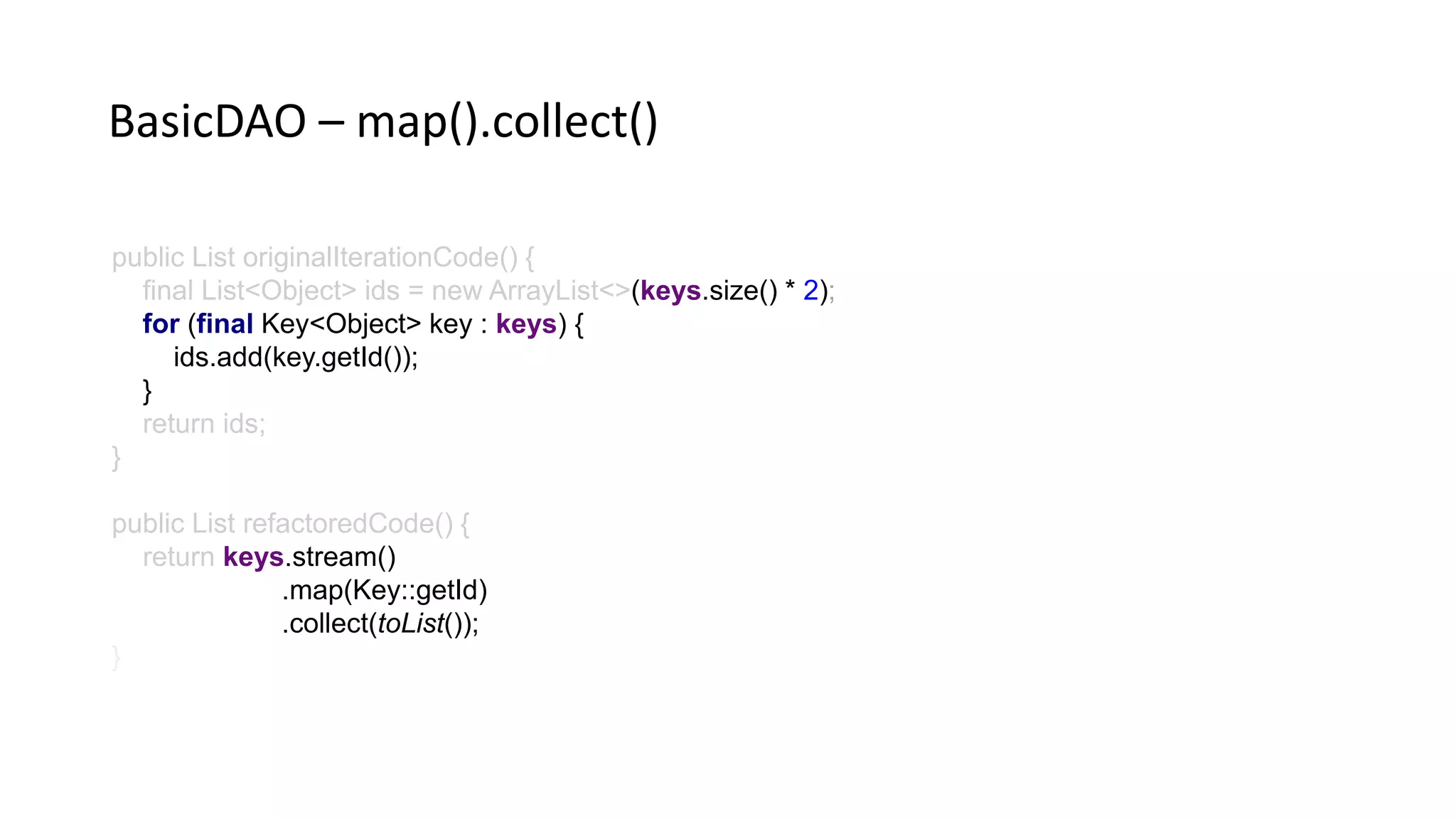
![protected boolean oneOfClasses(final Class f, final Class[] classes) {
for (final Class c : classes) {
if (c.equals(f)) {
return true;
}
}
return false;
}
protected boolean oneOfClasses(final Class f, final Class[] classes) {
return Arrays.stream(classes)
.anyMatch(c -> c.equals(f));
}
TypeConverter – anyMatch()](https://image.slidesharecdn.com/refactoringtojava8-devoxx-161116094805/75/Refactoring-to-Java-8-Devoxx-BE-78-2048.jpg)
![public static Class<? extends Annotation> original(final MappedField mf) {
Class<? extends Annotation> annType = null;
for (final Class<? extends Annotation> testType : new Class[]{Property.class, Embedded.class, Serialized.class, Reference.c
if (mf.hasAnnotation(testType)) {
annType = testType;
break;
}
}
return annType;
}
public static Class<? extends Annotation> refactoredMore(final MappedField mf) {
return (Class<? extends Annotation>) Stream.of(Property.class, Embedded.class, Serialized.class, Reference.class)
.filter(mf::hasAnnotation)
.findFirst()
.orElse(null);
}
Mapper – findFirst()](https://image.slidesharecdn.com/refactoringtojava8-devoxx-161116094805/75/Refactoring-to-Java-8-Devoxx-BE-79-2048.jpg)
